EAST RUTHERFORD, N.J. – Dabs' Digest, an exclusive weekly interview with Giants head coach Brian Daboll:
Q: You earned an exhilarating 21-20 victory with a stirring comeback in Tennessee and now you play a Carolina team that lost on a 58-yard field goal in the final seconds. Do you believe in momentum in the NFL?
Daboll: "No. It's really what you do. Obviously, how you play and coach on game day is the most important thing. But leading up to it, how you prepare and how you practice with great speed and urgency and tempo and the mindset you have, that helps leading into the game. And ultimately you have to perform on game day, all of us do. Be resilient at times and not let things really get to you because you have to play the next play. Game-to-game is like play-to-play. One play can be bad; you have a next play. And the next play you have to be tuned in, whether the previous play was good or bad. Again, I've talked about a win. Naturally, everybody's got a little bit more juice when they come in on a Monday. But there's so many things to correct in every game from a coaching side and a playing side, that you just move on. That's how we want to approach things for our football team."
Q: I'm curious about the communication with your coordinators in your first game as a head coach. Did you talk to (defensive coordinator) Wink (Martindale) when the offense was on the field, and (offensive coordinator) Mike (Kafka) when the defense was on the field?
Daboll: "It was very similar to the preseason game. Even though the preseason games weren't game planned, what we tried to do operation-wise was be as similar as we could being a new staff of how we're going to do things, keeping the airways clear, communicating when we need to communicate. I communicated with all three coordinators throughout the game. They did a good job of calling the game in the heat of it. I tried to stay out of their way the best I could."
Q: Did you succeed?
Daboll: "At times. Most of the time."
Q: This was your first regular-season experience with game and time management and replays. You had a big decision the fourth play of the game.
Daboll: "Yeah, on fourth-and-one there. I have two guys (Ty Siam and Cade Knox) that I communicate with during the week on game management, on statistics, on probabilities. We usually sit down for a quite a long time throughout the week and go through different situations that happened in the NFL, how we would handle it. There's a numbers side to it. I'm a big believer in probabilities and numbers. There's also a feel to the game of how your team is playing and some of the choices that you need to make. And I'd say we try to be as well thought out when we're sitting here in a clean, nice room when we're looking at tape, because you have to be very confident. You never know when it's going to happen – whether it's the fourth play, the last play, in between, they're all important. I think if you believe in the process that we go through, which I do strongly, that you feel very prepared come gametime. Most of those decisions happen on a Wednesday, Thursday, Friday rather than on a Sunday in terms of our preparation and knowing what we want to do, because you can communicate that to the coaches before the game even starts. Now, are there some things that happen? Absolutely. And again, you look at specific numbers, probabilities, field goal percentages, where they are on the field, there's sun, there's momentum in a game. There is momentum in a game, and you just want to try to make the best decision for your football team and your players."
Q: Were you at all tempted to go for it (instead of punting) on the fourth play?
Daboll: "Not on that one. Now, if it was in a different area of the field, potentially. But where we were – our first game, on the road, on the other side of the 50 (at the Giants' 31-yard line) - not at that point in time, I wasn't. Now, that's not to say in another game Week 8 or Week 2 or Week 4 … we had that very discussion honestly on Thursday. We went through probably an 80-play tape of situations the past few years (and asked), 'Alright, what if this happens?' (And we said) 'Alright, the numbers say this. I got it,' or 'If it's in this part of the game or this happens.' You always have to do the right thing for the team, and I think if you prepare well enough before the game, you have those answers in your head hopefully before they happen, and you can make a split-second decision and not waver from it.
"Case in point: the (game-deciding) two-point play. We talked about it before the drive. Mike knew it, pretty much the guys knew it. I talked to some of the defensive guys; they're the ones laying it out on the field. I want to make sure they know my thought process, and if they would've rather gone into overtime and play it out. There's something to listening to your players that are out on the field and understanding the momentum, the matchups, how things are going. But we were prepared for, I thought, every situation we could possibly be put in. I know in a game, there's three or four that you never (think about, and you say) 'Oh my gosh,' and you got to react quick. The more you can have the answers before the test, the better the result usually is on the test."
View photos of head coach Brian Daboll's time with the New York Giants.
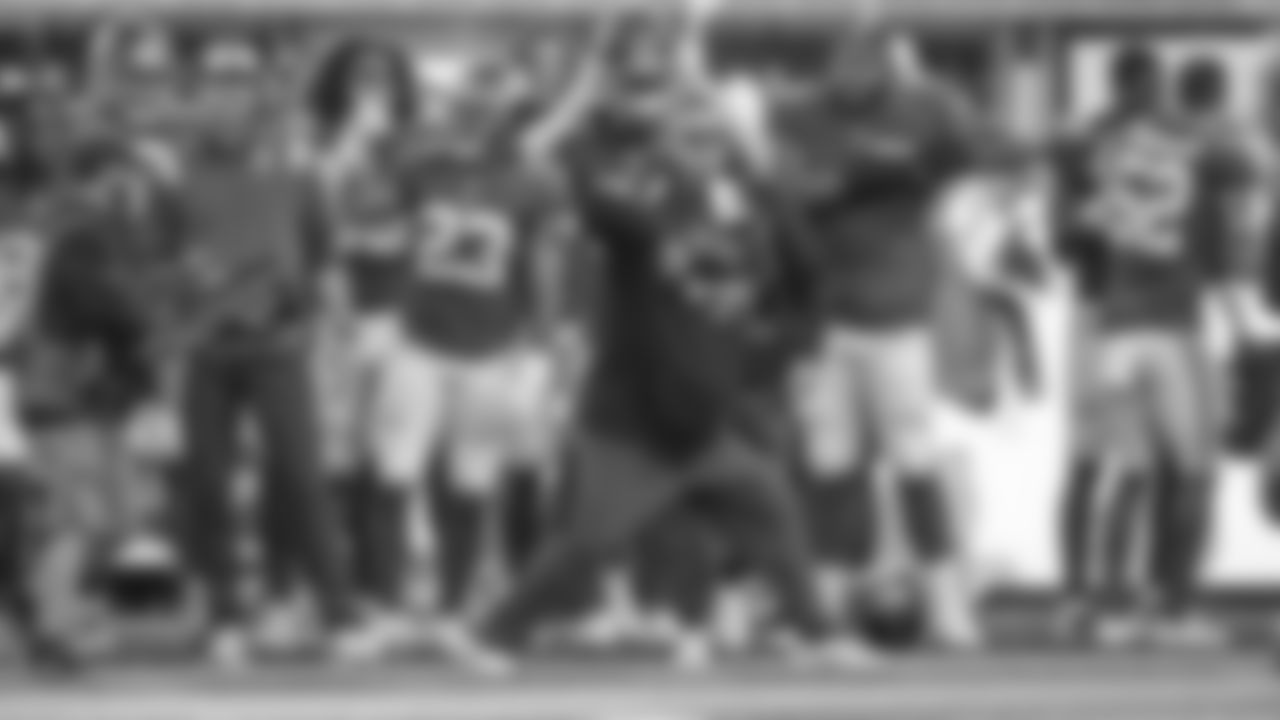

New York Giants linebacker Jihad Ward (55) and safety Julian Love (20) dump Gatorade on New York Giants head coach Brian Daboll during a NFL football game against the against the Indianapolis Colts, Sunday January 1, 2023 in East Rutherford, NJ (Evan Pinkus\New York Giants )

Brian Daboll Head Coach
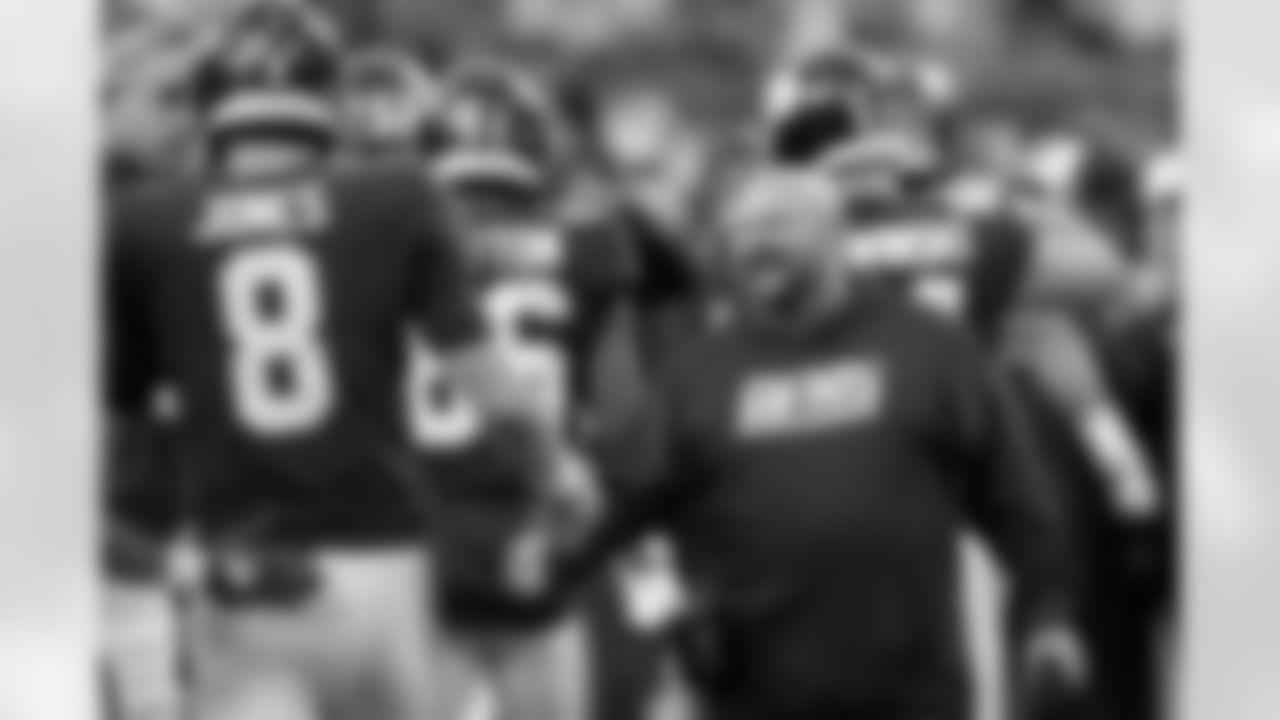
Brian Daboll Head Coach, Daniel Jones (8)

Brian Daboll Head Coach

New York Giants head coach Brian Daboll in the locker room following a week 1 football game against the Tennessee Titans on Sunday September 11, 2022 in Nashville, Tennesse (Evan Pinkus/NY Giants)

Head Coach Brian Daboll

New York Giants head coach Brian Daboll following week 1 football game against the Tennessee Titans on Sunday September 11, 2022 in Nashville, Tennesse (Evan Pinkus/NY Giants)

New York Giants head coach Brian Daboll talks with quarterback Daniel Jones (8)during a football game against the Chicago Bears on Sunday October 2, 2022 in East Rutherford, New Jersey (Evan Pinkus/NY Giants)

Brian Daboll Head Coach
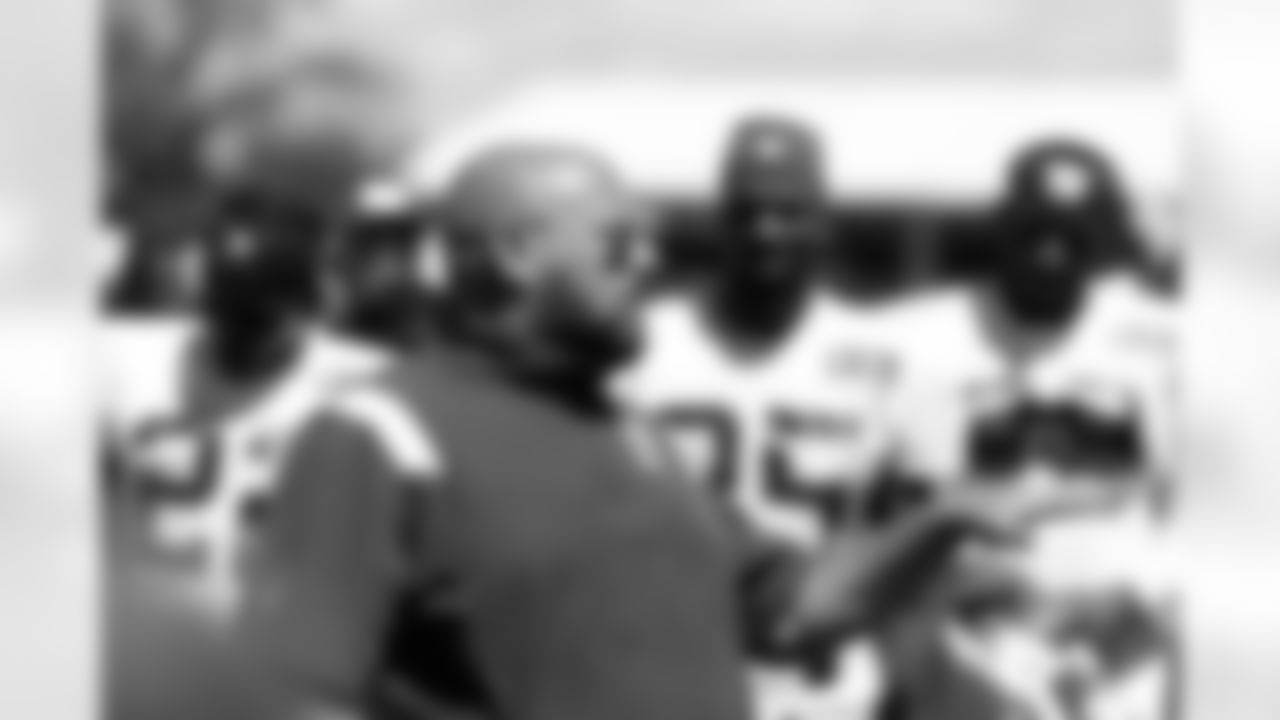
Brian Daboll Head Coach

New York Giants head coach Brian Daboll during training camp Fan Fest practice at MetLife Stadium on Friday August 5, 2022 in East Rutherford, New Jersey

Brian Daboll

Head Coach Brian Daboll

New York Giants head coach Brian Daboll talks with quarterback Daniel Jones (8) during a pre-season football game against the Cincinnati Bengals on Sunday August 21, 2022 in East Rutherford, New Jersey (Evan Pinkus/NY Giants)
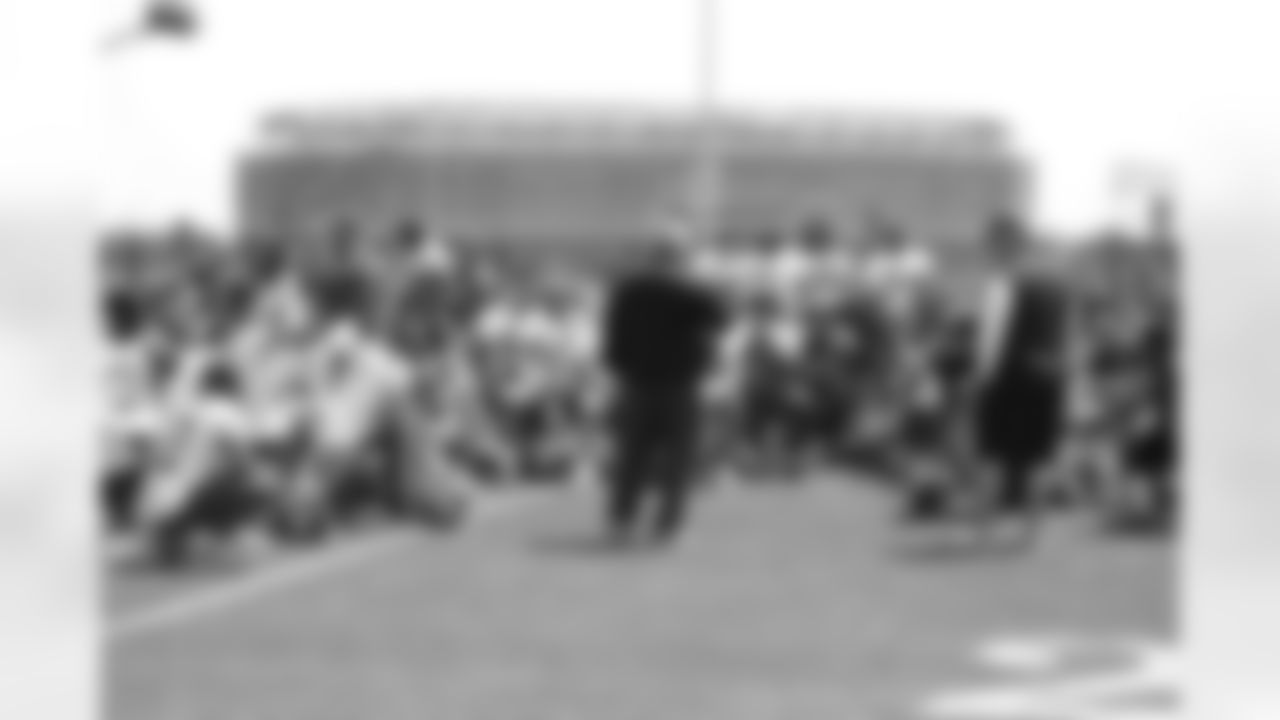
New York Giants head coach Brian Daboll talks to his team following an organized team activity practice at Quest Diagnostics Training Center on Thursday May 26, 2022 in East Rutherford, New Jersey

Brian Daboll Head Coach

Head Coach Brian Daboll, Eli Manning,
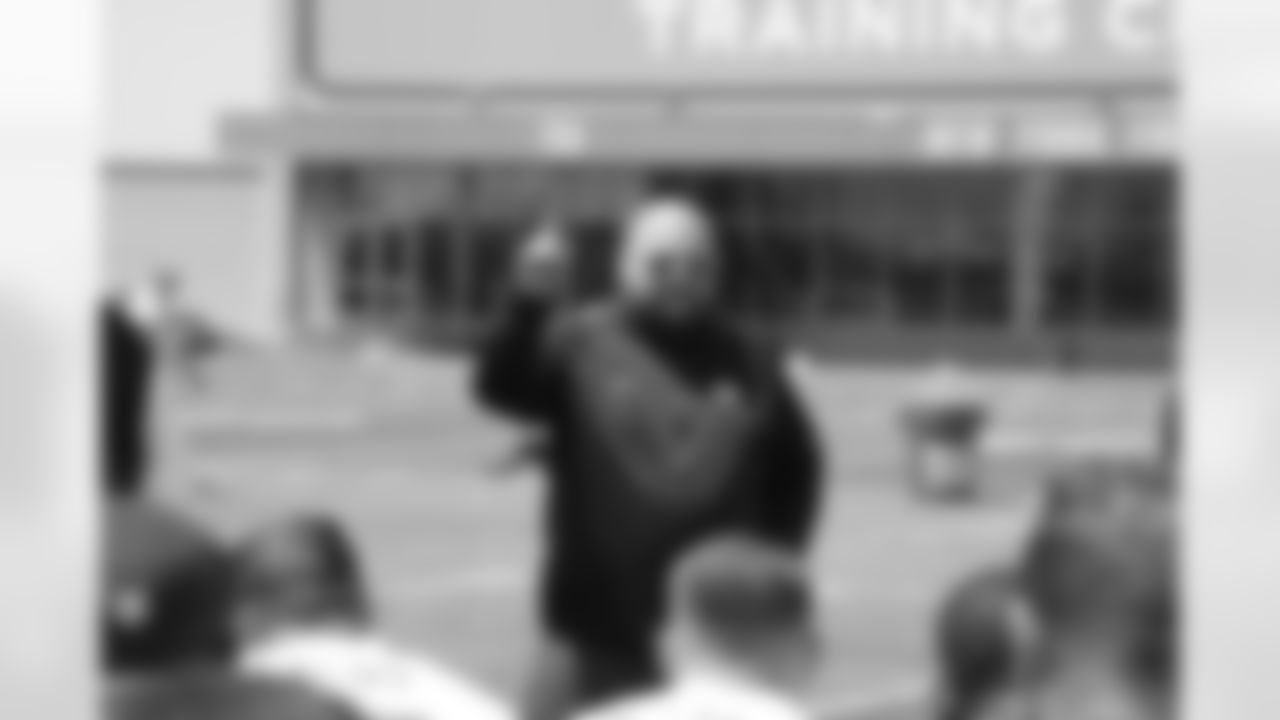
New York Giants head coach Brian Daboll talks to his team following an organized team activity practice at Quest Diagnostics Training Center on Thursday May 26, 2022 in East Rutherford, New Jersey

Brian Daboll Head Coach, Laura Young Director of Coaching Operations

Joe Schoen Senior Vice President and General Manager, Michael Strahan, Brian Daboll Head Coach


Head Coach Brian Daboll & General Manager Joe Schoen

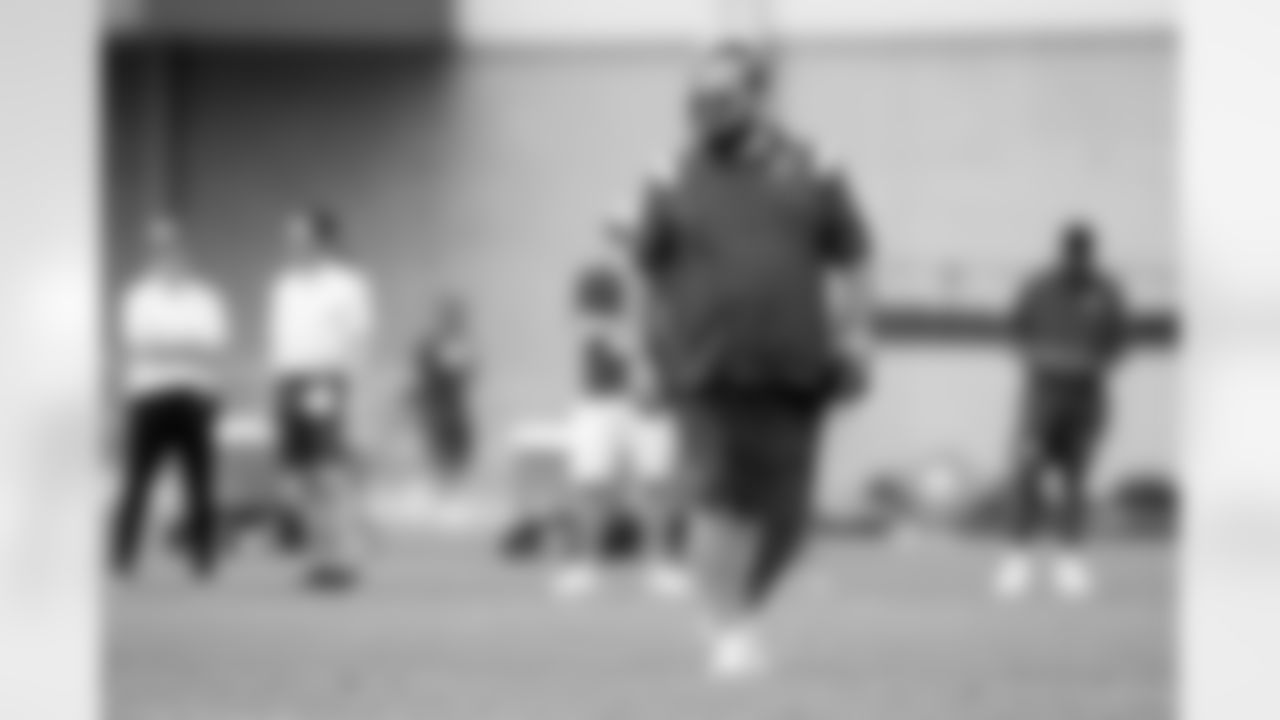
Brian Daboll Head Coach

Head Coach Brian Daboll

Brian Daboll Head Coach, WR David Sills V (84)

Head Coach Brian Daboll
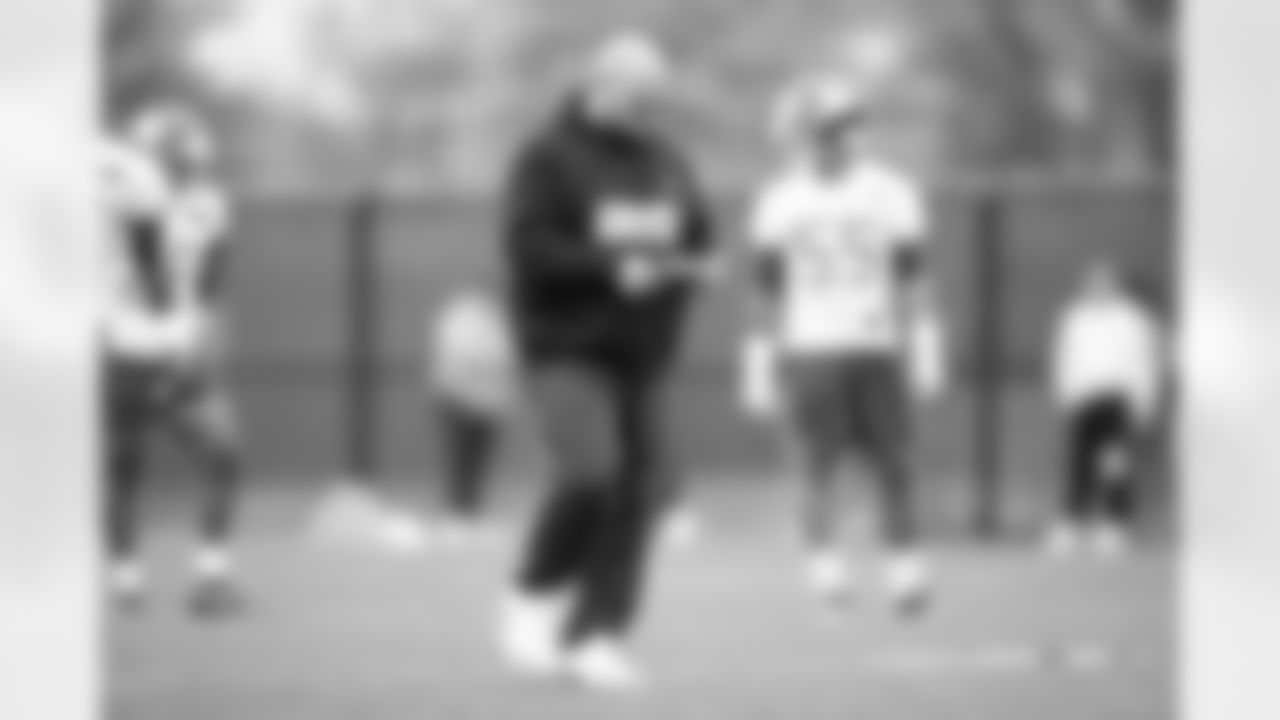
Head Coach Brian Daboll

Head Coach Brian Daboll addresses the media at the 2022 NFL Combine in Indianapolis, Indiana

General Manager Joe Schoen & Head Coach Brian Daboll

Head Coach Brian Daboll
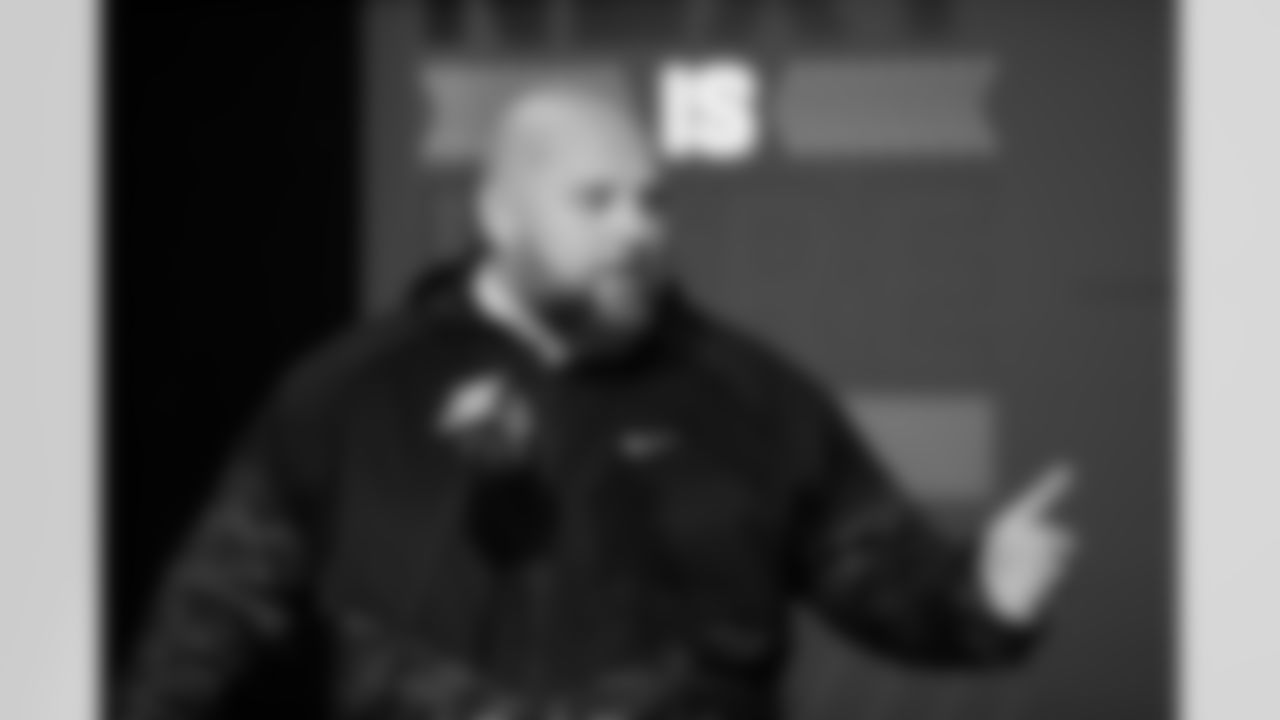
Head Coach Brian Daboll addresses the media at the 2022 NFL Combine in Indianapolis, Indiana

Head Coach Brian Daboll
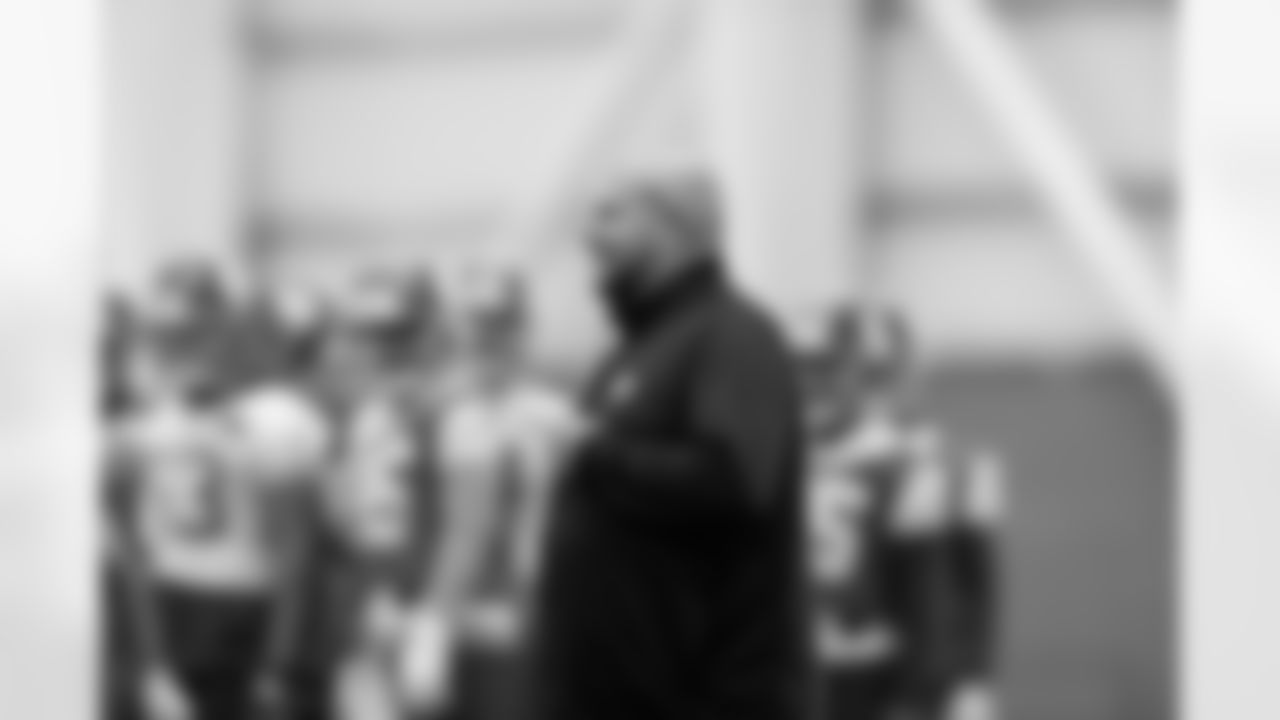
Head Coach Brian Daboll
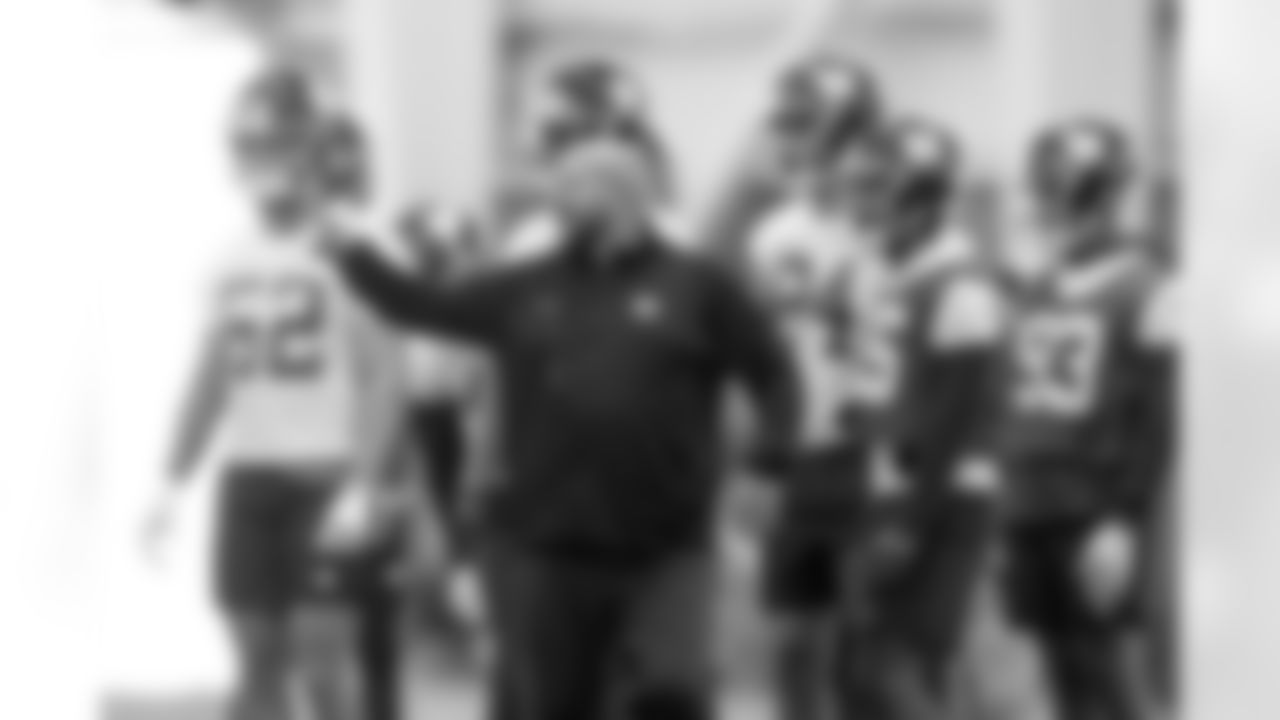
Head Coach Brian Daboll

Head Coach Brian Daboll addresses the media at the 2022 NFL Combine in Indianapolis, Indiana

Head Coach Brian Daboll addresses the media at the 2022 NFL Combine in Indianapolis, Indiana

Joe Schoen Senior Vice President and General Manager, Sam Prince, Brian Daboll Head Coach


Brian Daboll Head Coach

Head Coach Brian Daboll
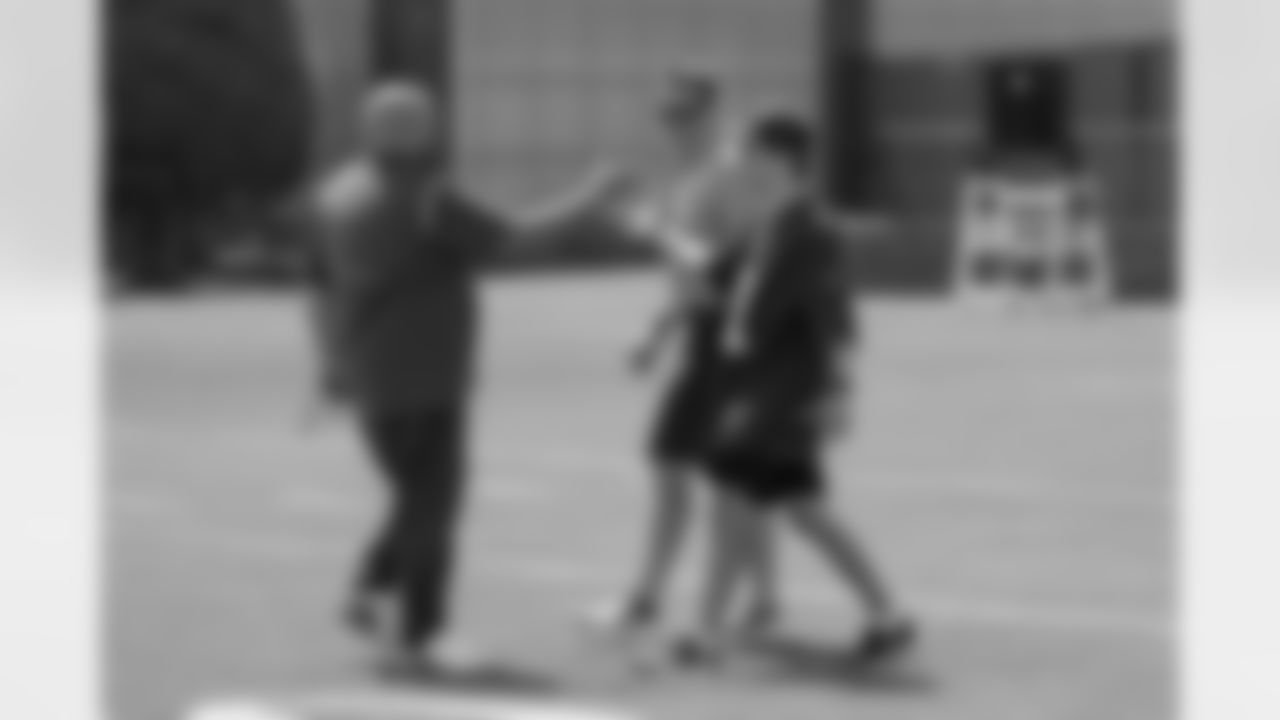
Brian Daboll Head Coach, Joe Schoen Senior Vice President and General Manager, Sam Prince

Tyrod Taylor (2), Brian Daboll

Head Coach Brian Daboll

Tyrod Taylor (2), Brian Daboll

Brian Daboll Head Coach

Brian Daboll Head Coach, Amani Toomer

Brian Daboll Head Coach

Brian Daboll Head Coach

Brian Daboll Head Coach, Amani Toomer

Brian Daboll Head Coach

Head Coach Brian Daboll

Head Coach Brian Daboll

General Manager Joe Schoen, OT Evan Neal, Edge Kayvon Thibodeaux, Head Coach Brian Daboll

Joe Schoen Senior Vice President and General Manager, Brian Daboll Head Coach

New York Giants head coach Brian Daboll during a pre-season football game against the Cincinnati Bengals on Sunday August 21, 2022 in East Rutherford, New Jersey (Evan Pinkus/NY Giants)

Brian Daboll Head Coach

Brian Daboll before minicamp practice at Quest Diagnostics Training Center on Tuesday April 20, 2022 in East Rutherford, New Jersey
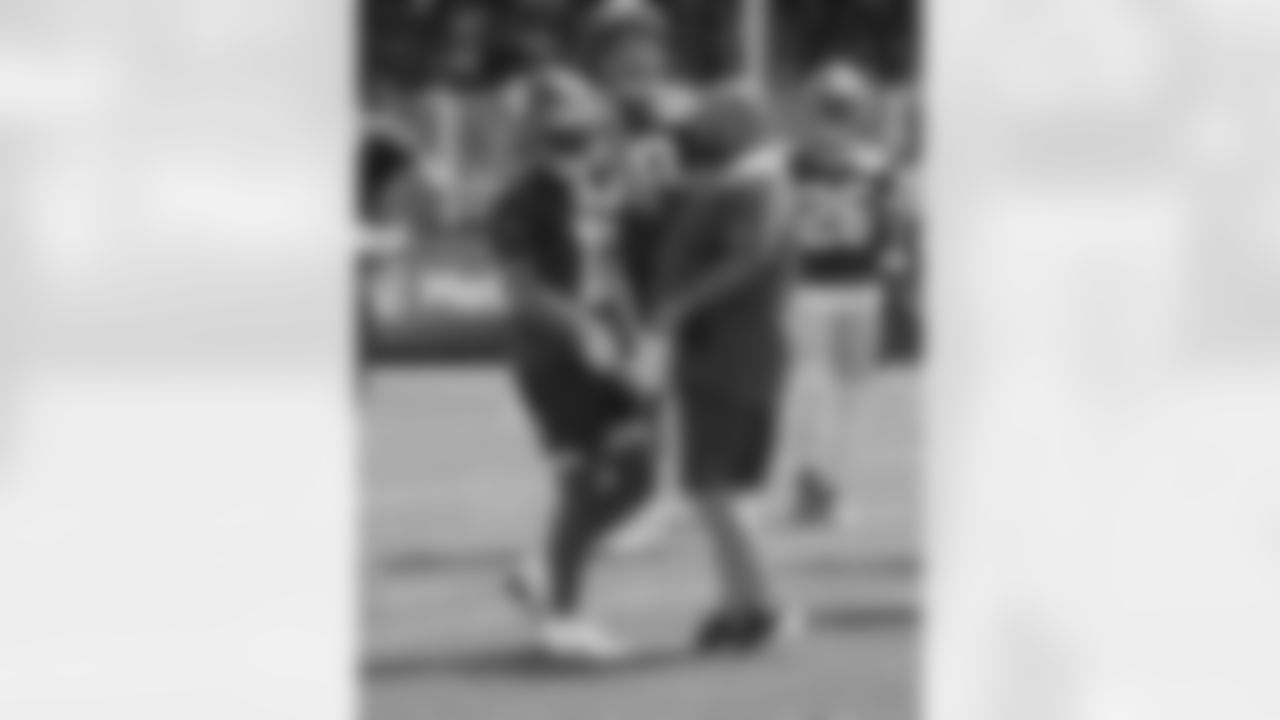
New York Giants head coach Brian Daboll talks with Wan'Dale Robinson during training camp practice at Quest Diagnostics Training Center on Wednesday July 27, 2022 in East Rutherford, New Jersey

New York Giants head coach Brian Daboll during organized team activity at Quest Diagnostics Training Center on Tuesday May 24, 2022 in East Rutherford, New Jersey
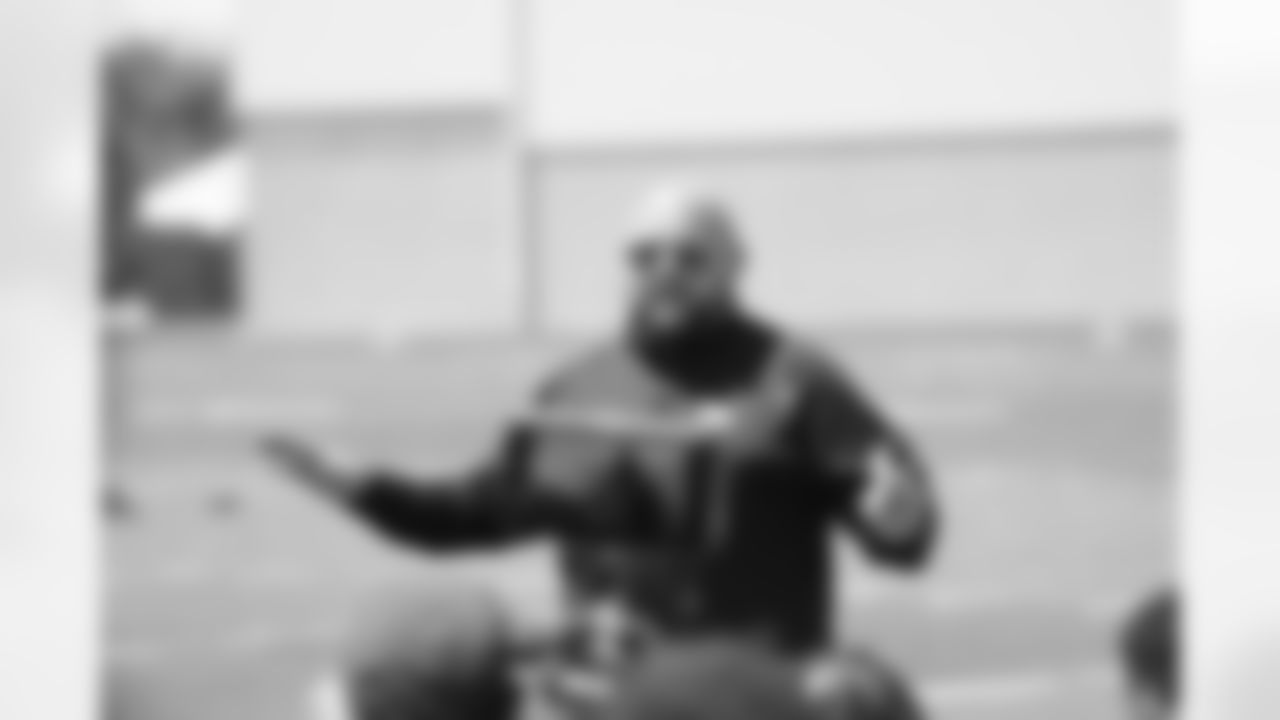
New York Giants head coach Brian Daboll talks to his team following an organized team activity practice at Quest Diagnostics Training Center on Thursday May 26, 2022 in East Rutherford, New Jersey

New York Giants head coach Brian Daboll during training camp practice at Quest Diagnostics Training Center on Wednesday July 27, 2022 in East Rutherford, New Jersey

New York Giants head coach Brian Daboll during a pre-season football game against the Cincinnati Bengals on Sunday August 21, 2022 in East Rutherford, New Jersey (Evan Pinkus/NY Giants)
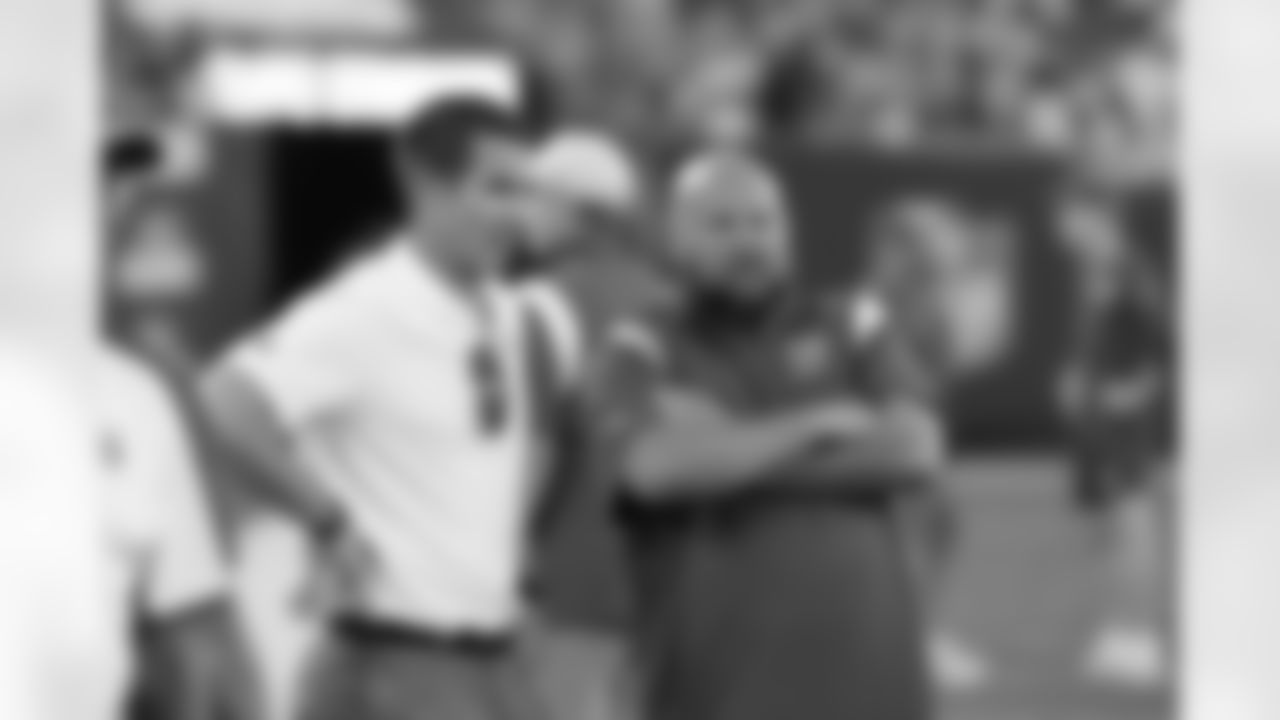
New York Giants head coach Brian Daboll talks with general manager Joe Schoen during training camp Fan Fest practice at MetLife Stadium on Friday August 5, 2022 in East Rutherford, New Jersey
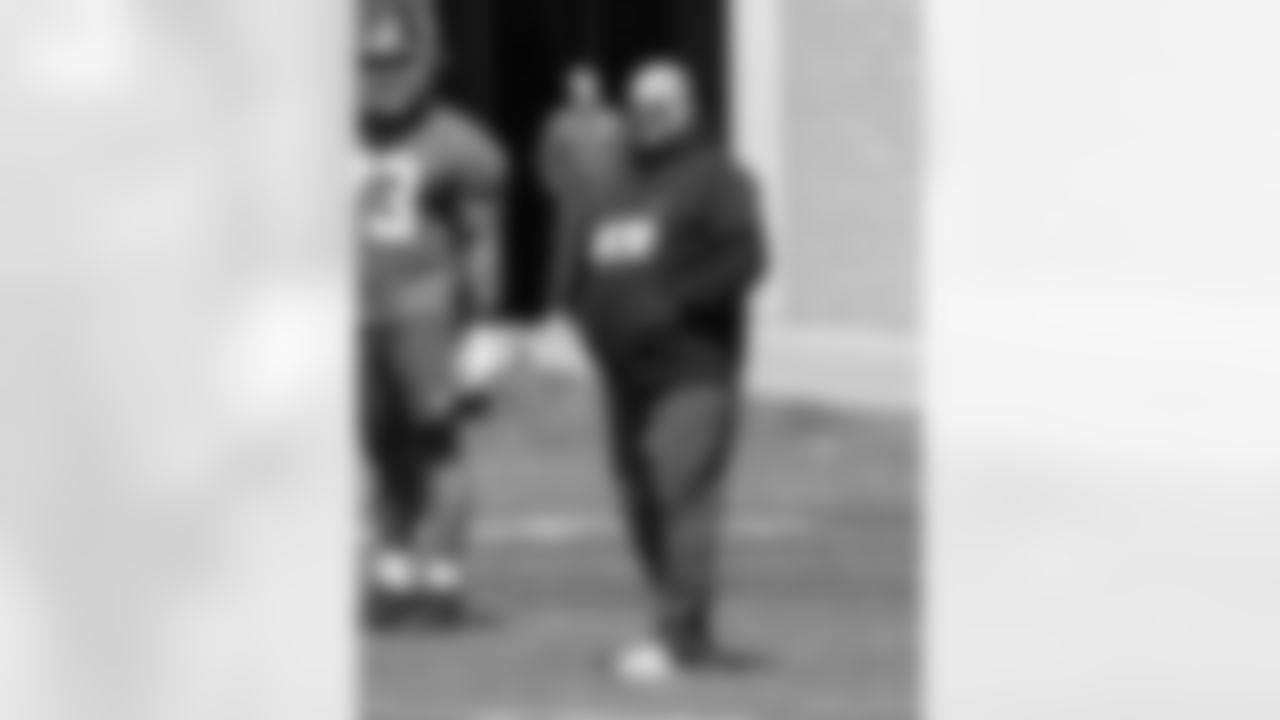
Brian Daboll during minicamp practice at Quest Diagnostics Training Center on Tuesday April 20, 2022 in East Rutherford, New Jersey
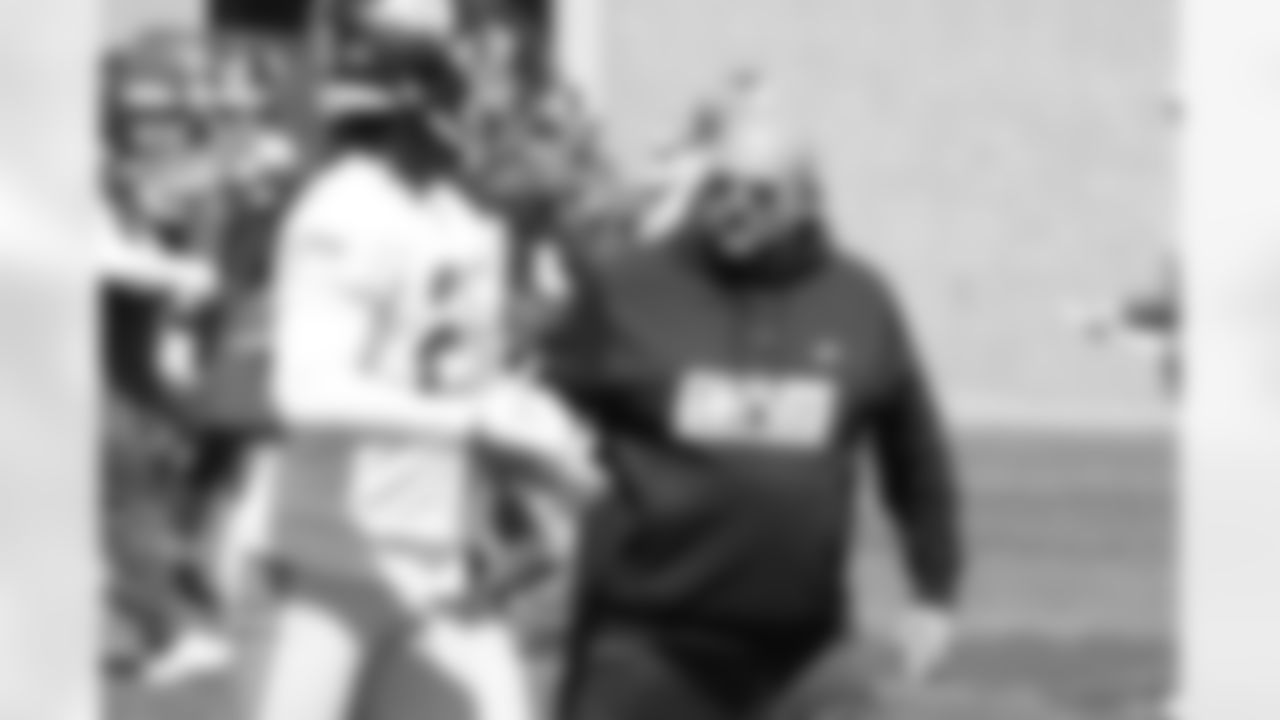
Brian Daboll before minicamp practice at Quest Diagnostics Training Center on Tuesday April 20, 2022 in East Rutherford, New Jersey
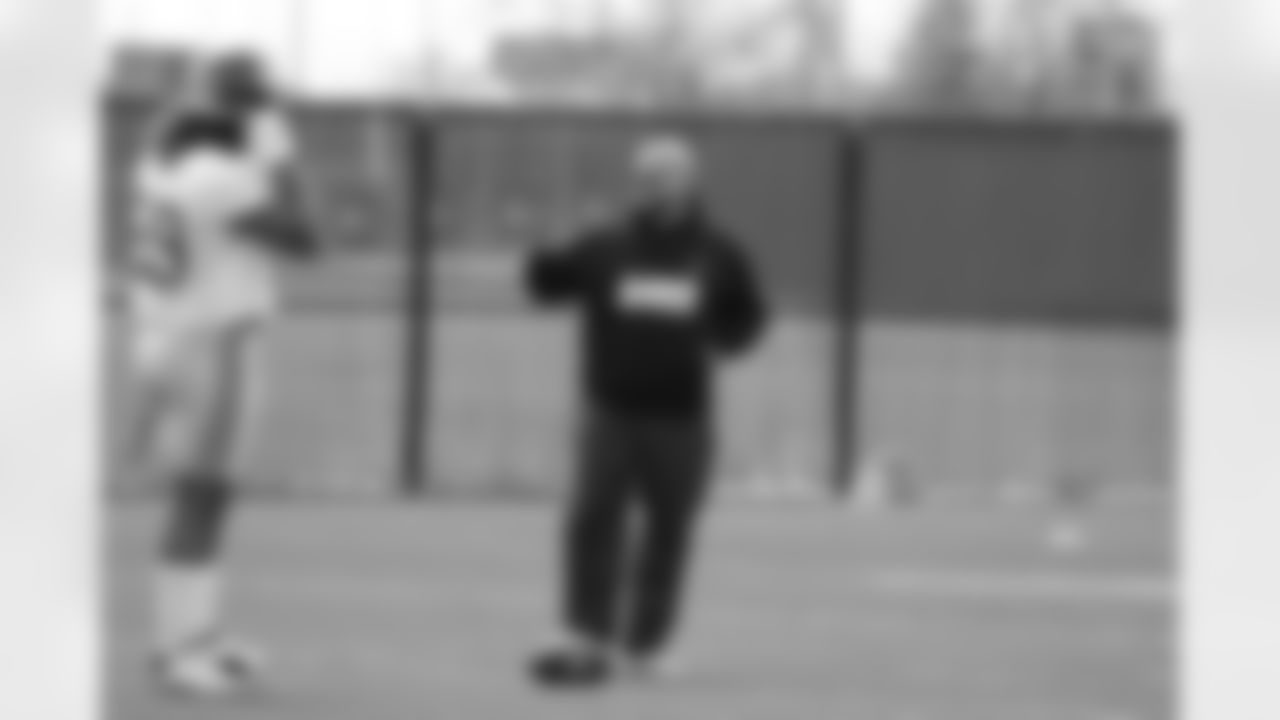
Head Coach Brian Daboll during minicamp practice at Quest Diagnostics Training Center on Tuesday April 21, 2022 in East Rutherford, New Jersey
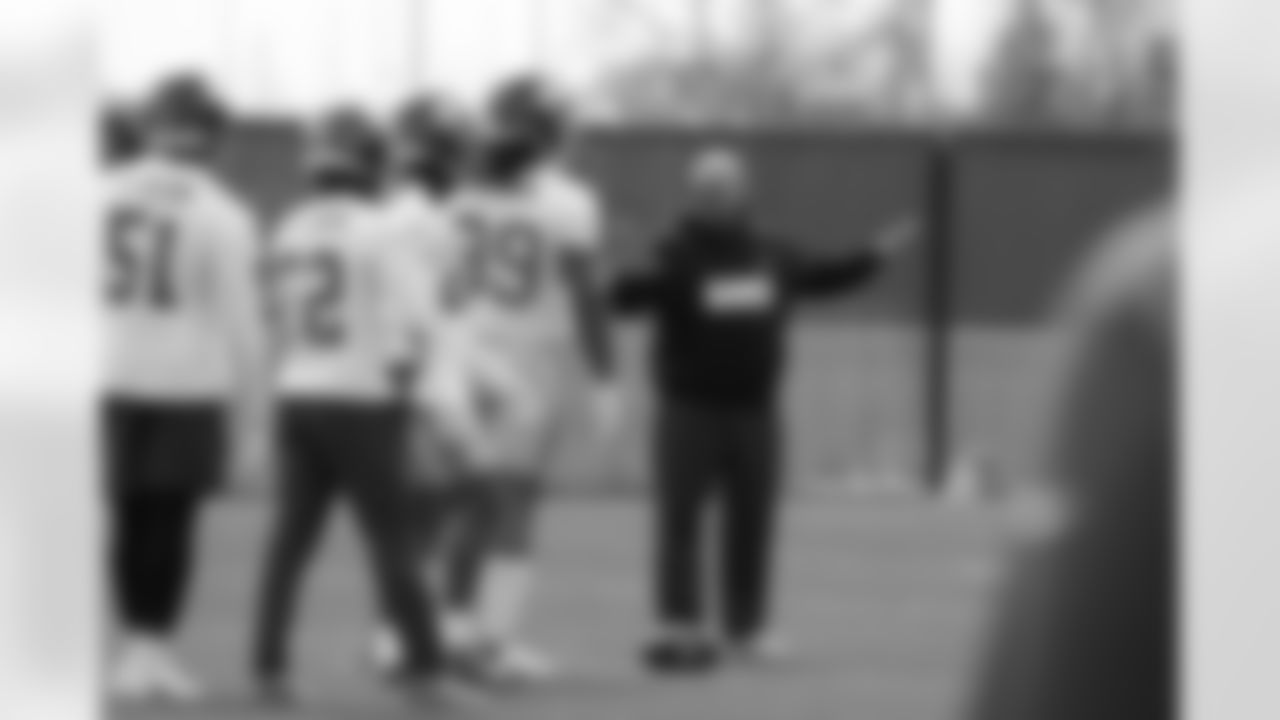
Head Coach Brian Daboll during minicamp practice at Quest Diagnostics Training Center on Tuesday April 21, 2022 in East Rutherford, New Jersey
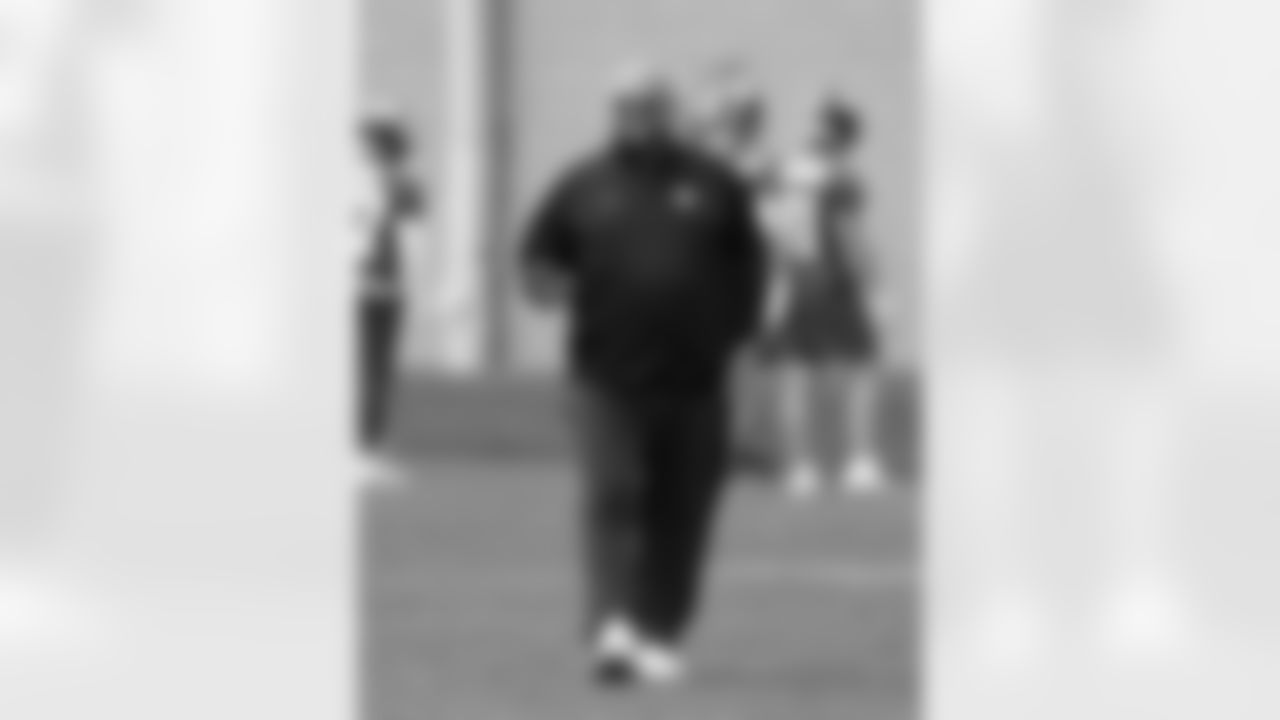
New York Giants head coach Brian Daboll during organized team activity at Quest Diagnostics Training Center on Tuesday May 24, 2022 in East Rutherford, New Jersey
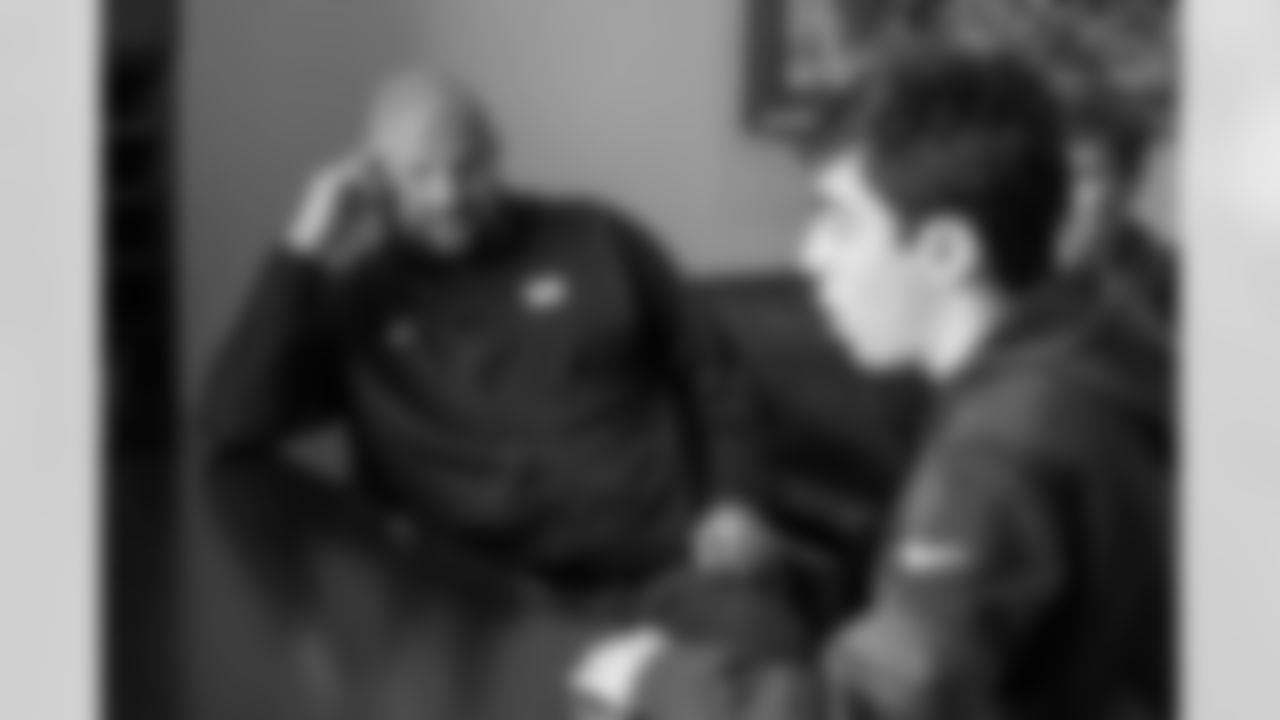

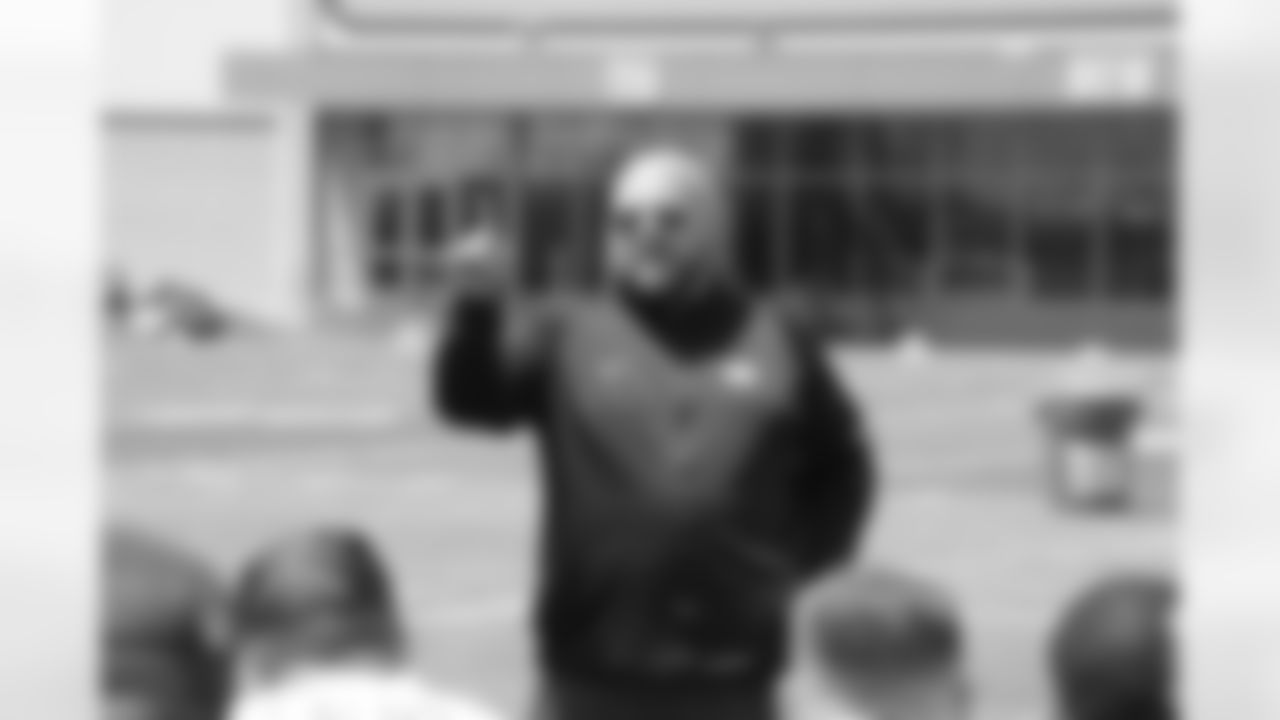
New York Giants head coach Brian Daboll talks to his team following an organized team activity practice at Quest Diagnostics Training Center on Thursday May 26, 2022 in East Rutherford, New Jersey

New York Giants head coach Brian Daboll during organized team activity at Quest Diagnostics Training Center on Tuesday May 24, 2022 in East Rutherford, New Jersey

Brian Daboll Head Coach, Amani Toomer

New York Giants head coach Brian Daboll talks with quarterback Daniel Jones (8) during a pre-season football game against the Cincinnati Bengals on Sunday August 21, 2022 in East Rutherford, New Jersey (Evan Pinkus/NY Giants)

New York Giants head coach Brian Daboll talks to his team following an organized team activity practice at Quest Diagnostics Training Center on Thursday May 26, 2022 in East Rutherford, New Jersey

New York Giants head coach Brian Daboll talks with quarterback Daniel Jones (8) during a pre-season football game against the Cincinnati Bengals on Sunday August 21, 2022 in East Rutherford, New Jersey (Evan Pinkus/NY Giants)

New York Giants head coach Brian Daboll during a pre-season football game against the Cincinnati Bengals on Sunday August 21, 2022 in East Rutherford, New Jersey (Evan Pinkus/NY Giants)
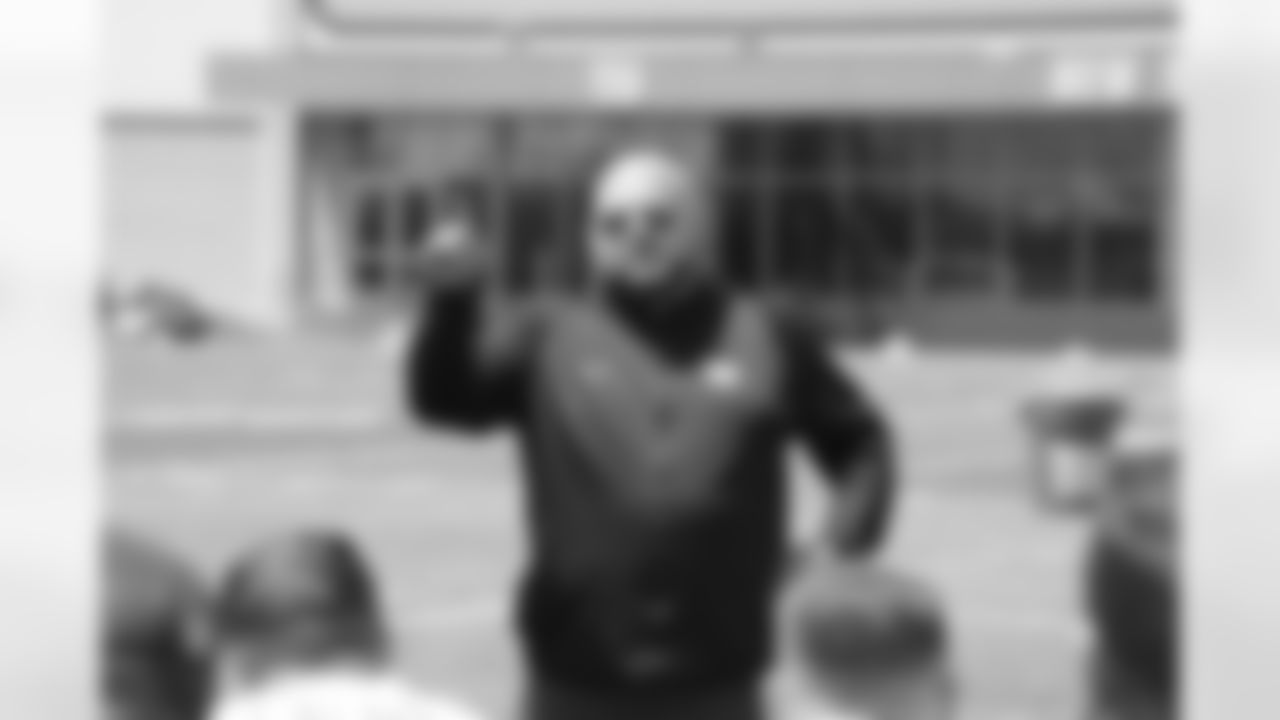
New York Giants head coach Brian Daboll talks to his team following an organized team activity practice at Quest Diagnostics Training Center on Thursday May 26, 2022 in East Rutherford, New Jersey

New York Giants head coach Brian Daboll talks to his team during Minicamp at Quest Diagnostics Training Center on Wednesday June 8, 2022 in East Rutherford, New Jersey

New York Giants head coach Brian Daboll talks with quarterback Daniel Jones (8) during training camp practice at Quest Diagnostics Training Center on Tuesday August 16, 2022 in East Rutherford, New Jersey

New York Giants head coach Brian Daboll introduces Osi Umenyiora during training camp practice at Quest Diagnostics Training Center on Thursday August 18, 2022 in East Rutherford, New Jersey

New York Giants head coach Brian Daboll during training camp Fan Fest practice at MetLife Stadium on Friday August 5, 2022 in East Rutherford, New Jersey

New York Giants head coach Brian Daboll talks with Osi Umenyiora during training camp practice at Quest Diagnostics Training Center on Thursday August 18, 2022 in East Rutherford, New Jersey
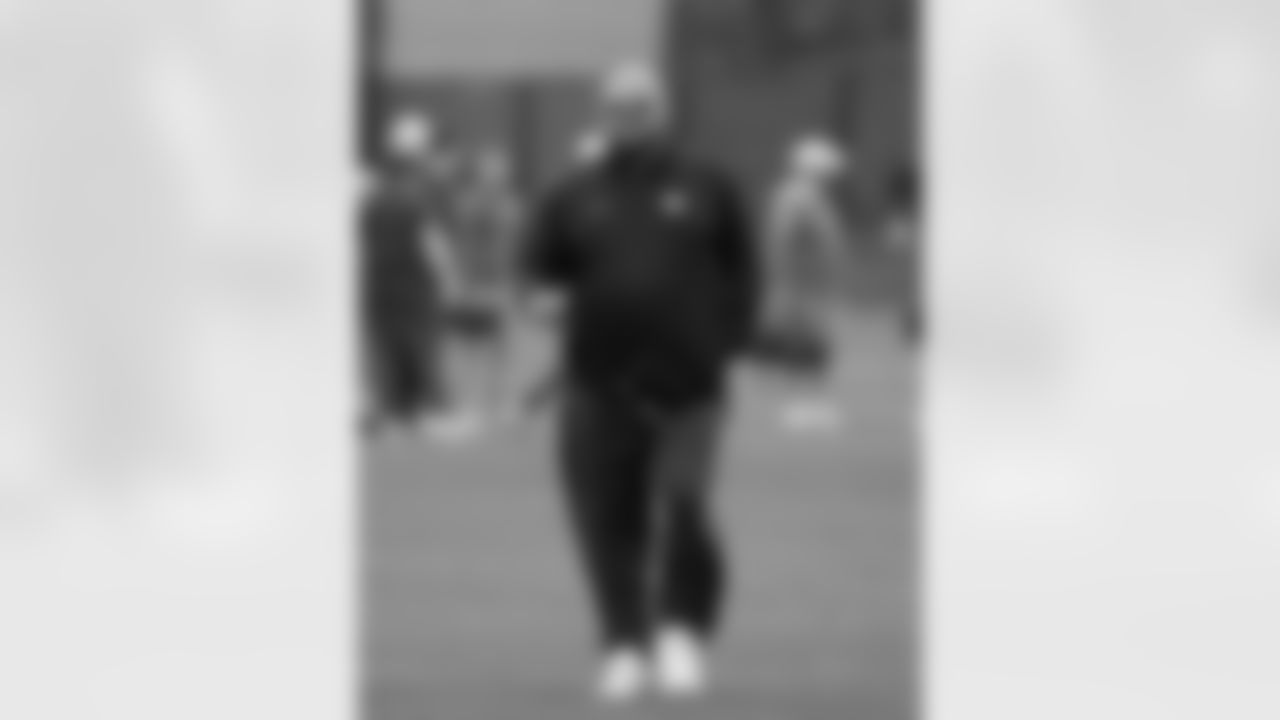
New York Giants head coach Brian Daboll during organized team activity at Quest Diagnostics Training Center on Tuesday May 24, 2022 in East Rutherford, New Jersey

New York Giants head coach Brian Daboll waves to fans before training camp Fan Fest practice at MetLife Stadium on Friday August 5, 2022 in East Rutherford, New Jersey

New York Giants head coach Brian Daboll during Minicamp at Quest Diagnostics Training Center on Wednesday June 8, 2022 in East Rutherford, New Jersey

Brian Daboll and Sam Prince shake hands during Minicamp at Quest Diagnostics Training Center on Wednesday June 8, 2022 in East Rutherford, New Jersey

New York Giants head coach Brian Daboll during training camp practice at Quest Diagnostics Training Center on Wednesday August 3, 2022 in East Rutherford, New Jersey

New York Giants head coach Brian Daboll during training camp practice at Quest Diagnostics Training Center on Wednesday August 3, 2022 in East Rutherford, New Jersey
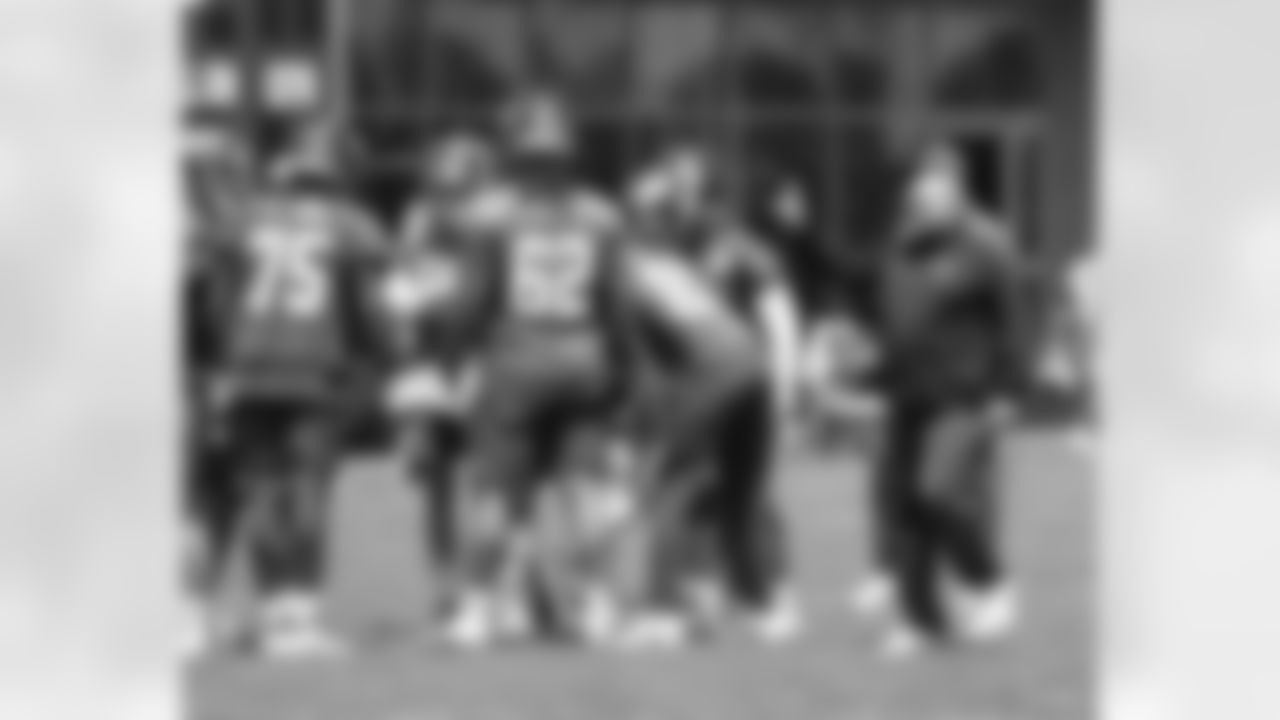
New York Giants head coach Brian Daboll during organized team activity at Quest Diagnostics Training Center on Monday May 23, 2022 in East Rutherford, New Jersey

Brian Daboll talks to Dexter Lawrence during Minicamp at Quest Diagnostics Training Center on Tuesday June 7, 2022 in East Rutherford, New Jersey
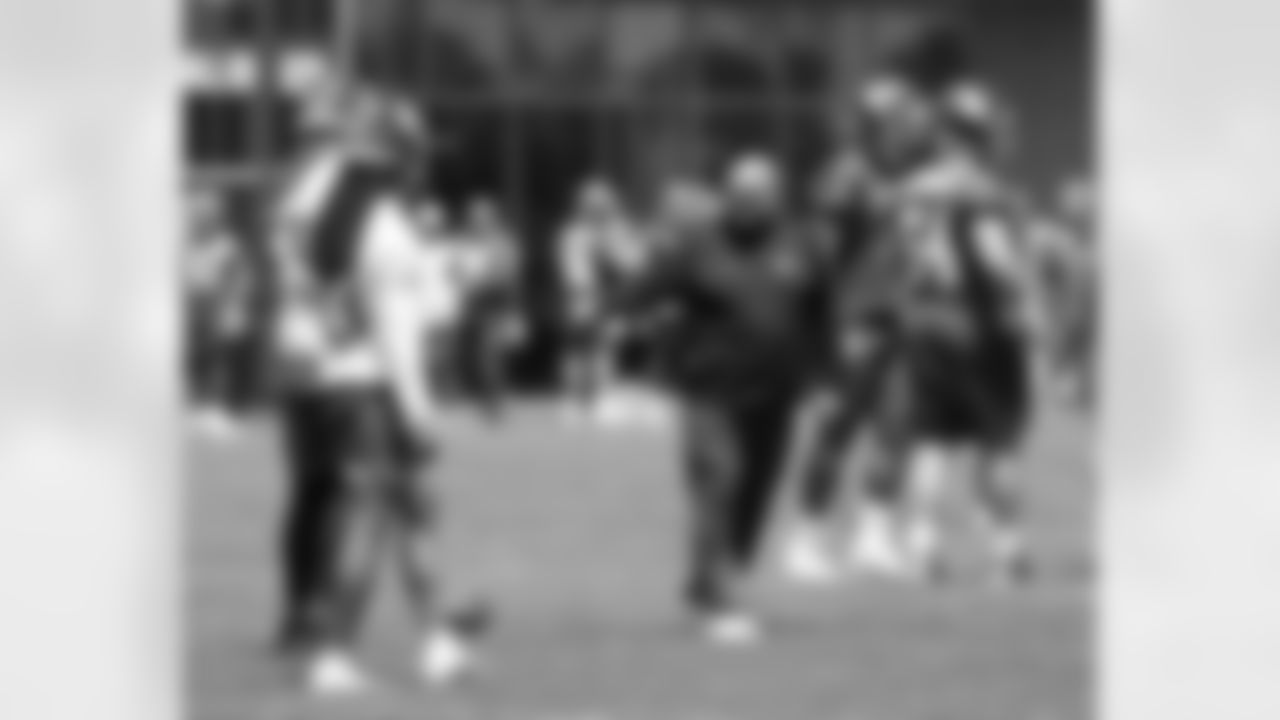
New York Giants head coach Brian Daboll during organized team activity at Quest Diagnostics Training Center on Monday May 23, 2022 in East Rutherford, New Jersey
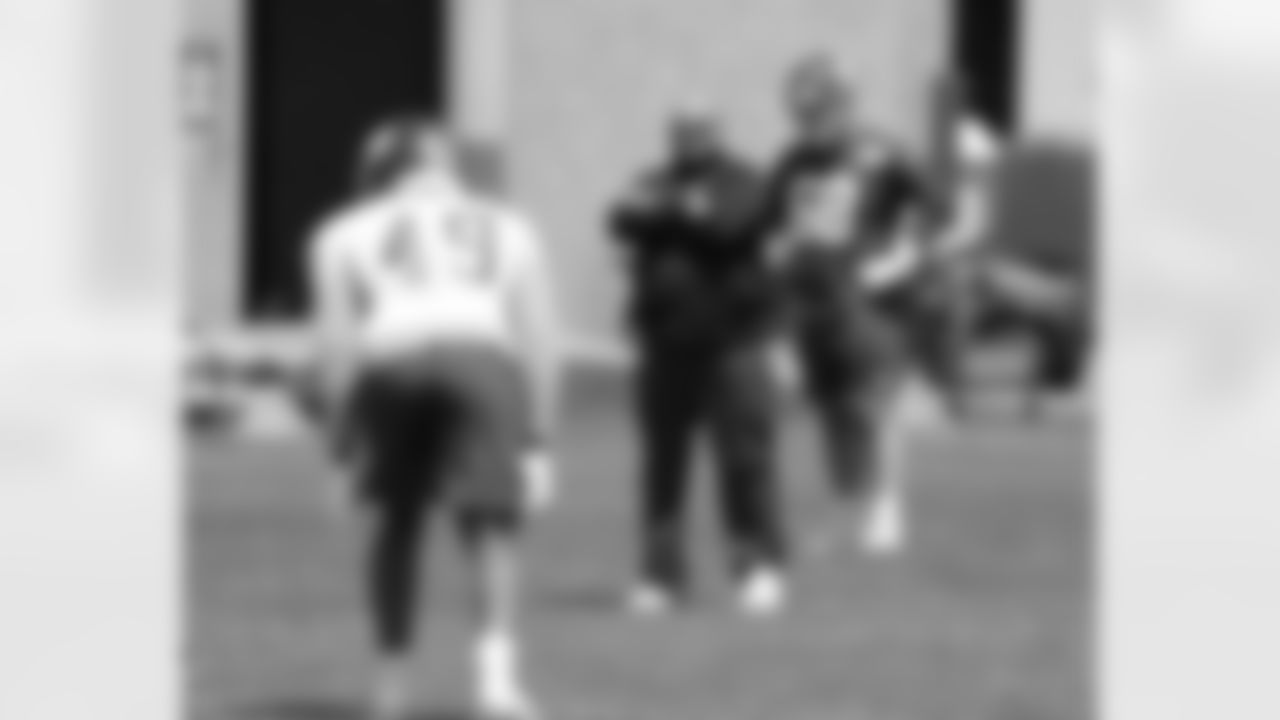
New York Giants head coach Brian Daboll during organized team activity at Quest Diagnostics Training Center on Monday May 23, 2022 in East Rutherford, New Jersey

New York Giants head coach Brian Daboll during training camp practice at Quest Diagnostics Training Center on Wednesday August 3, 2022 in East Rutherford, New Jersey
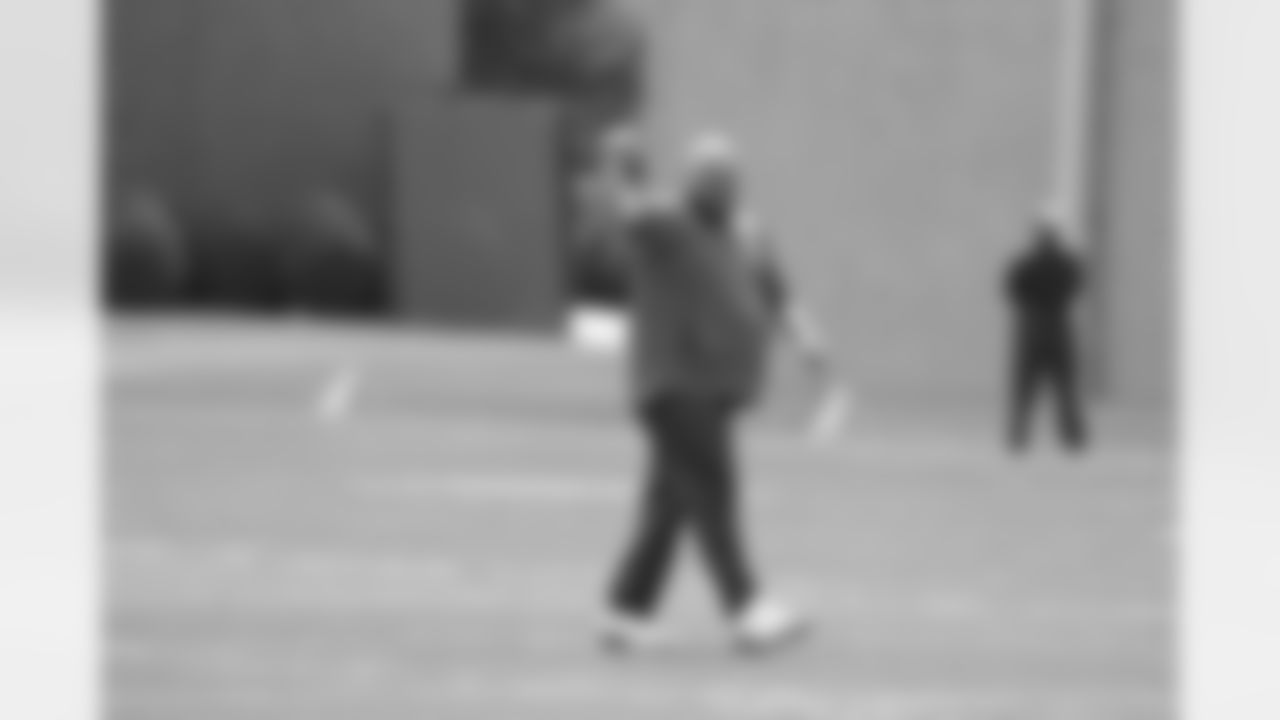
New York Giants head coach Brian Daboll during Minicamp at Quest Diagnostics Training Center on Tuesday June 7, 2022 in East Rutherford, New Jersey

New York Giants head coach Brian Daboll talks with former NFL coach Bill Cowher during training camp practice at Quest Diagnostics Training Center on Tuesday August 16, 2022 in East Rutherford, New Jersey

New York Giants Head Coach Brian Daboll during training camp practice at Quest Diagnostics Training Center on Wednesday August 3, 2022 in East Rutherford, New Jersey
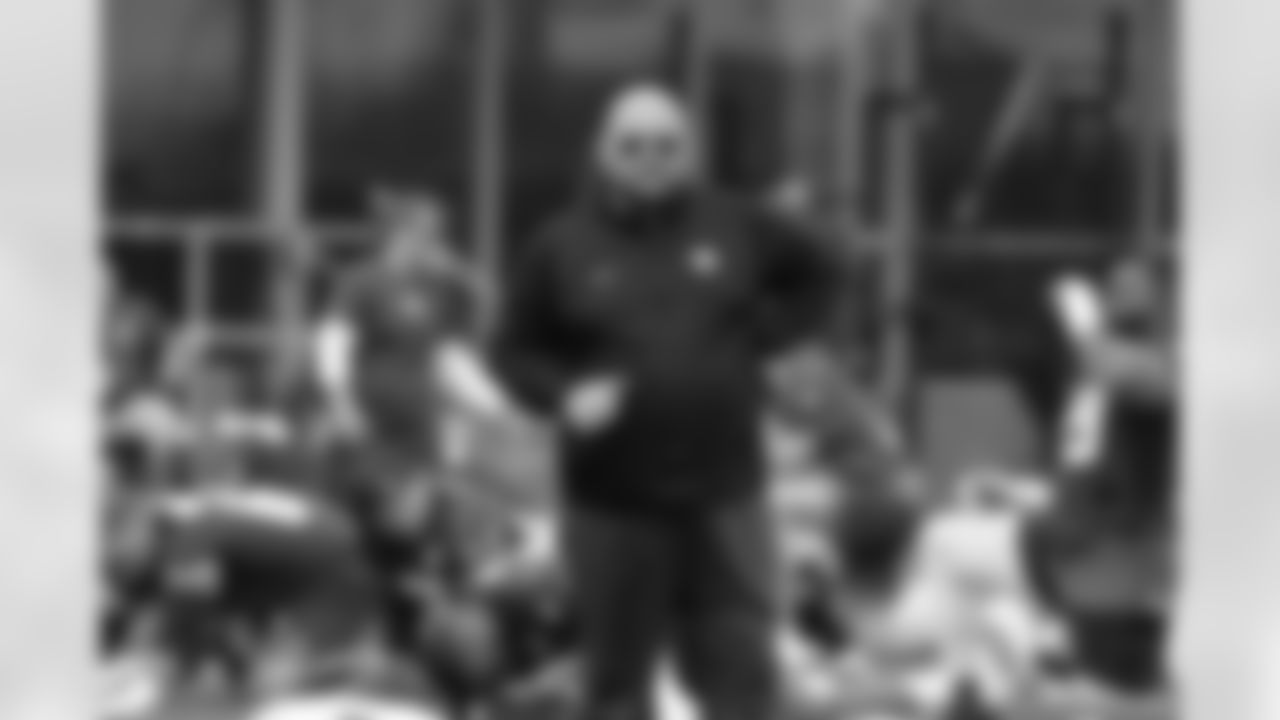
New York Giants head coach Brian Daboll during organized team activity at Quest Diagnostics Training Center on Monday May 16, 2022 in East Rutherford, New Jersey
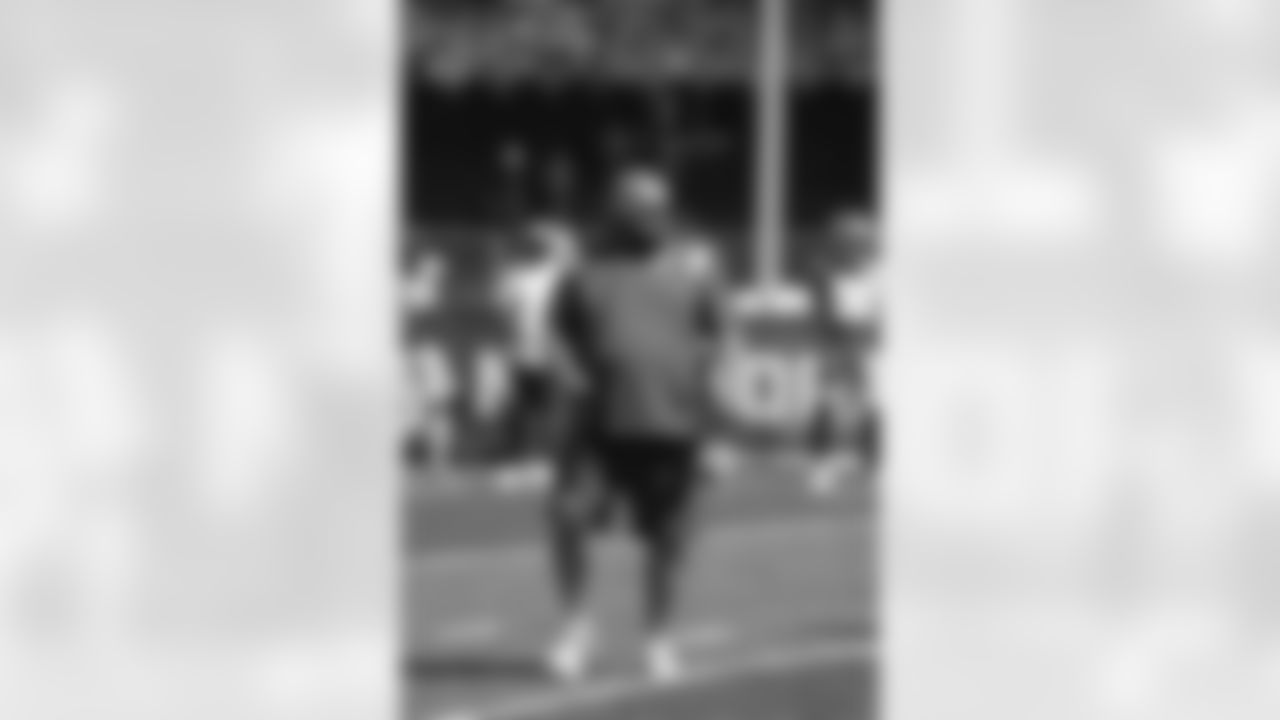
New York Giants head coach Brian Daboll during training camp practice at Quest Diagnostics Training Center on Thursday August 18, 2022 in East Rutherford, New Jersey

New York Giants head coach Brian Daboll talks with Joe Morris following training camp practice at Quest Diagnostics Training Center on Tuesday August 16, 2022 in East Rutherford, New Jersey
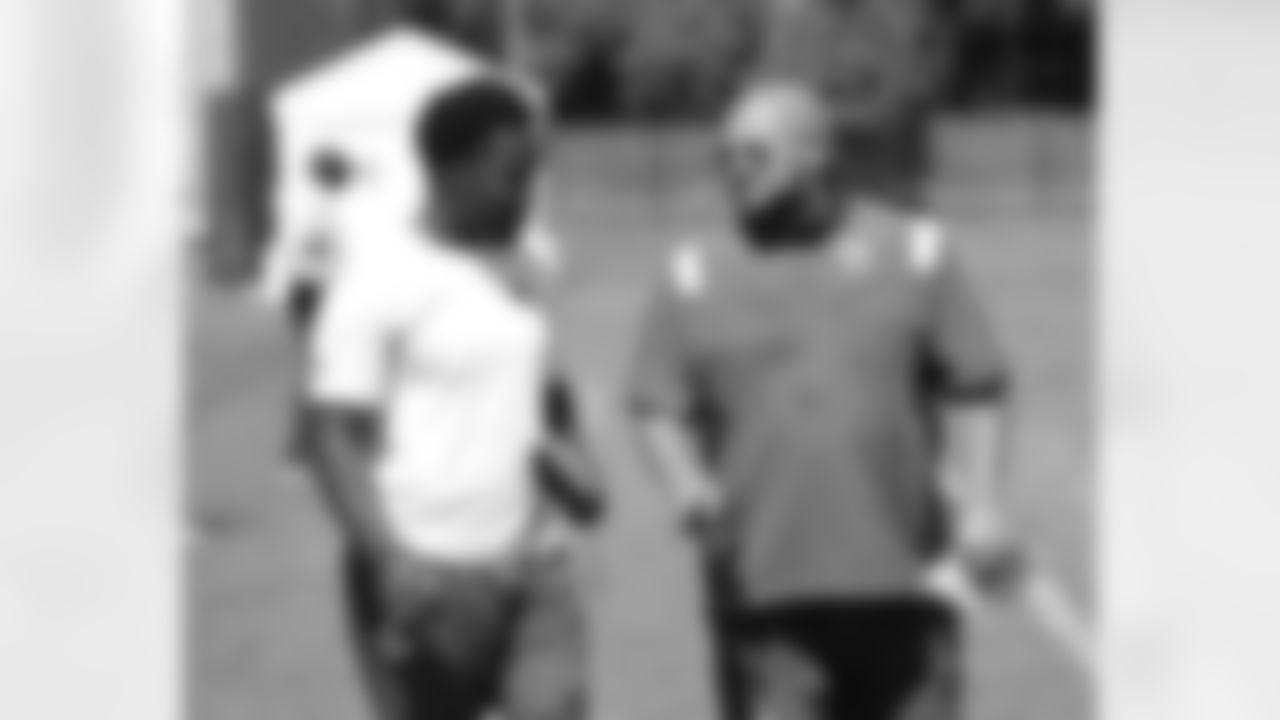
New York Giants head coach Brian Daboll talks with assistant general manager Brandon Brown during training camp practice at Quest Diagnostics Training Center on Wednesday August 3, 2022 in East Rutherford, New Jersey

New York Giants head coach Brian Daboll talks with former Giant Osi Umenyiora during training camp practice at Quest Diagnostics Training Center on Thursday August 18, 2022 in East Rutherford, New Jersey
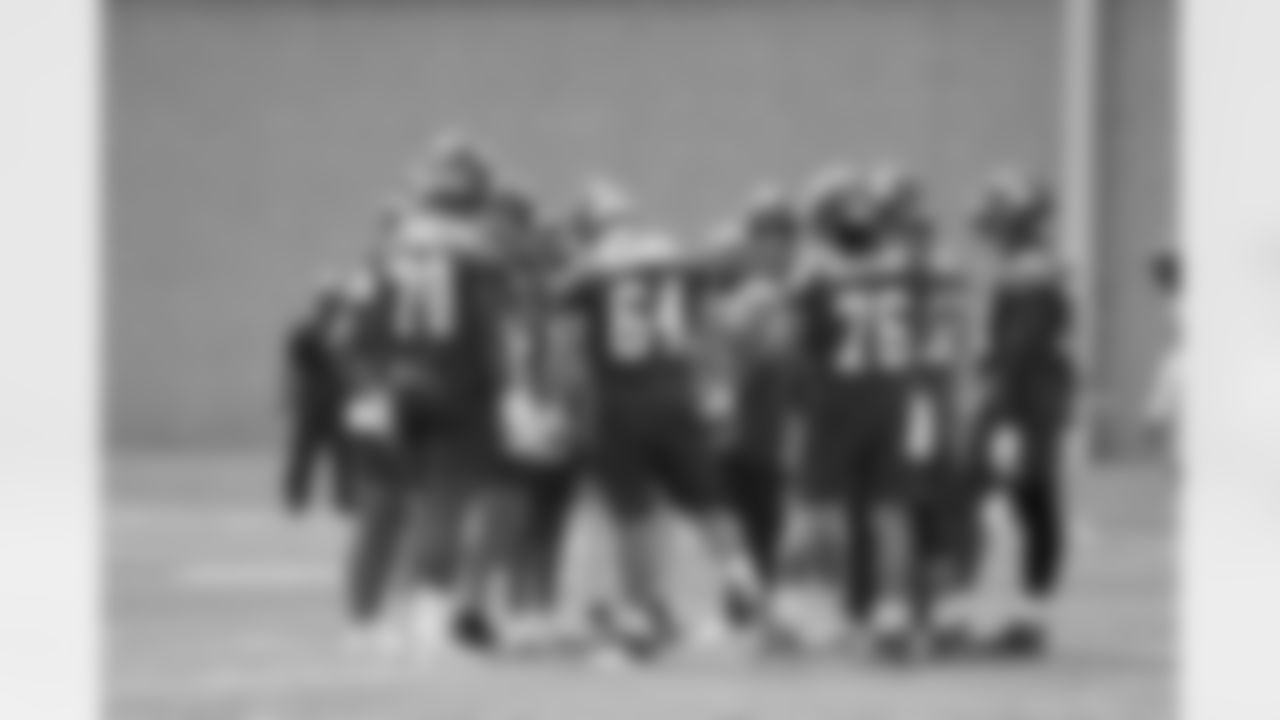
Brian Daboll stands in the offensive huddle during Minicamp at Quest Diagnostics Training Center on Tuesday June 7, 2022 in East Rutherford, New Jersey
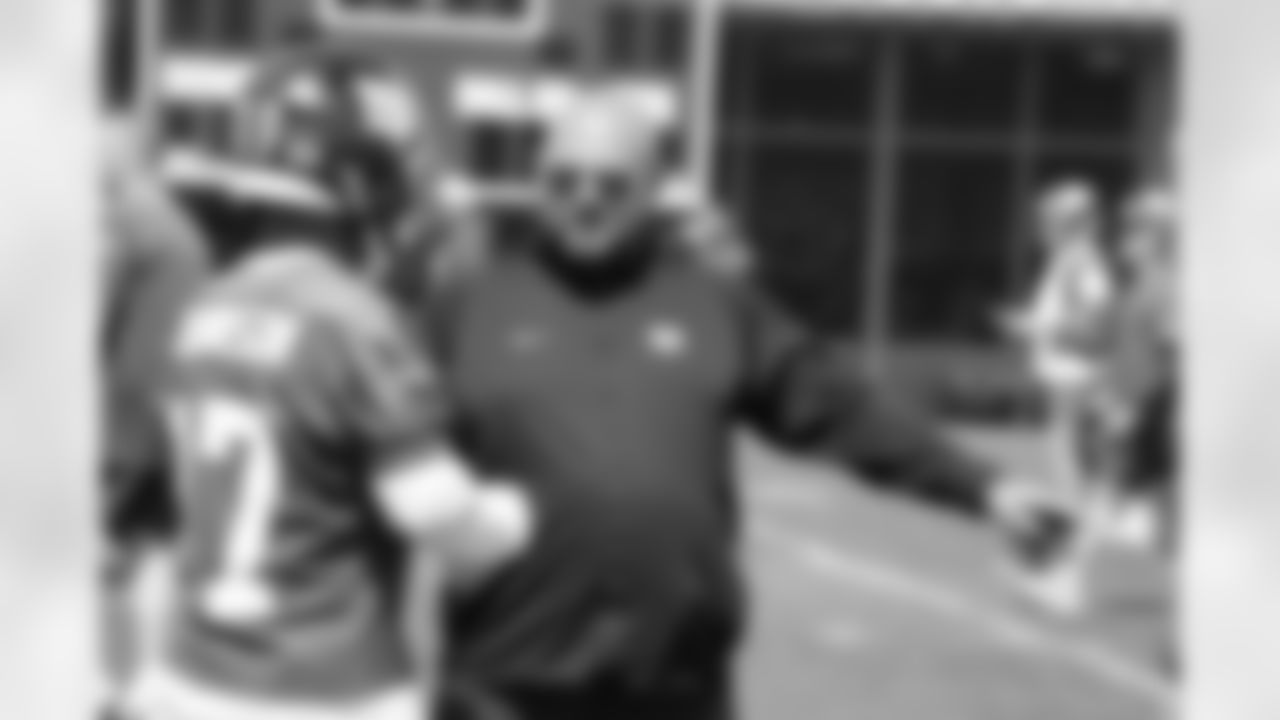
New York Giants head coach Brian Daboll during organized team activity at Quest Diagnostics Training Center on Monday May 23, 2022 in East Rutherford, New Jersey

New York Giants head coach Brian Daboll talks to his team following a preseason NFL football game against New England Patriots on Thursday August 11, 2022 in Foxborough, MA

New York Giants head coach Brian Daboll talks to his team following a preseason NFL football game against New England Patriots on Thursday August 11, 2022 in Foxborough, MA

Brian Daboll and Joe Schoen talk during Minicamp at Quest Diagnostics Training Center on Tuesday June 7, 2022 in East Rutherford, New Jersey

Brian Daboll during Minicamp at Quest Diagnostics Training Center on Tuesday June 7, 2022 in East Rutherford, New Jersey
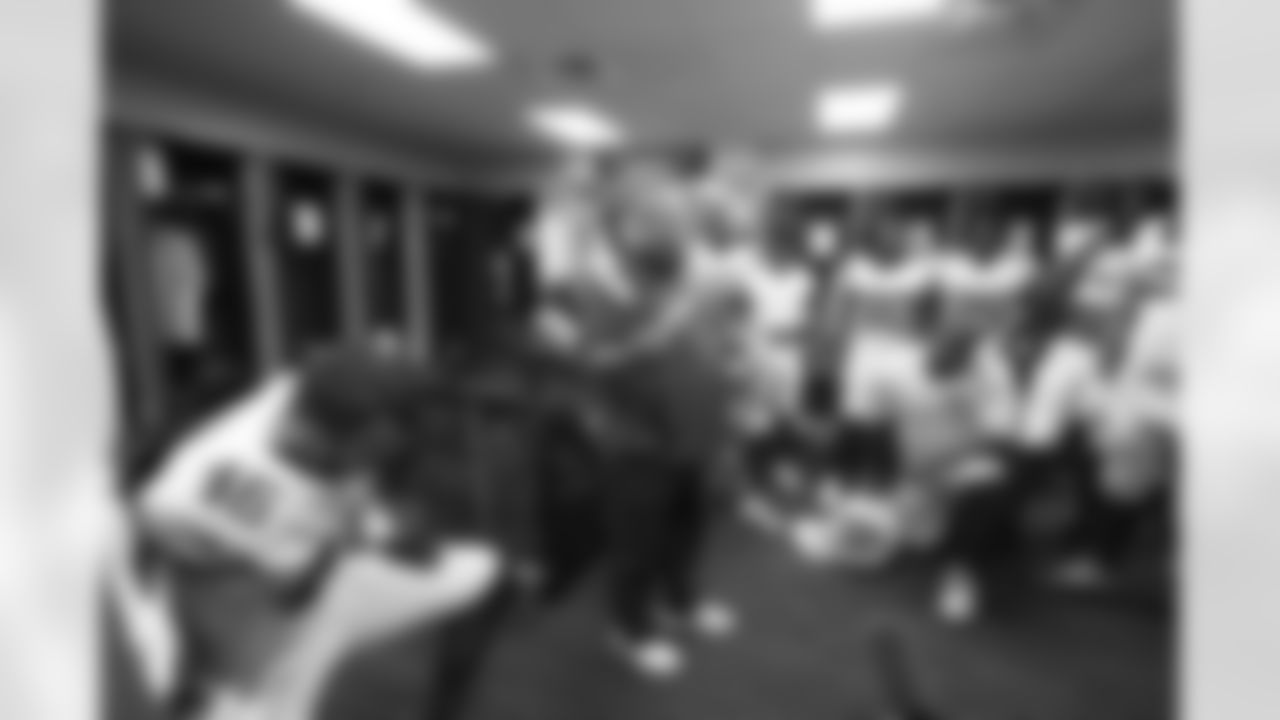
New York Giants head coach Brian Daboll talks to his team following a preseason NFL football game against New England Patriots on Thursday August 11, 2022 in Foxborough, MA
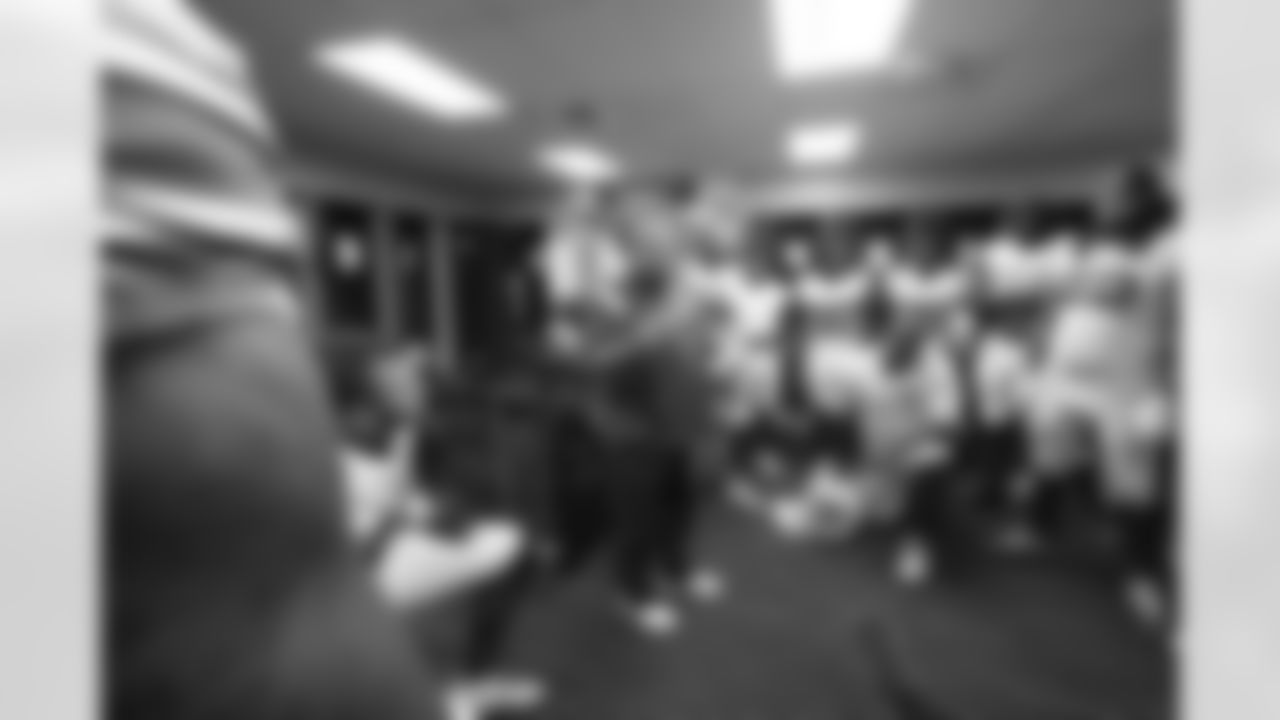
New York Giants head coach Brian Daboll talks to his team following a preseason NFL football game against New England Patriots on Thursday August 11, 2022 in Foxborough, MA

New York Giants head coach Brian Daboll during Minicamp at Quest Diagnostics Training Center on Tuesday June 7, 2022 in East Rutherford, New Jersey

New York Giants head coach Brian Daboll talks with Joe Schoen before a preseason NFL football game against New England Patriots on Thursday August 11, 2022 in Foxborough, MA

New York Giants head coach Brian Daboll during Minicamp at Quest Diagnostics Training Center on Tuesday June 7, 2022 in East Rutherford, New Jersey

Brian Daboll and Wink Martindale talk during Minicamp at Quest Diagnostics Training Center on Tuesday June 7, 2022 in East Rutherford, New Jersey

New York Giants head coach Brian Daboll talks with former New York Giant OJ Anderson following training camp practice at Quest Diagnostics Training Center on Tuesday August 16, 2022 in East Rutherford, New Jersey

New York Giants head coach Brian Daboll talks with quarterback Daniel Jones (8) during training camp practice at Quest Diagnostics Training Center on Tuesday August 16, 2022 in East Rutherford, New Jersey

New York Giants head coach Brian Daboll before a preseason NFL football game against New England Patriots on Thursday August 11, 2022 in Foxborough, MA

New York Giants head coach Brian Daboll talks with New York Giants defensive end Leonard Williams (99) during training camp practice at Quest Diagnostics Training Center on Tuesday August 16, 2022 in East Rutherford, New Jersey

New York Giants head coach Brian Daboll during Minicamp at Quest Diagnostics Training Center on Tuesday June 7, 2022 in East Rutherford, New Jersey

Brandon Jacobs talks with Brian Daboll after training camp practice at Quest Diagnostics Training Center on Saturday July 30, 2022 in East Rutherford, New Jersey
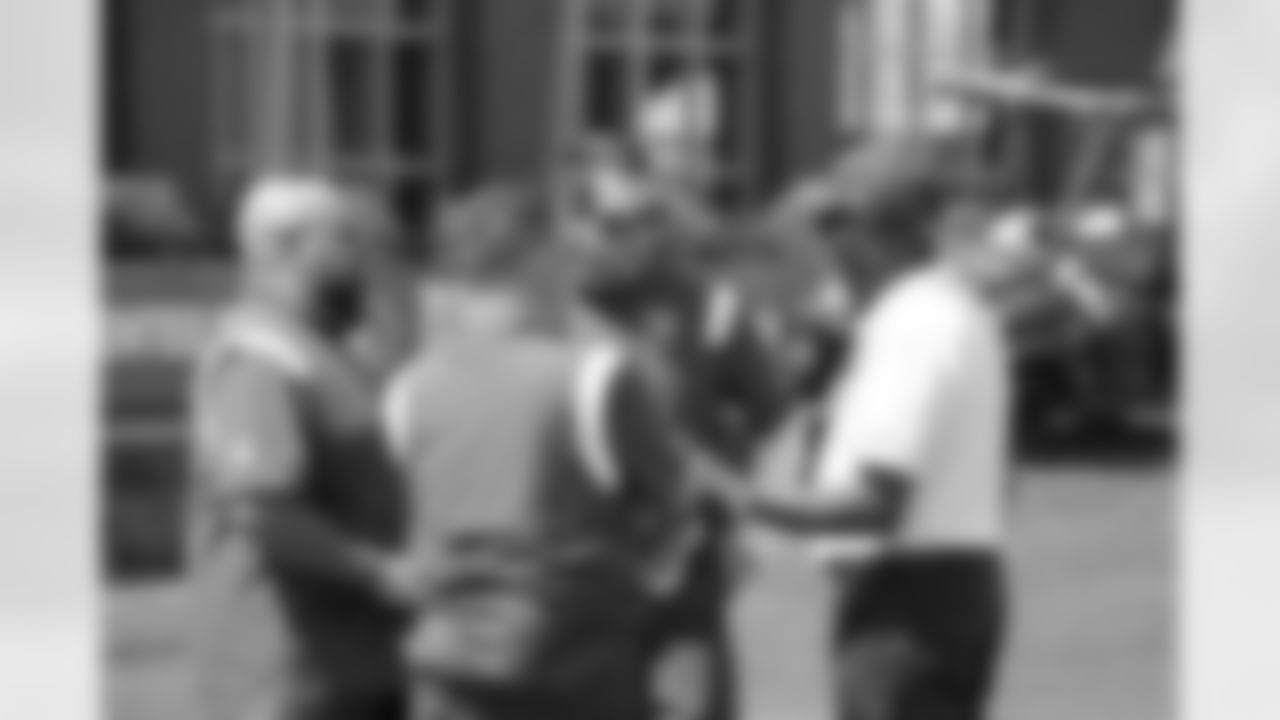
New York Giants head coach Brian Daboll talks with Joe Schoen, Ronnie Barnes and Leigh Weiss during training camp practice at Quest Diagnostics Training Center on Monday August 15, 2022 in East Rutherford, New Jersey

New York Giants head coach Brian Daboll and General Manager Joe Schoen watch training camp practice at Quest Diagnostics Training Center on Monday August 1, 2022 in East Rutherford, New Jersey

New York Giants head coach Brian Daboll arriving before a preseason NFL football game against New England Patriots on Thursday August 11, 2022 in Foxborough, MA

New York Giants head coach Brian Daboll talks to high school football players after training camp practice at Quest Diagnostics Training Center on Saturday July 30, 2022 in East Rutherford, New Jersey

New York Giants head coach Brian Daboll arriving before a preseason NFL football game against New England Patriots on Thursday August 11, 2022 in Foxborough, MA
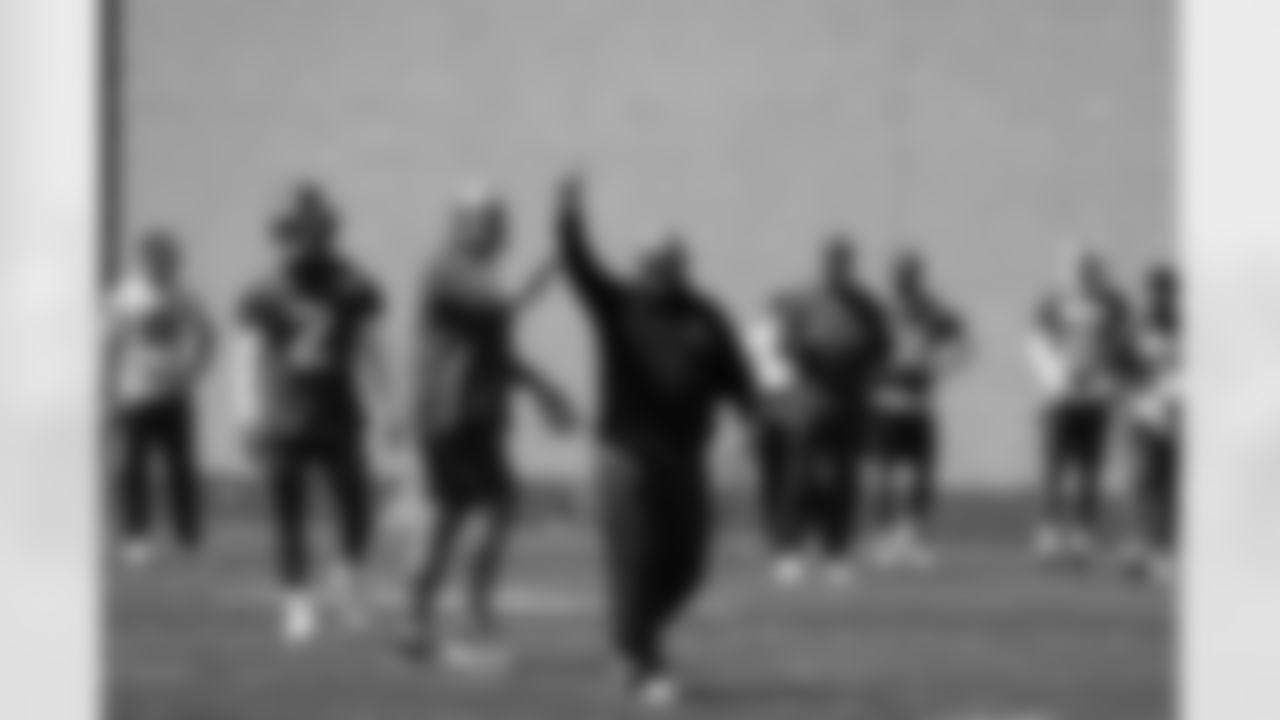
New York Giants head coach Brian Daboll during organized team activity at Quest Diagnostics Training Center on Tuesday May 17, 2022 in East Rutherford, New Jersey
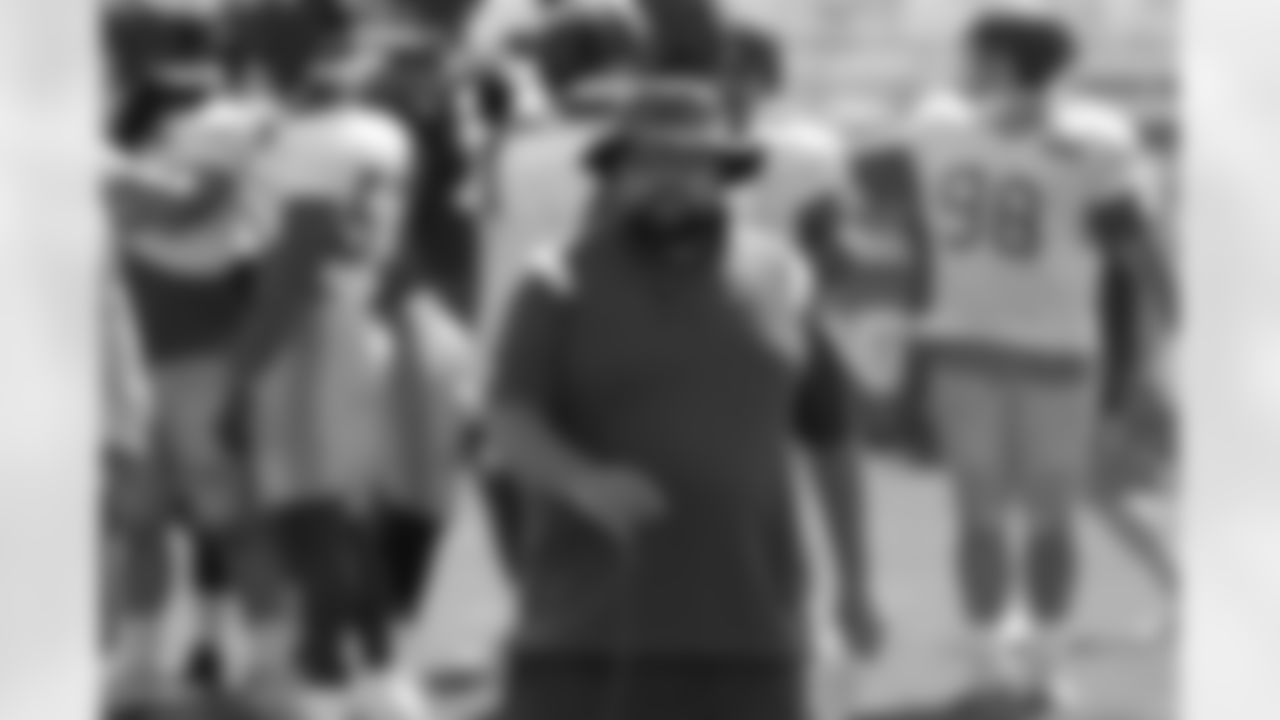
New York Giants head coach Brian Daboll during training camp practice at Quest Diagnostics Training Center on Monday August 15, 2022 in East Rutherford, New Jersey
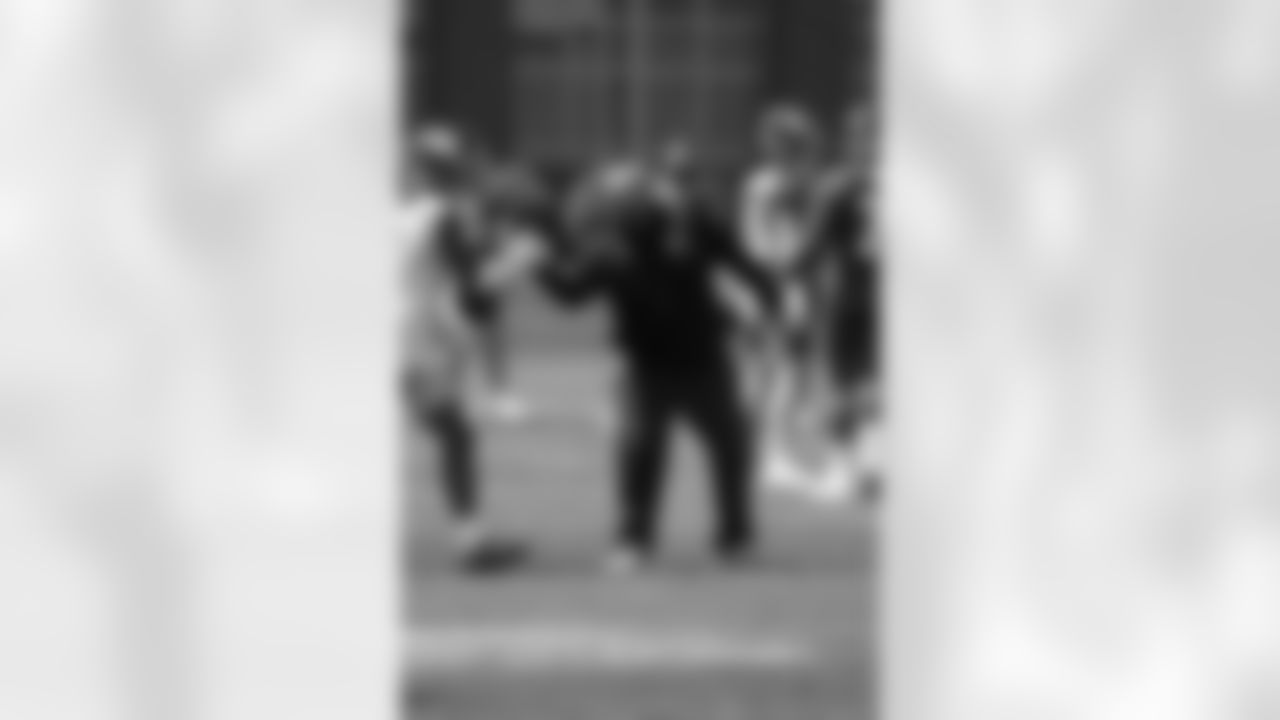
New York Giants head coach Brian Daboll shakes hands with head coach Brian Daboll during organized team activity at Quest Diagnostics Training Center on Tuesday May 17, 2022 in East Rutherford, New Jersey
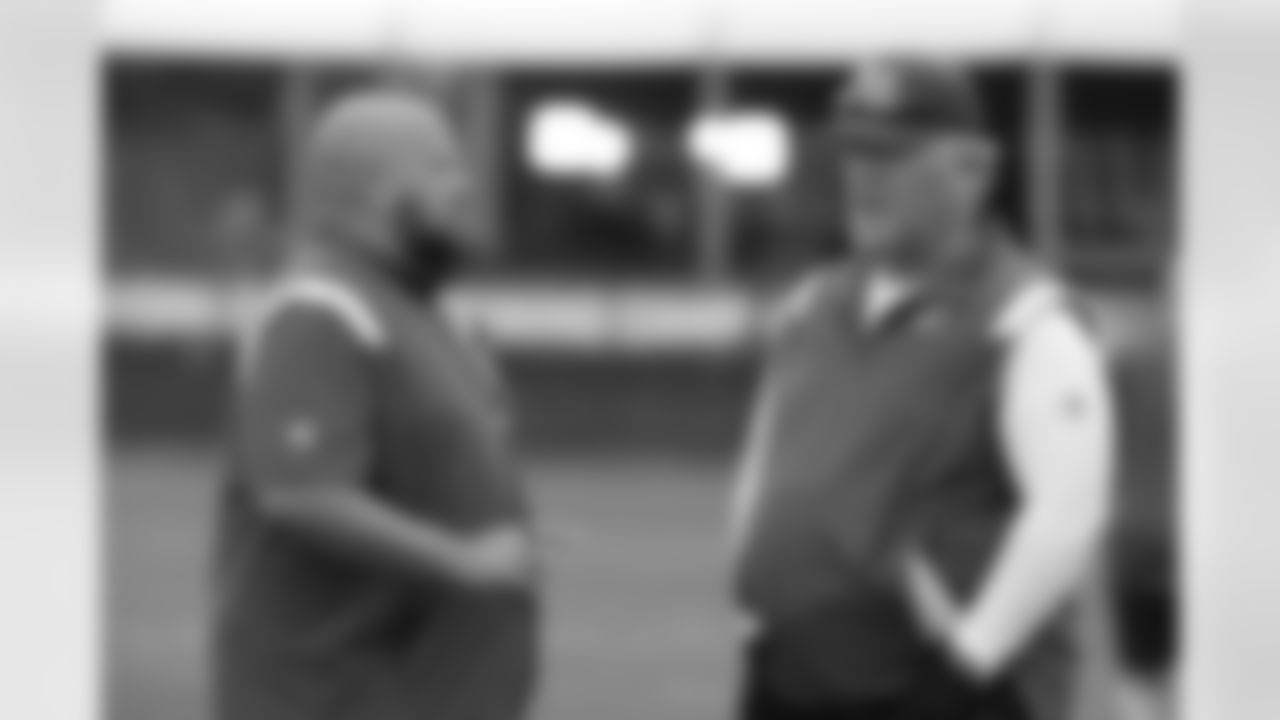
New York Giants head coach Brian Daboll talks with defensive coordinator Don Martindale during training camp practice at Quest Diagnostics Training Center on Monday August 1, 2022 in East Rutherford, New Jersey
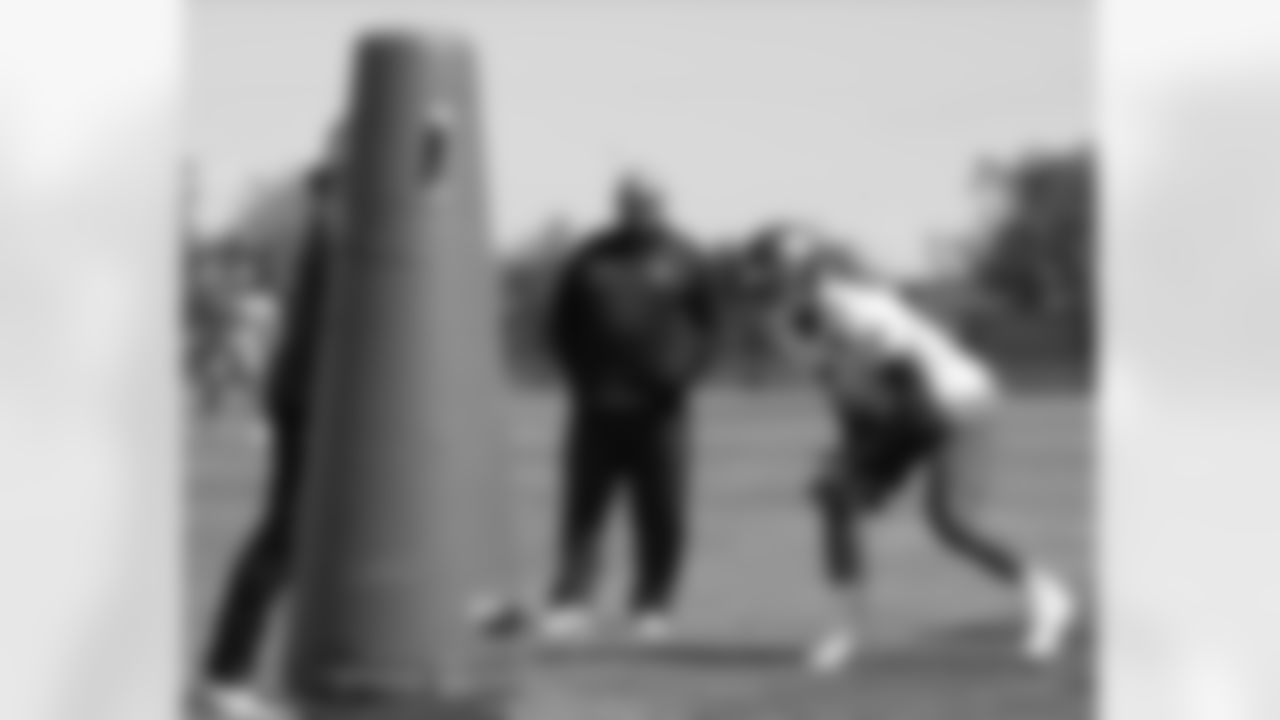
New York Giants head coach Brian Daboll watches during organized team activity at Quest Diagnostics Training Center on Tuesday May 17, 2022 in East Rutherford, New Jersey

Brandon Jacobs talks with Brian Daboll after training camp practice at Quest Diagnostics Training Center on Saturday July 30, 2022 in East Rutherford, New Jersey

New York Giants head coach Brian Daboll during organized team activity at Quest Diagnostics Training Center on Monday May 16, 2022 in East Rutherford, New Jersey
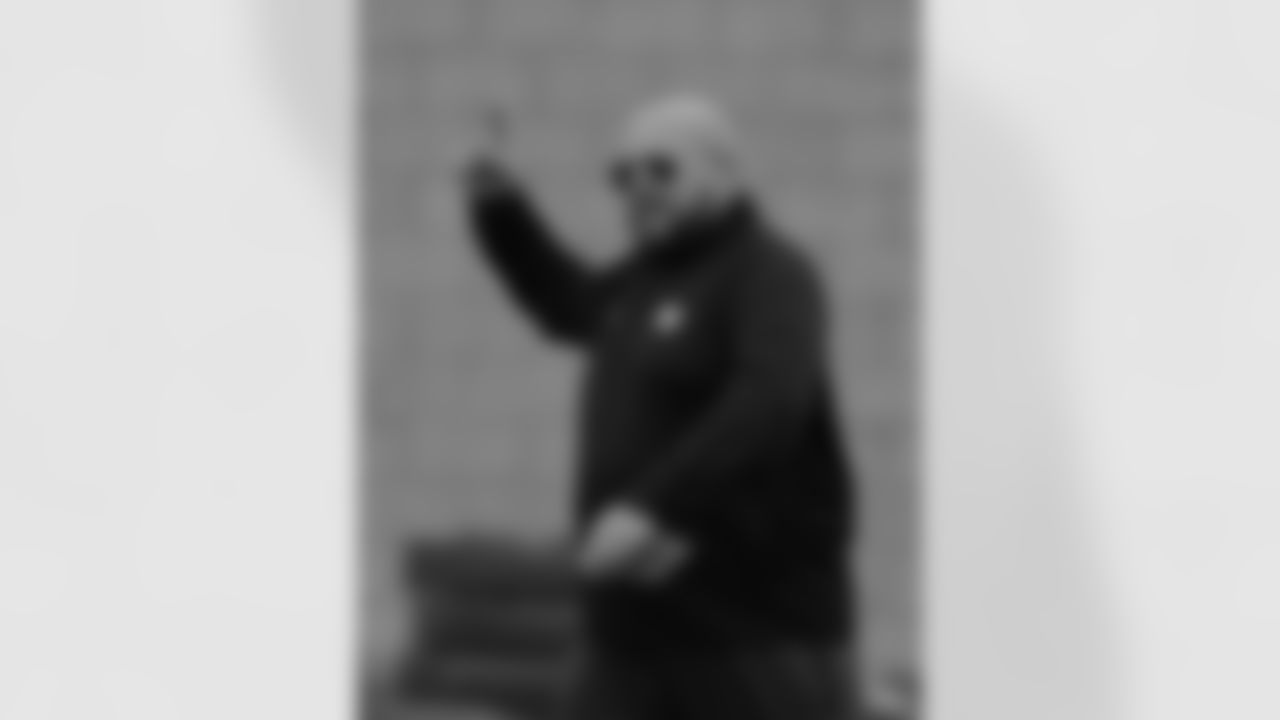
New York Giants head coach Brian Daboll during organized team activity at Quest Diagnostics Training Center on Monday May 16, 2022 in East Rutherford, New Jersey
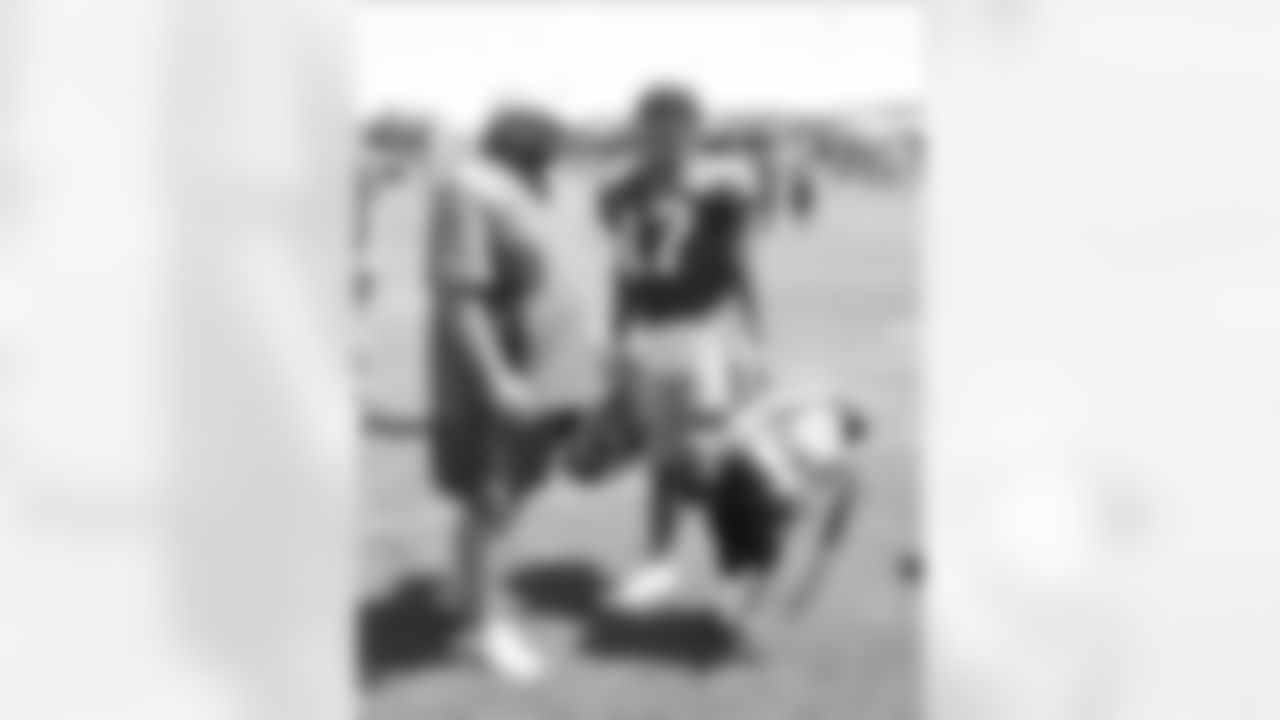
New York Giants head coach Brian Daboll talks with wide receiver Wan'Dale Robinson (17) following training camp practice at Quest Diagnostics Training Center on Wednesday August 3, 2022 in East Rutherford, New Jersey

New York Giants head coach Brian Daboll during training camp practice at Quest Diagnostics Training Center on Sunday August 14, 2022 in East Rutherford, New Jersey

New York Giants head coach Brian Daboll during training camp practice at Quest Diagnostics Training Center on Sunday August 14, 2022 in East Rutherford, New Jersey
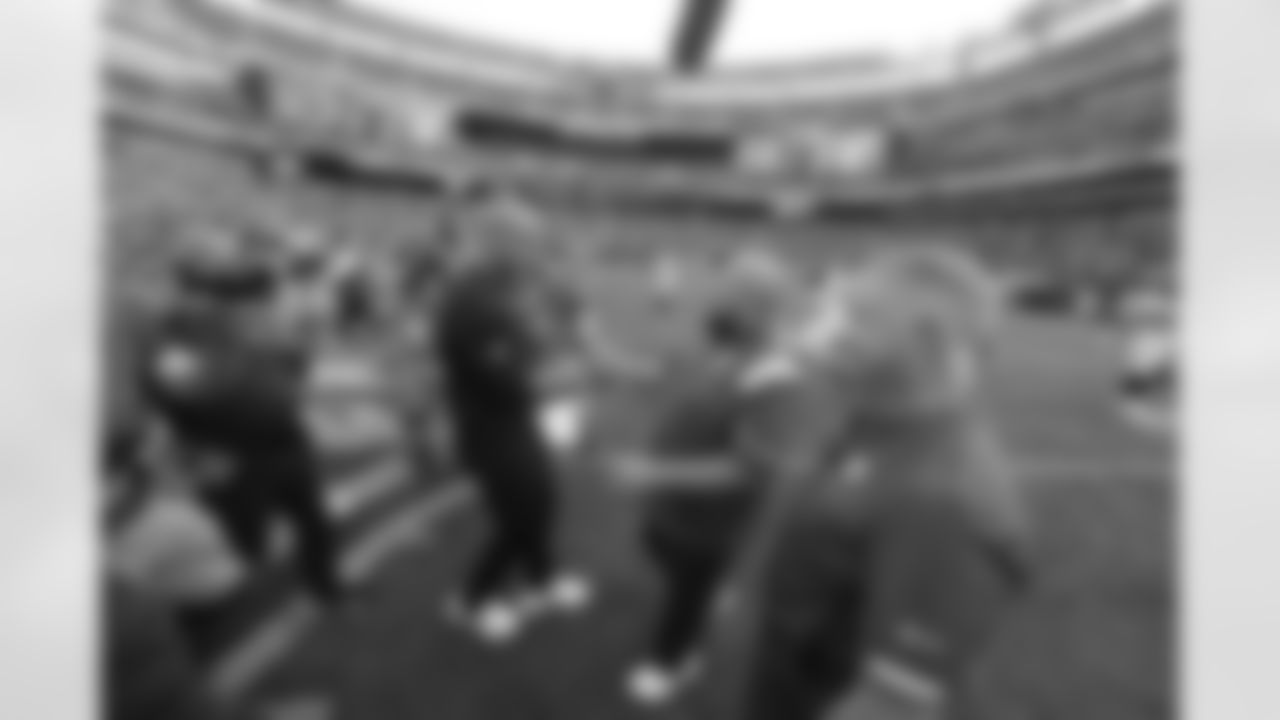
New York Jets head coach Robert Saleh shakes hands with New York Giants head coach Brian Daboll following a pre-season football game against the New York Jets on Sunday August 28, 2022 in East Rutherford, New Jersey (Evan Pinkus/NY Giants)

New York Giants head coach Brian Daboll during a preseason NFL football game against New England Patriots on Thursday August 11, 2022 in Foxborough, MA

New York Giants head coach Brian Daboll introduce boys from the San Miguel Academy following training camp practice at Quest Diagnostics Training Center on Wednesday August 3, 2022 in East Rutherford, New Jersey

New York Giants head coach Brian Daboll introduce boys from the San Miguel Academy following training camp practice at Quest Diagnostics Training Center on Wednesday August 3, 2022 in East Rutherford, New Jersey

New York Giants head coach Brian Daboll introduce boys from the San Miguel Academy following training camp practice at Quest Diagnostics Training Center on Wednesday August 3, 2022 in East Rutherford, New Jersey

New York Giants head coach Brian Daboll introduce boys from the San Miguel Academy following training camp practice at Quest Diagnostics Training Center on Wednesday August 3, 2022 in East Rutherford, New Jersey

Brian Daboll and Joe Schoen talks during minicamp practice at Quest Diagnostics Training Center on Saturday May 14, 2022 in East Rutherford, New Jersey
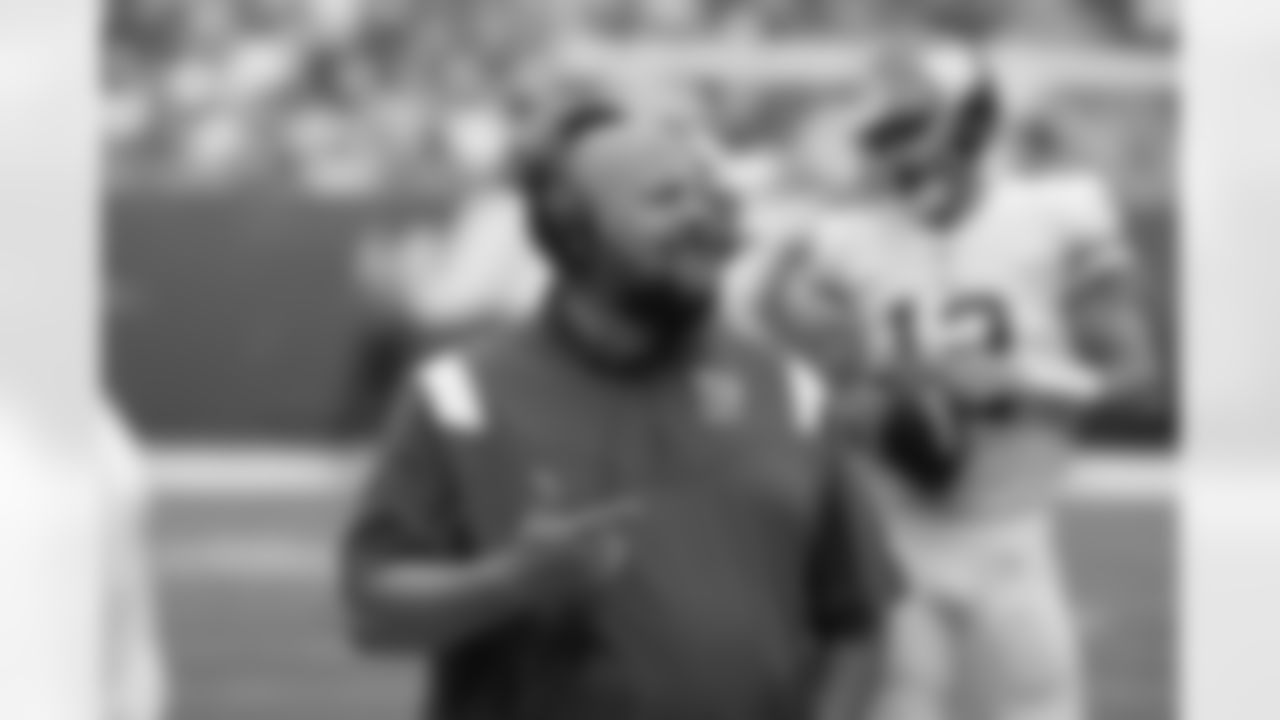
New York Giants head coach Brian Daboll during a pre-season football game against the New York Jets on Sunday August 28, 2022 in East Rutherford, New Jersey (Evan Pinkus/NY Giants)
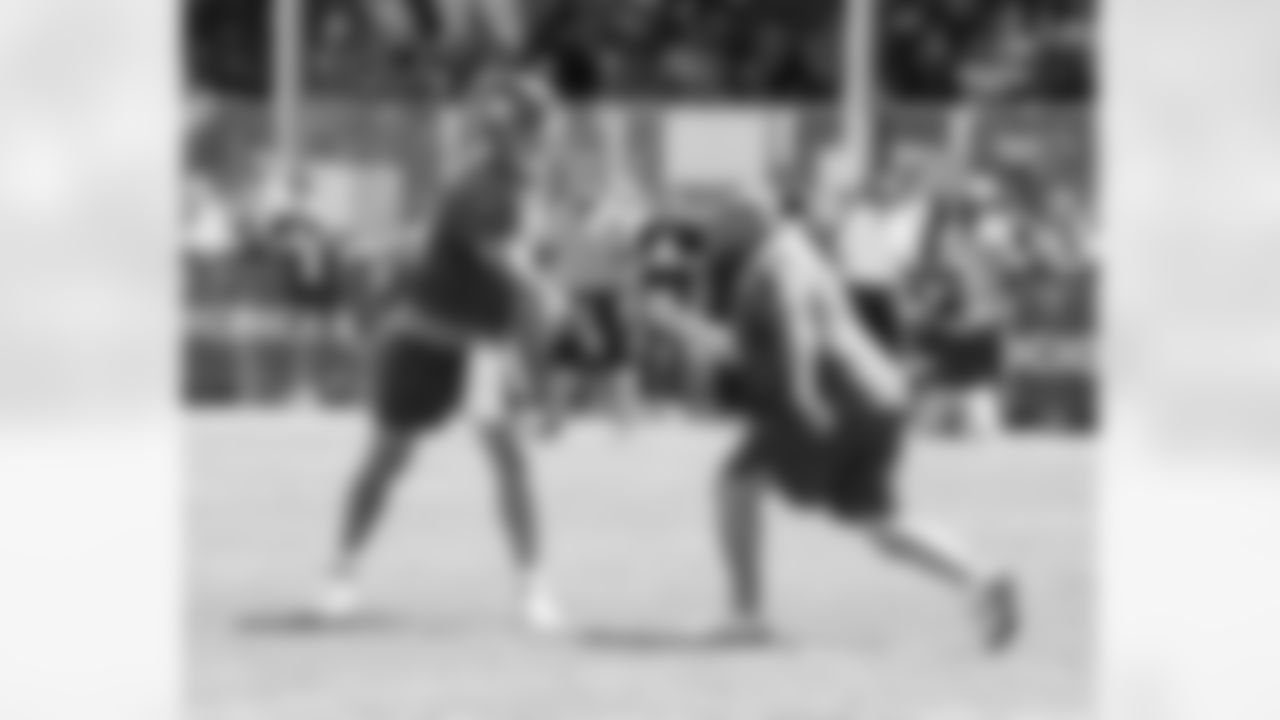
New York Giants Daniel Jones (8) celebrates a touchdown pass with head coach Brian Daboll during training camp practice at Quest Diagnostics Training Center on Saturday July 30, 2022 in East Rutherford, New Jersey
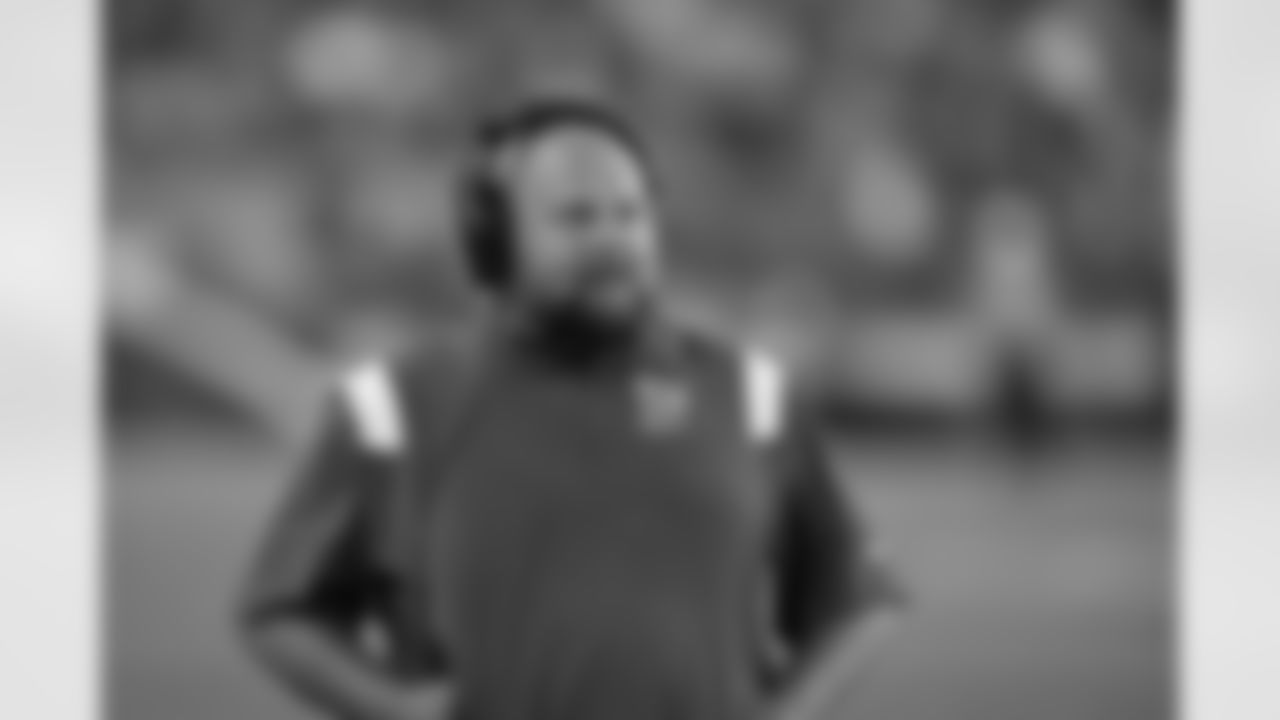
New York Giants head coach Brian Daboll during a preseason NFL football game against New England Patriots on Thursday August 11, 2022 in Foxborough, MA
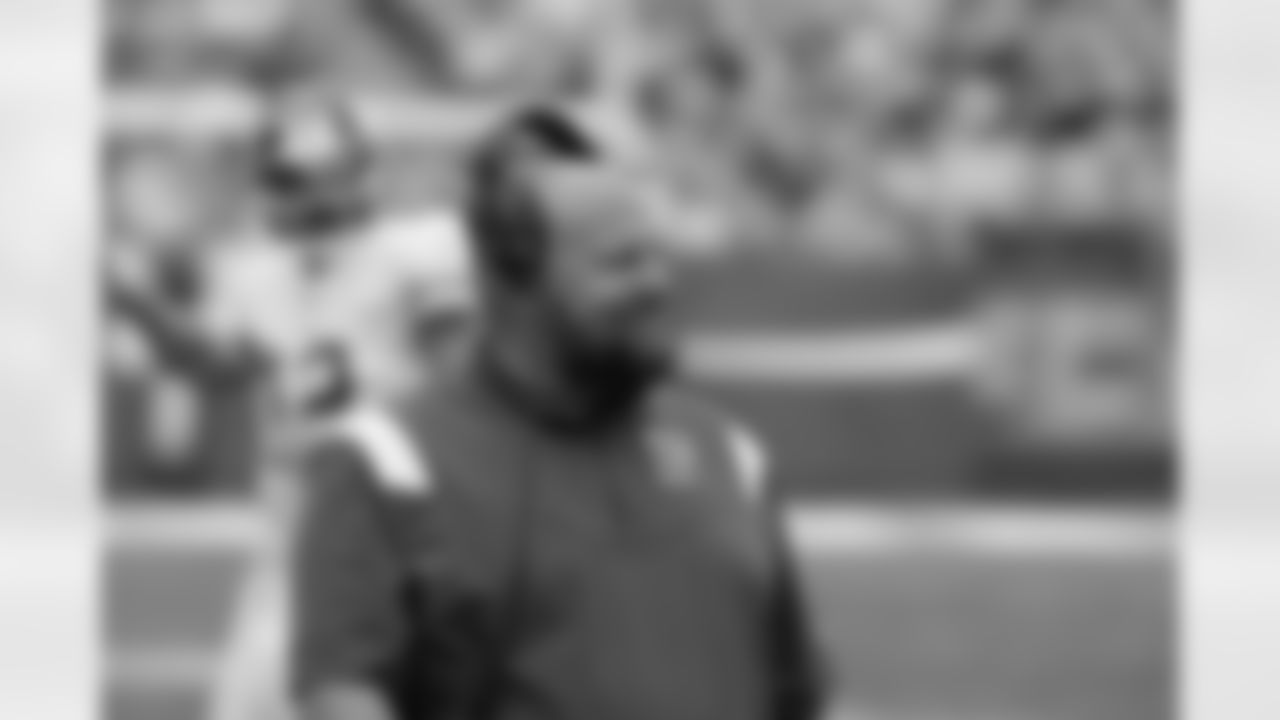
New York Giants head coach Brian Daboll during a pre-season football game against the New York Jets on Sunday August 28, 2022 in East Rutherford, New Jersey (Evan Pinkus/NY Giants)

New York Giants head coach Brian Daboll talks with general manager Joe Schoen and Shaun O'Hara during training camp practice at Quest Diagnostics Training Center on Saturday July 30, 2022 in East Rutherford, New Jersey

New York Giants head coach Brian Daboll talks to his team following training camp practice at Quest Diagnostics Training Center on Saturday July 30, 2022 in East Rutherford, New Jersey

New York Giants head coach Brian Daboll during a preseason NFL football game against New England Patriots on Thursday August 11, 2022 in Foxborough, MA

New York Giants head coach Brian Daboll during a pre-season football game against the New York Jets on Sunday August 28, 2022 in East Rutherford, New Jersey (Evan Pinkus/NY Giants)
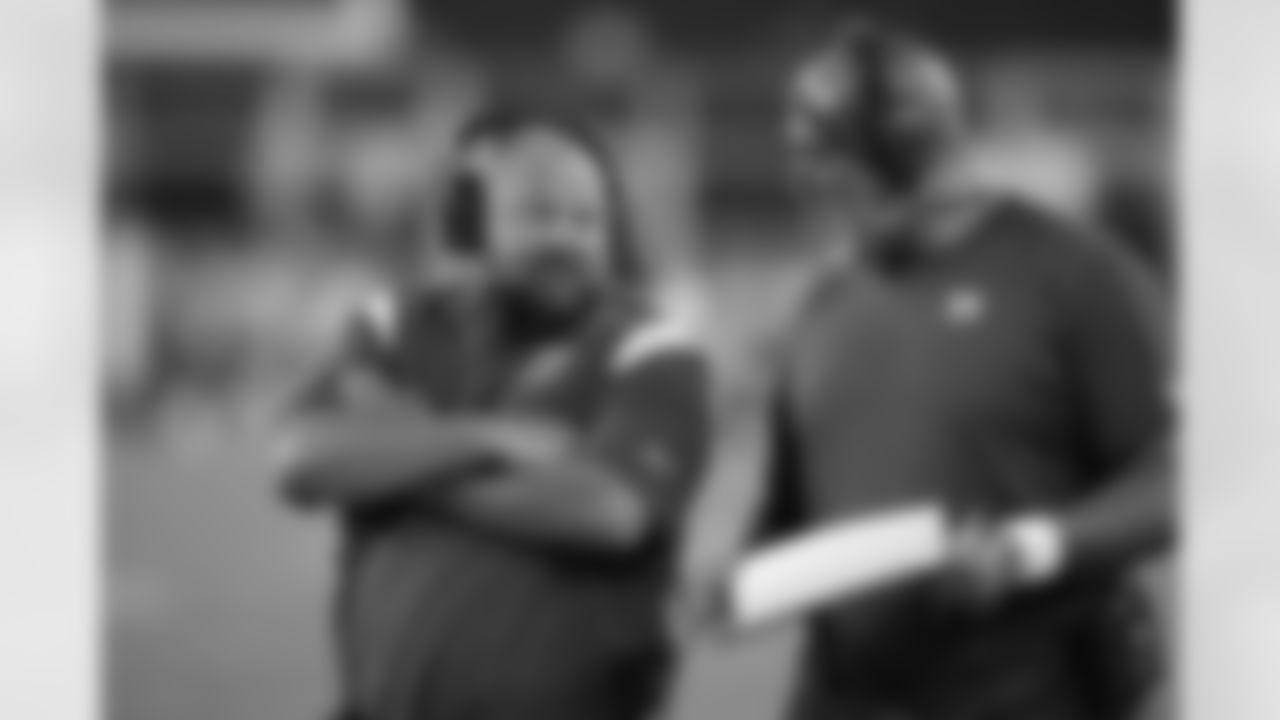
New York Giants head coach Brian Daboll talks with offensive line coach Bobby Johnson during a preseason NFL football game against New England Patriots on Thursday August 11, 2022 in Foxborough, MA

New York Giants quarterback Tyrod Taylor (2) talks with New York Giants head coach Brian Daboll during a preseason NFL football game against New England Patriots on Thursday August 11, 2022 in Foxborough, MA
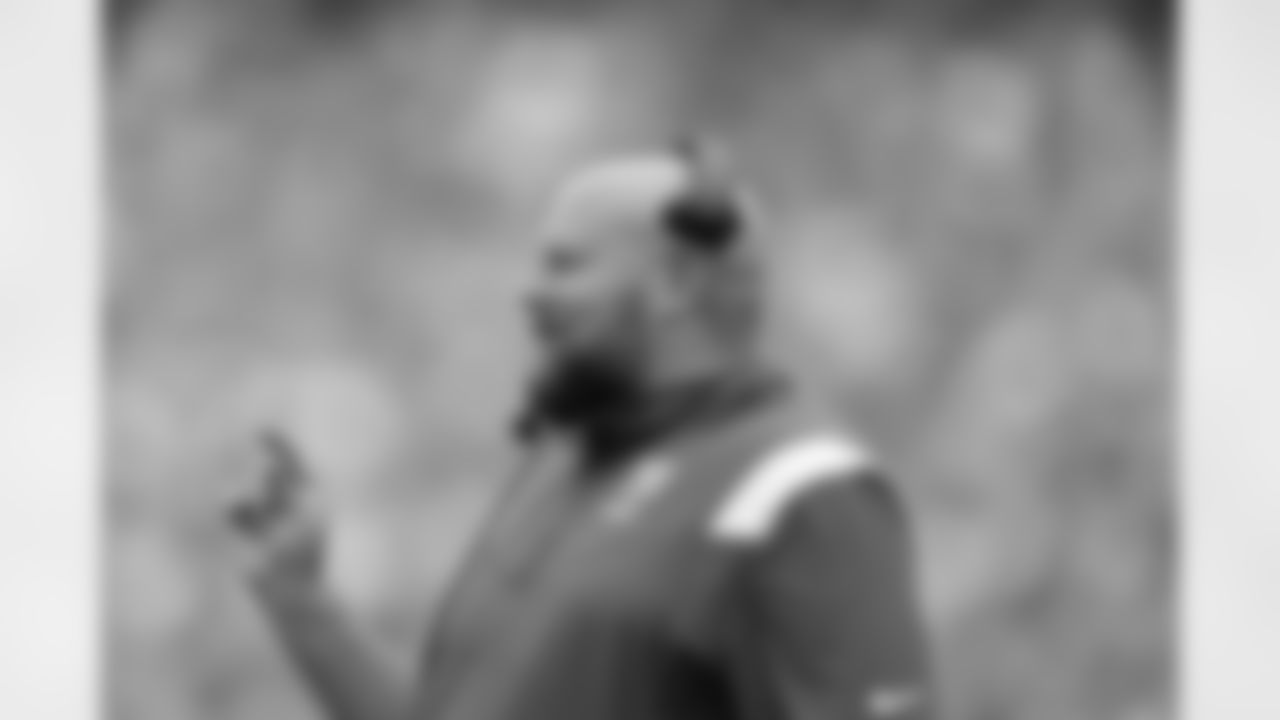
New York Giants head coach Brian Daboll during a pre-season football game against the New York Jets on Sunday August 28, 2022 in East Rutherford, New Jersey (Evan Pinkus/NY Giants)

New York Giants head coach Brian Daboll during a preseason NFL football game against New England Patriots on Thursday August 11, 2022 in Foxborough, MA

New York Giants head coach Brian Daboll during a preseason NFL football game against New England Patriots on Thursday August 11, 2022 in Foxborough, MA

New York Giants head coach Brian Daboll talks with Brandon Jacobs during training camp practice at Quest Diagnostics Training Center on Saturday July 30, 2022 in East Rutherford, New Jersey

Brian Daboll during organized team activity at Quest Diagnostics Training Center on Friday June 3, 2022 in East Rutherford, New Jersey

New York Giants head coach Brian Daboll during a preseason NFL football game against New England Patriots on Thursday August 11, 2022 in Foxborough, MA

Brian Daboll during organized team activity at Quest Diagnostics Training Center on Friday June 3, 2022 in East Rutherford, New Jersey

New York Giants head coach Brian Daboll during training camp practice at Quest Diagnostics Training Center on Saturday July 30, 2022 in East Rutherford, New Jersey
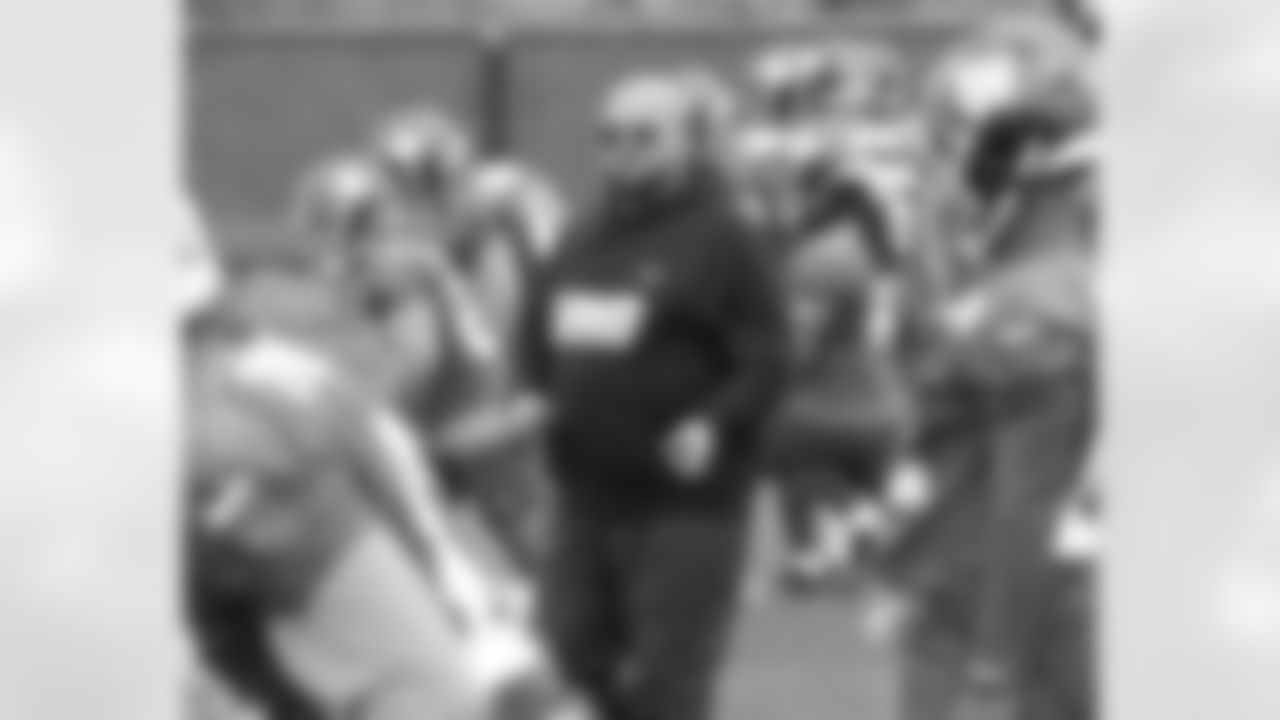
Brian Daboll during minicamp practice at Quest Diagnostics Training Center on Saturday May 14, 2022 in East Rutherford, New Jersey

New York Giants yea coach Brian Daboll talks to the offense in the huddle during organized team activity at Quest Diagnostics Training Center on Friday June 3, 2022 in East Rutherford, New Jersey

New York Giants head coach Brian Daboll during a preseason NFL football game against New England Patriots on Thursday August 11, 2022 in Foxborough, MA
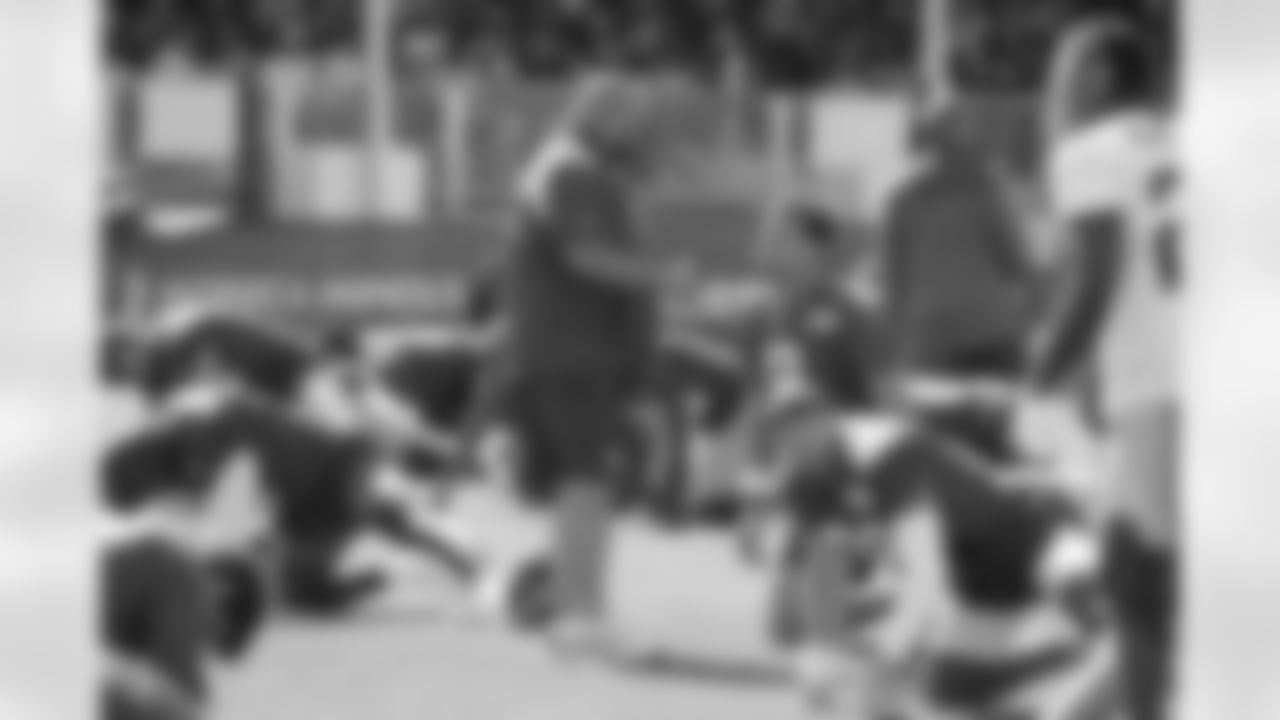
New York Giants head coach Brian Daboll talks with quarterback Daniel Jones during training camp practice at Quest Diagnostics Training Center on Saturday July 30, 2022 in East Rutherford, New Jersey

New York Giants head coach Brian Daboll during a preseason NFL football game against New England Patriots on Thursday August 11, 2022 in Foxborough, MA
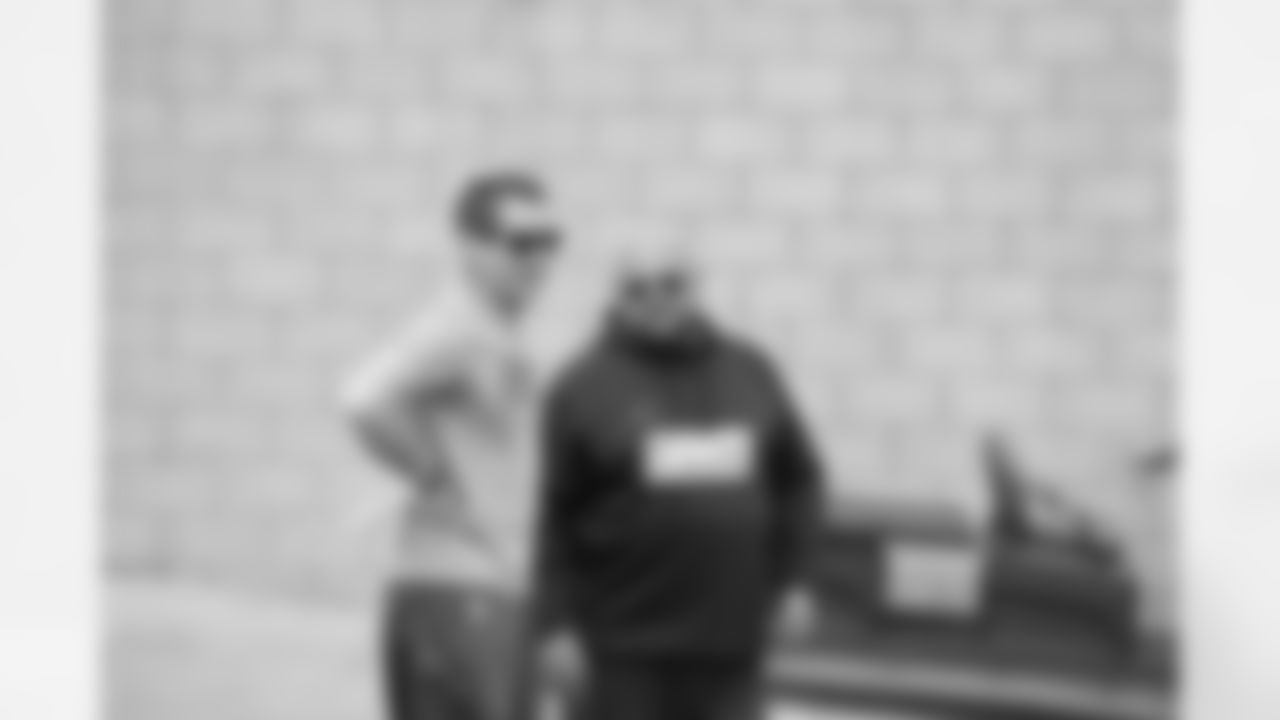
New York Giants head coach Brian Daboll talks with Joe Schoen during organized team activity at Quest Diagnostics Training Center on Friday June 3, 2022 in East Rutherford, New Jersey
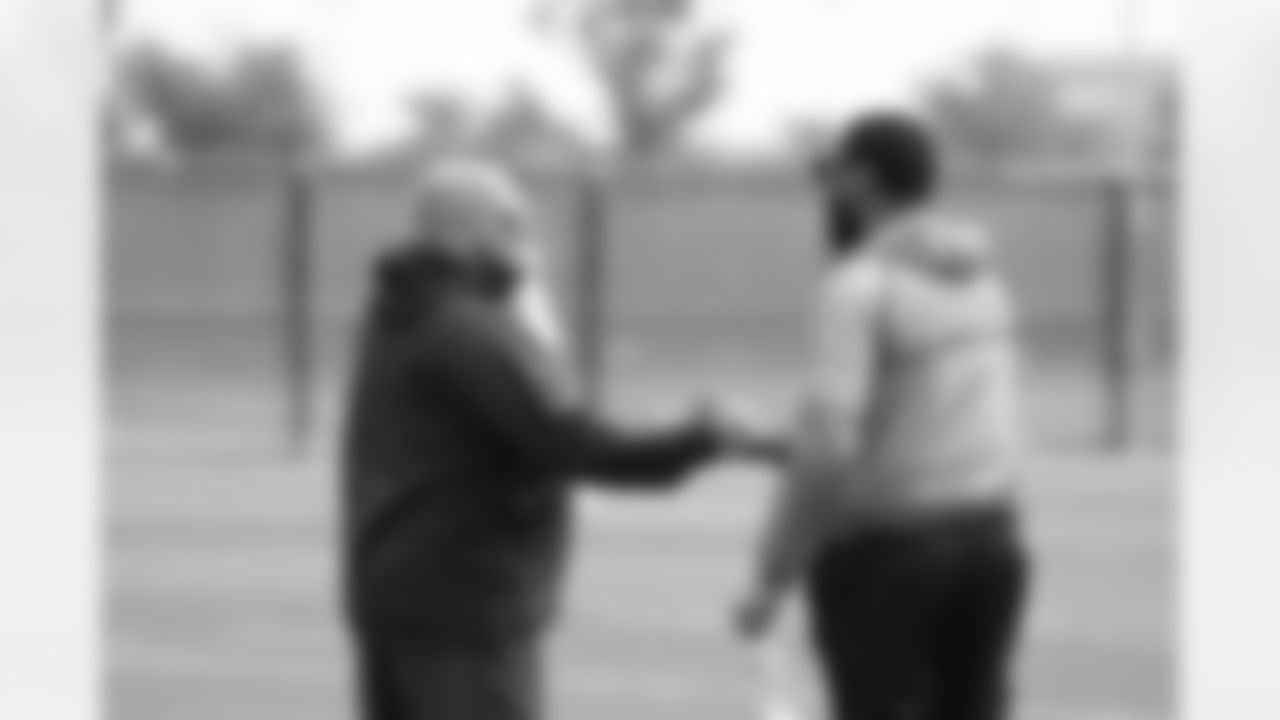
Brian Daboll and Mario Manningham shake during organized team activity at Quest Diagnostics Training Center on Friday June 3, 2022 in East Rutherford, New Jersey

Brian Daboll and Joe Schoen talk during organized team activity at Quest Diagnostics Training Center on Friday June 3, 2022 in East Rutherford, New Jersey
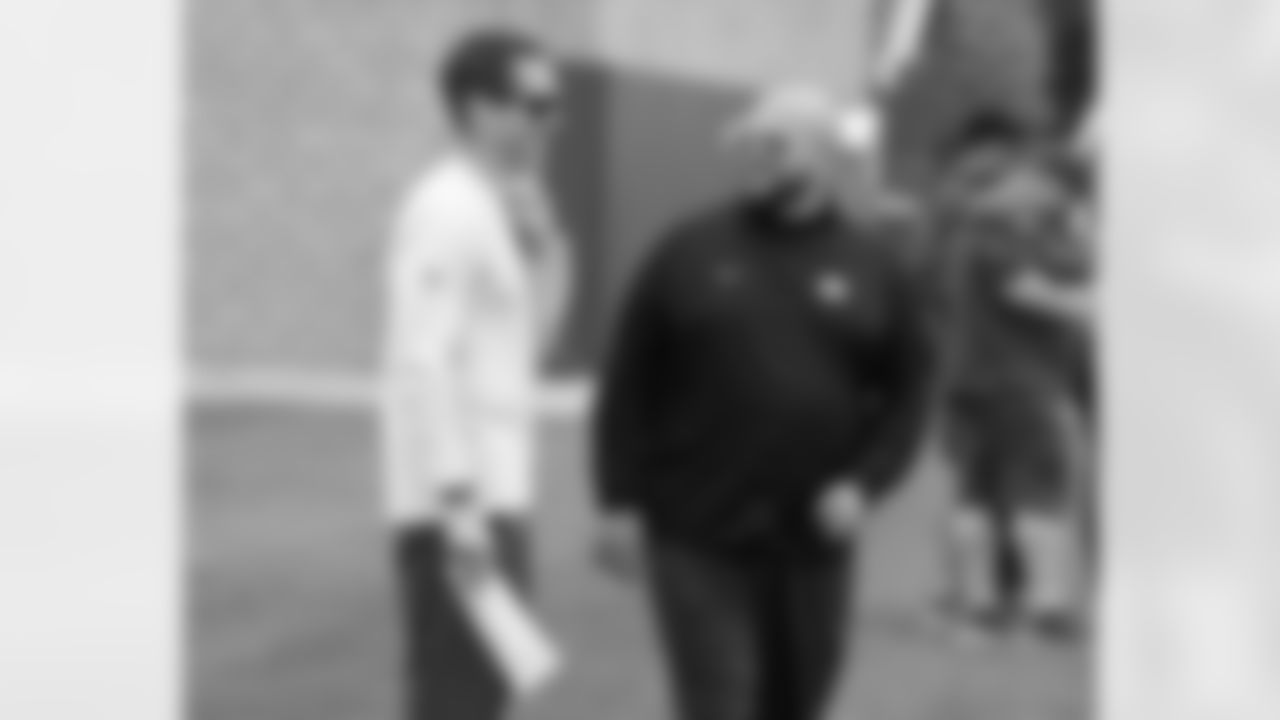
Joe Schoen talks with Brian Daboll during minicamp practice at Quest Diagnostics Training Center on Friday May 13, 2022 in East Rutherford, New Jersey
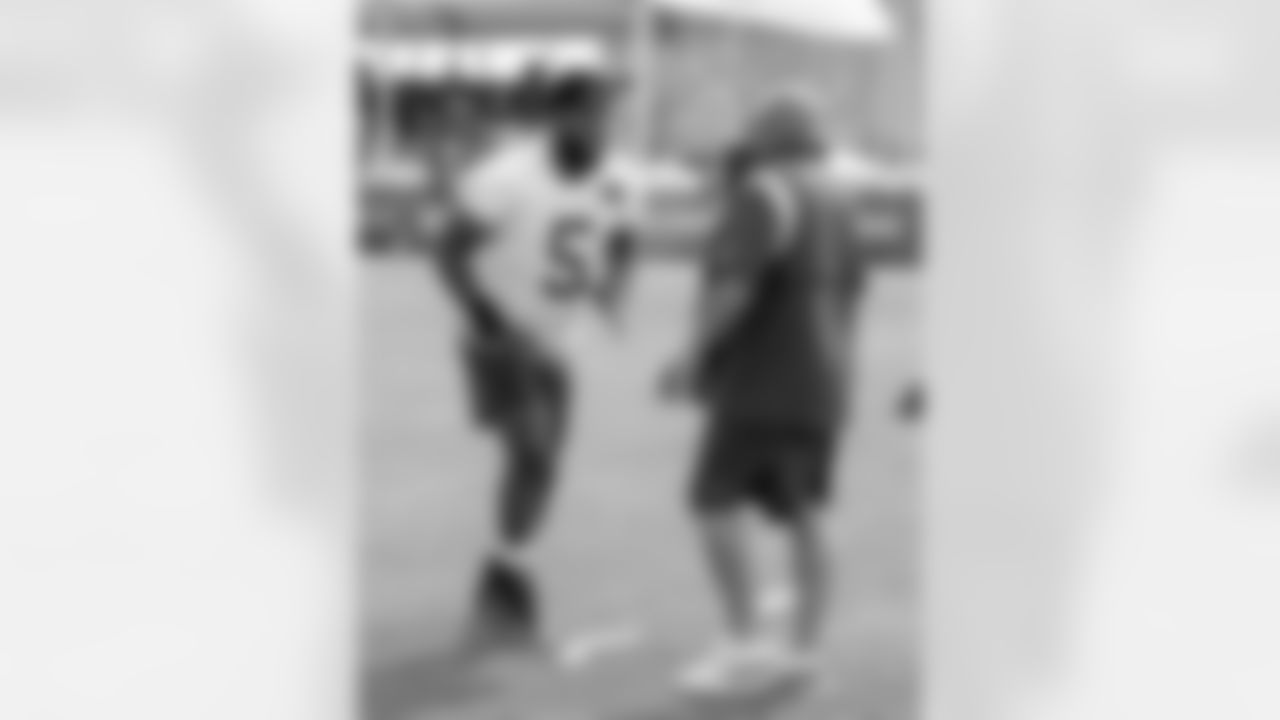
New York Giants' Kayvon Thibodeaux (50 talks with New York Giants head coach Brian Daboll during training camp practice at Quest Diagnostics Training Center on Thursday July 28, 2022 in East Rutherford, New Jersey
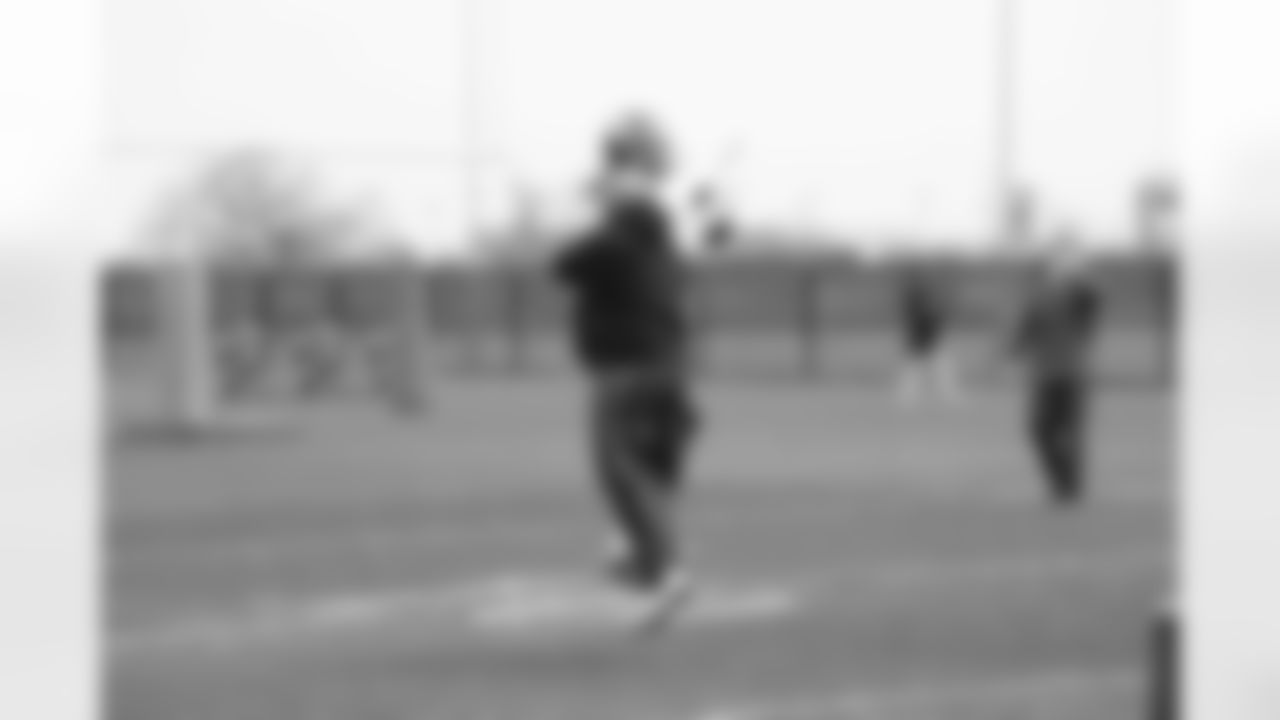
New York Giants head coach Brian Daboll celebrates an interception with safety Xavier McKinney during minicamp practice at Quest Diagnostics Training Center on Tuesday April 21, 2022 in East Rutherford, New Jersey

New York Giants head coach Brian Daboll during a preseason NFL football game against New England Patriots on Thursday August 11, 2022 in Foxborough, MA

New York Giants head coach Brian Daboll during a preseason NFL football game against New England Patriots on Thursday August 11, 2022 in Foxborough, MA

New York Giants head coach Brian Daboll shakes with Jalyn Holmes (91) during training camp practice at Quest Diagnostics Training Center on Thursday July 28, 2022 in East Rutherford, New Jersey
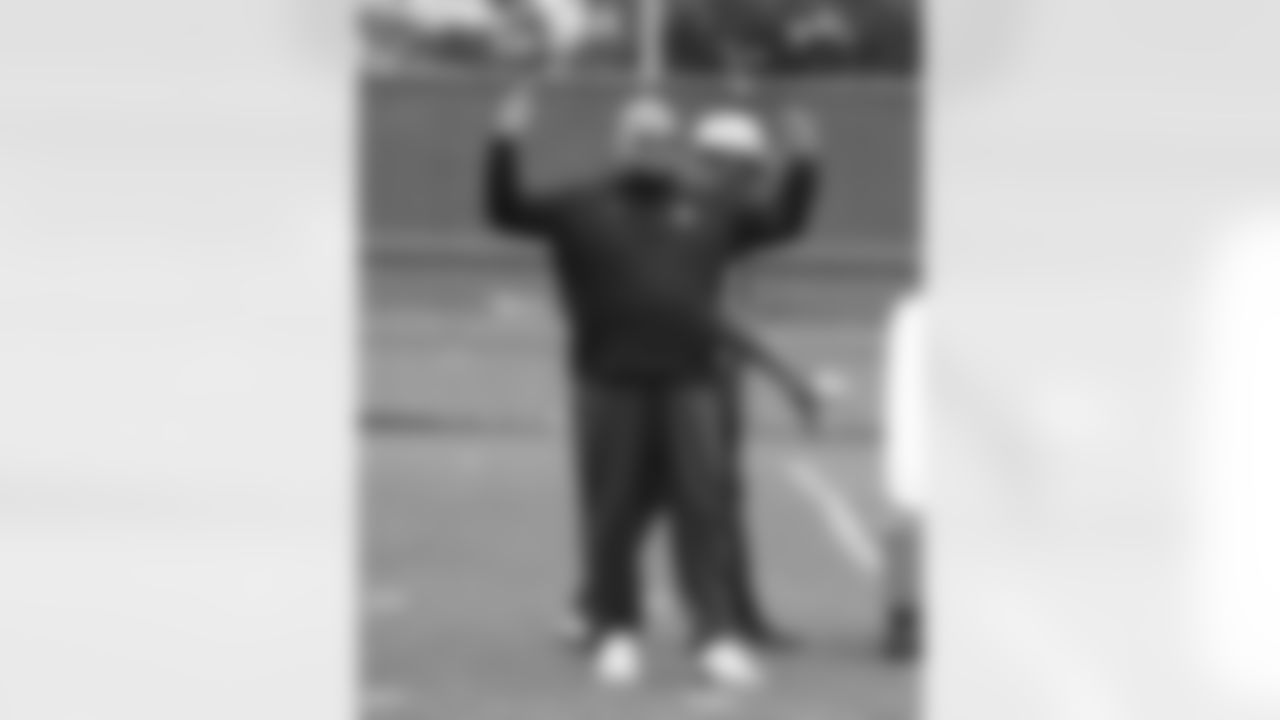
New York Giants head coach Brian Daboll during organized team activity at Quest Diagnostics Training Center on Thursday June 2, 2022 in East Rutherford, New Jersey
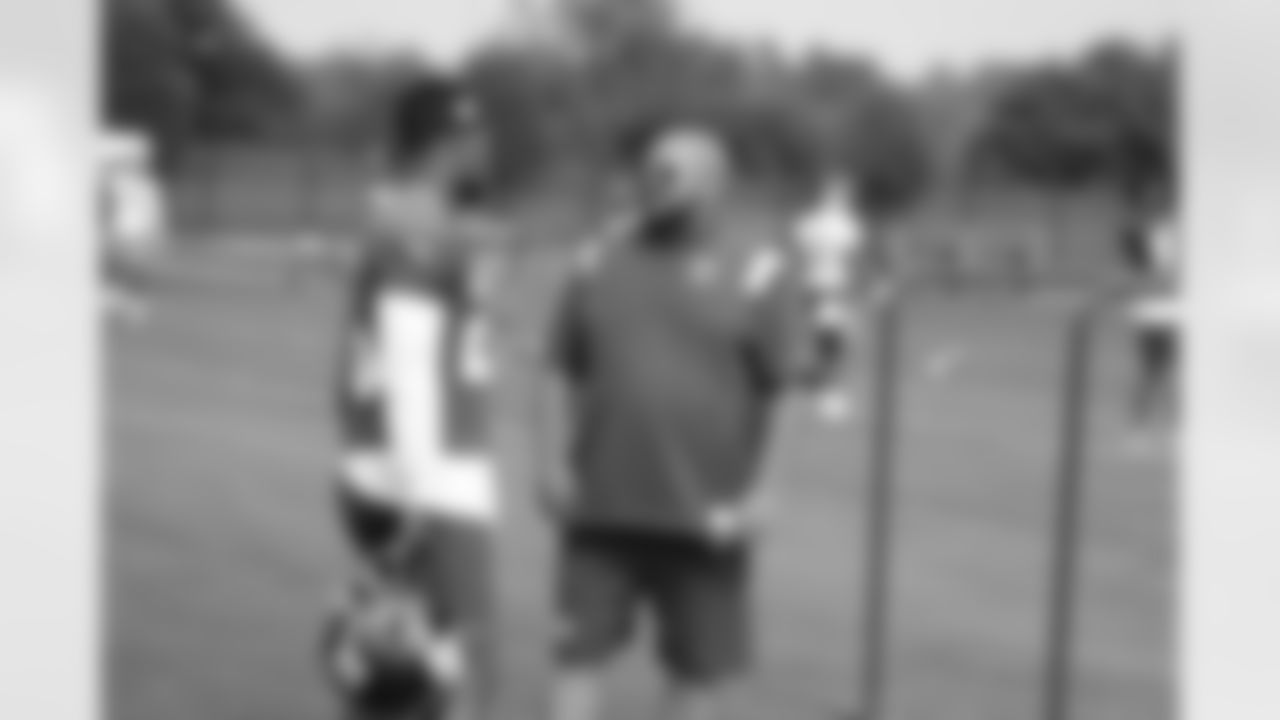
New York Giants head coach Brian Daboll talks with running back Saquon Barkley (26) during training camp practice at Quest Diagnostics Training Center on Thursday July 28, 2022 in East Rutherford, New Jersey

New York Giants head coach Brian Daboll during organized team activity at Quest Diagnostics Training Center on Thursday June 2, 2022 in East Rutherford, New Jersey
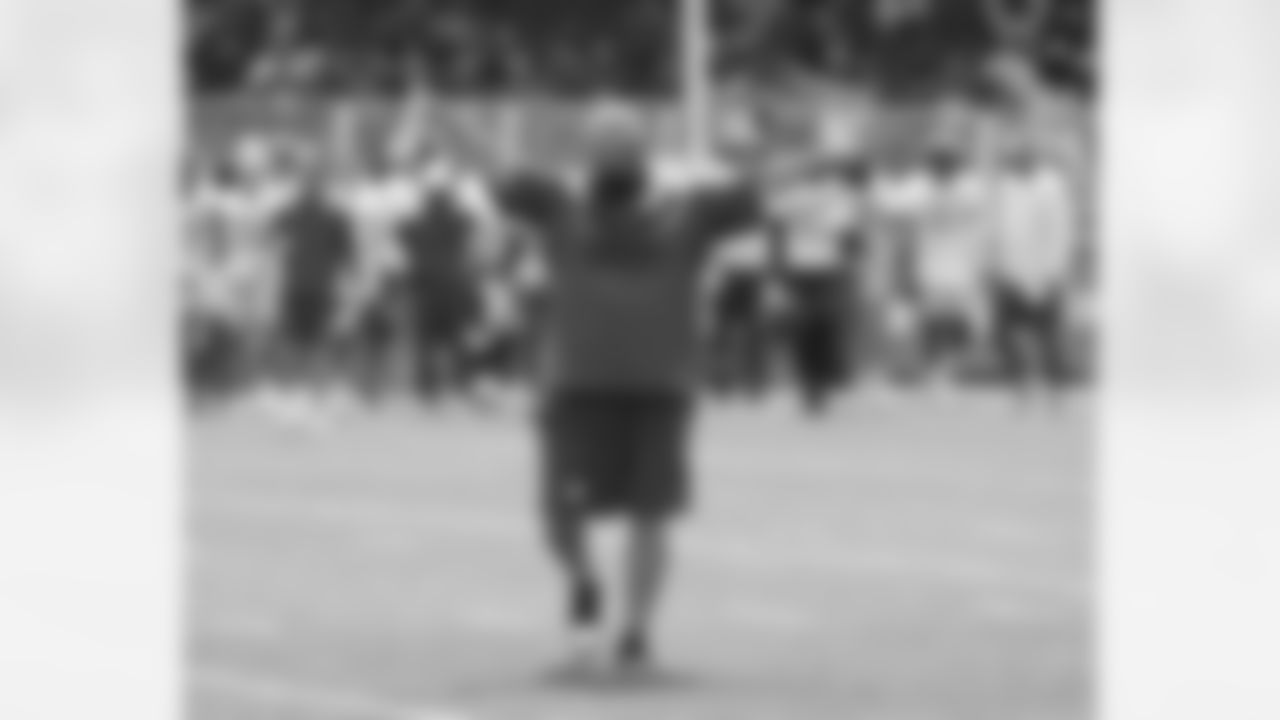
New York Giants head coach Brian Daboll during training camp practice at Quest Diagnostics Training Center on Wednesday July 27, 2022 in East Rutherford, New Jersey
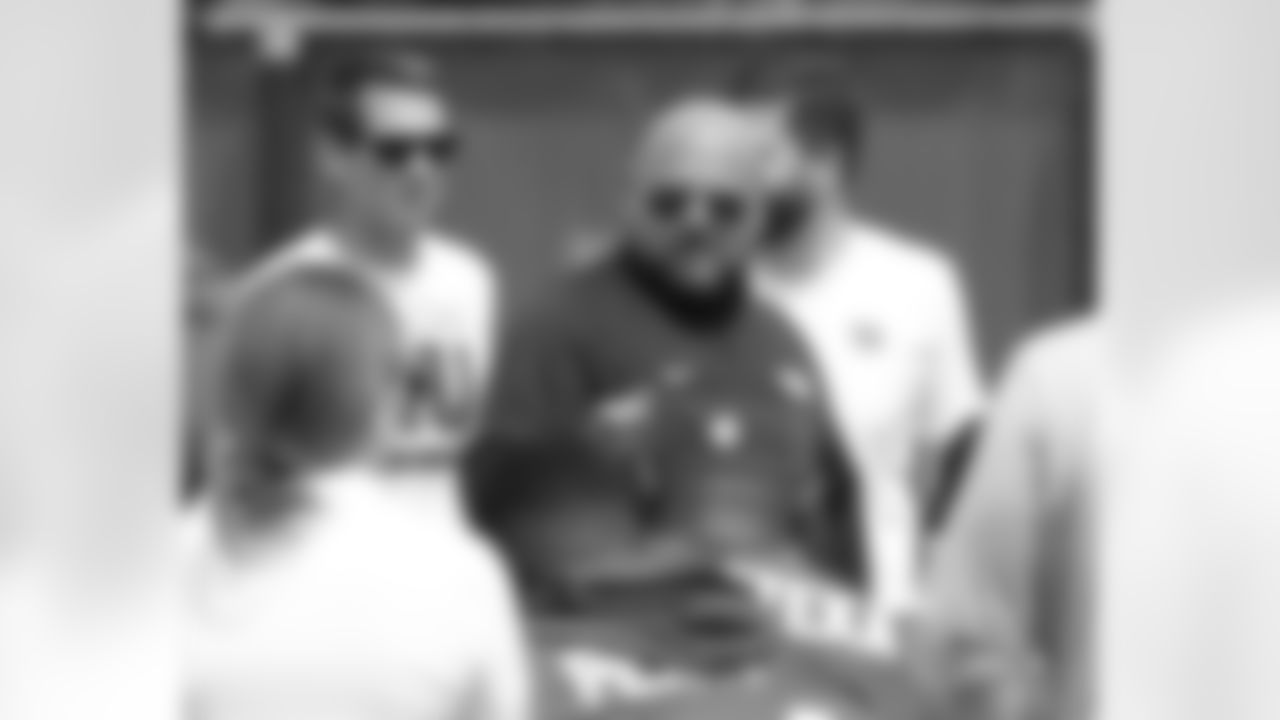
New York Giants head coach Brian Daboll talks to his team during organized team activity at Quest Diagnostics Training Center on Thursday June 2, 2022 in East Rutherford, New Jersey

New York Giants quarterback Daniel Jones (8) talks with head coach Brian Daboll before a preseason NFL football game against New England Patriots on Thursday August 11, 2022 in Foxborough, MA

New York Giants head coach Brian Daboll talks quaterback Daniel Jones during training camp practice at Quest Diagnostics Training Center on Friday July 29, 2022 in East Rutherford, New Jersey
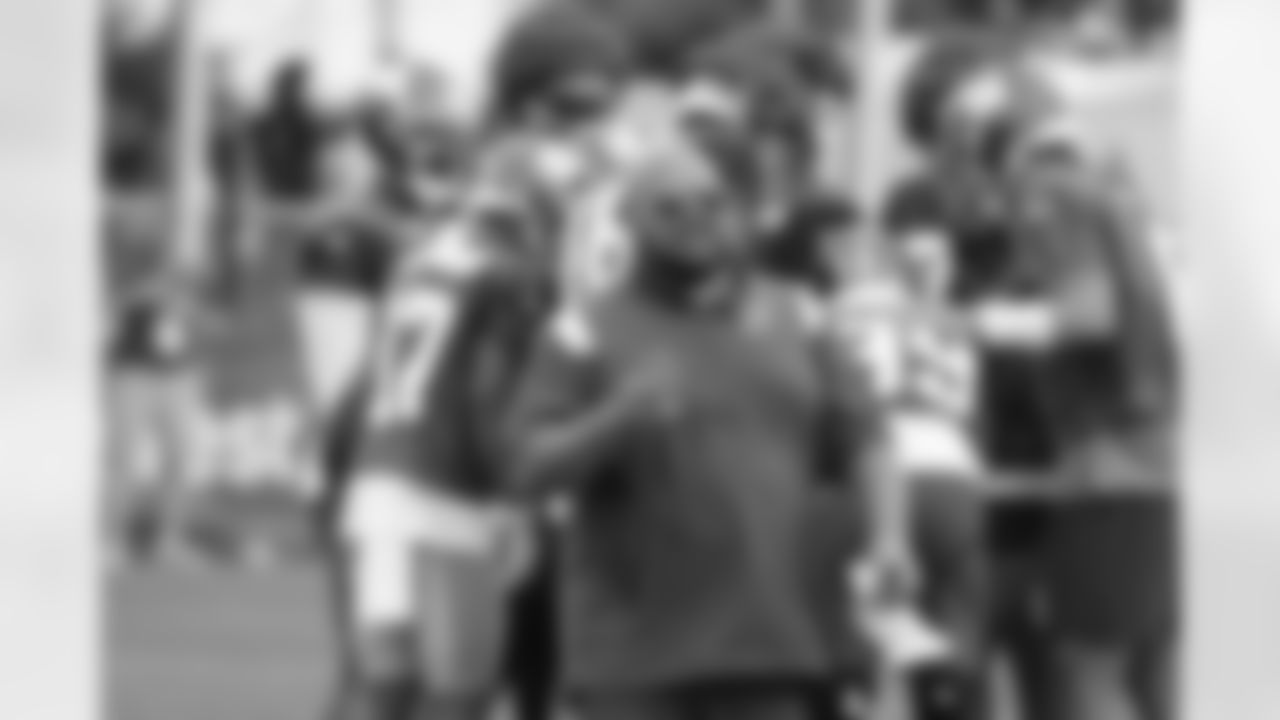
New York Giants head coach Brian Daboll during training camp practice at Quest Diagnostics Training Center on Friday July 29, 2022 in East Rutherford, New Jersey
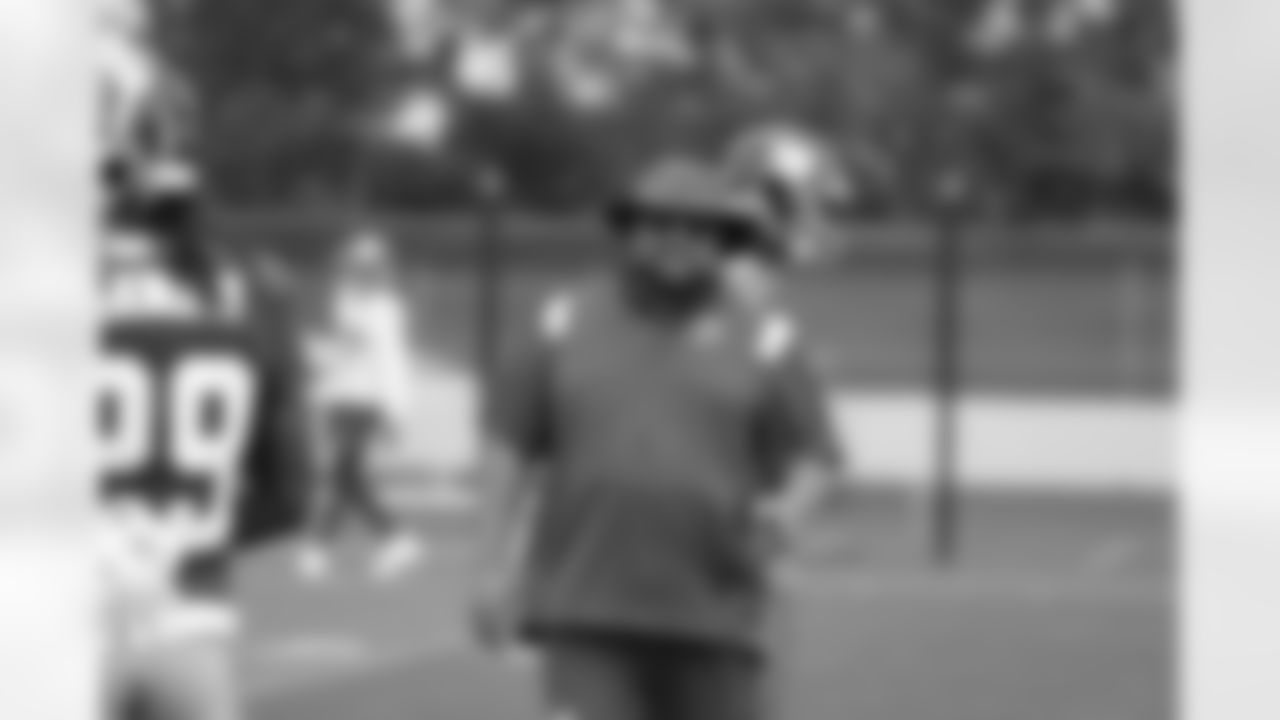
New York Giants head coach Brian Daboll during training camp practice at Quest Diagnostics Training Center on Friday August 26, 2022 in East Rutherford, New Jersey

Head coach Brian Daboll during minicamp practice at Quest Diagnostics Training Center on Tuesday April 20, 2022 in East Rutherford, New Jersey
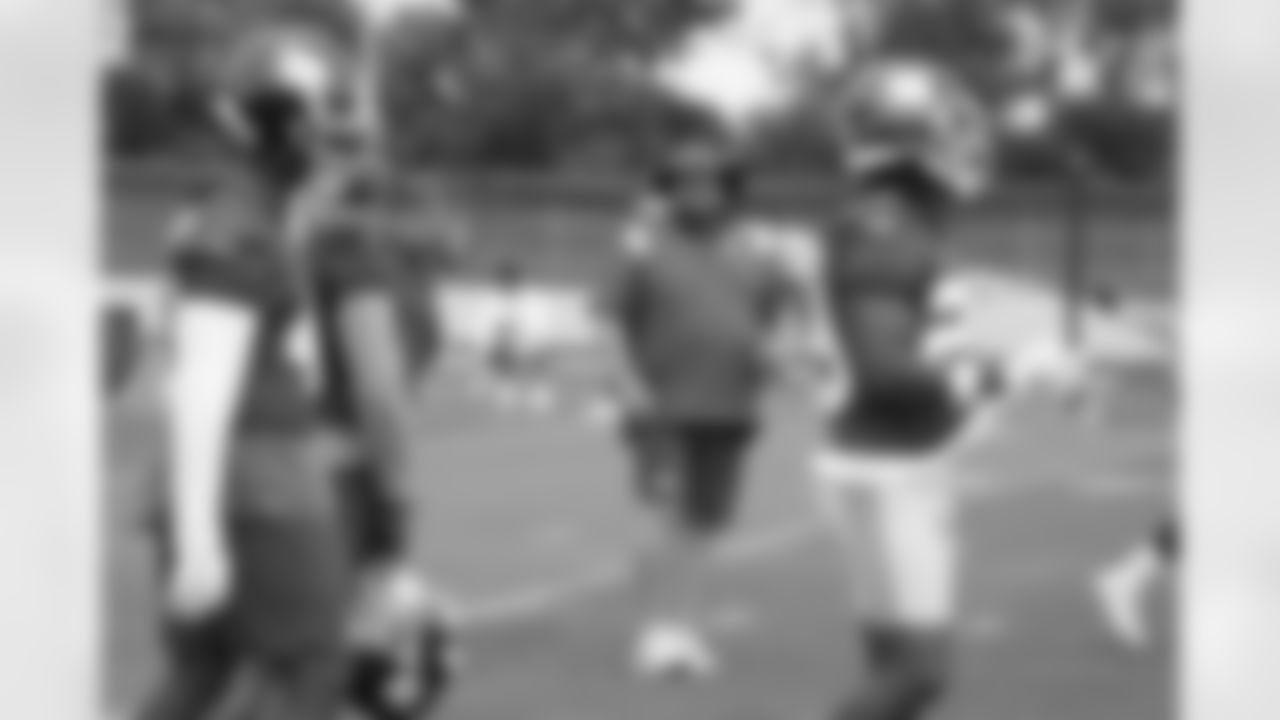
New York Giants head coach Brian Daboll during training camp practice at Quest Diagnostics Training Center on Friday August 26, 2022 in East Rutherford, New Jersey

New York Giants head coach Brian Daboll during a pre-season football game against the New York Jets on Sunday August 28, 2022 in East Rutherford, New Jersey (Evan Pinkus/NY Giants)
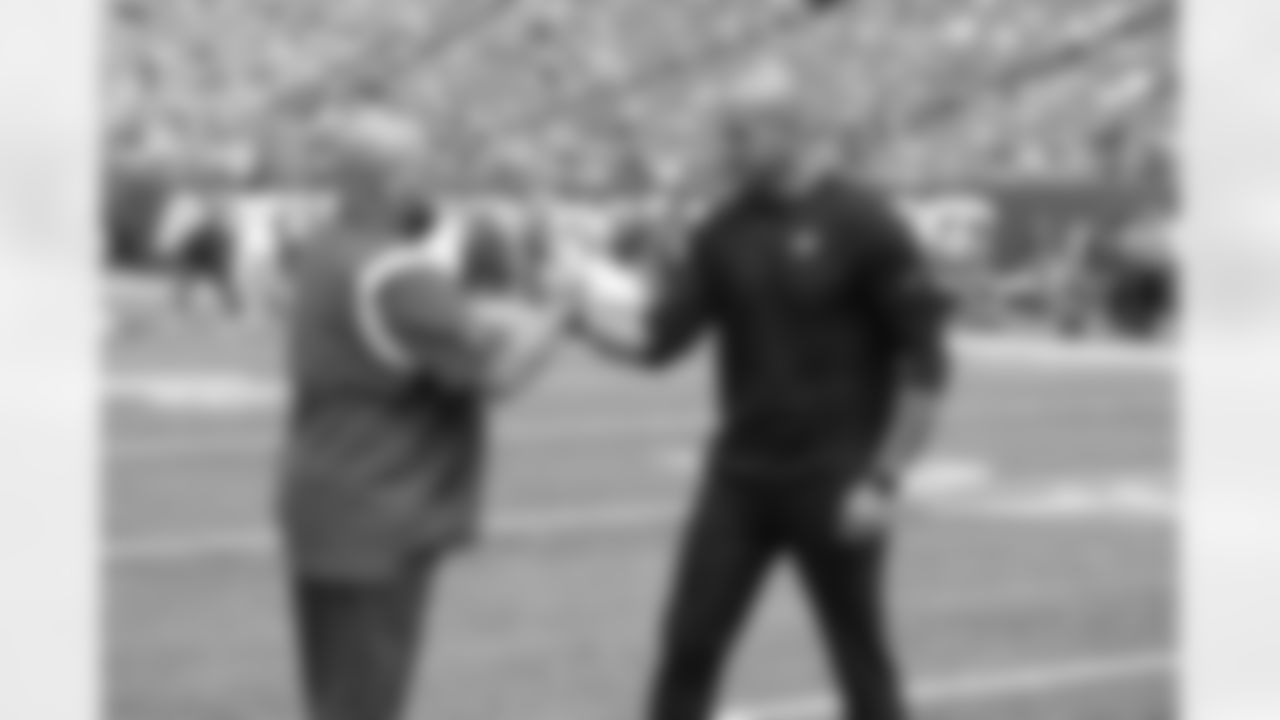
New York Giants head coach Brian Daboll talks with New York Jets head coach Robert Saleh before a pre-season football game against the New York Jets on Sunday August 28, 2022 in East Rutherford, New Jersey (Evan Pinkus/NY Giants)

New York Giants head coach Brian Daboll talks with defensive coordinator Don Martindale during training camp practice at Quest Diagnostics Training Center on Tuesday August 9, 2022 in East Rutherford, New Jersey

New York Giants General Manager Joe Schoen and head coach Brian Daboll pose for a photo with first round draft pick Evan Neal during a press conference at Quest Diagnostics Training Center on Saturday April 30, 2022 in East Rutherford, New Jersey
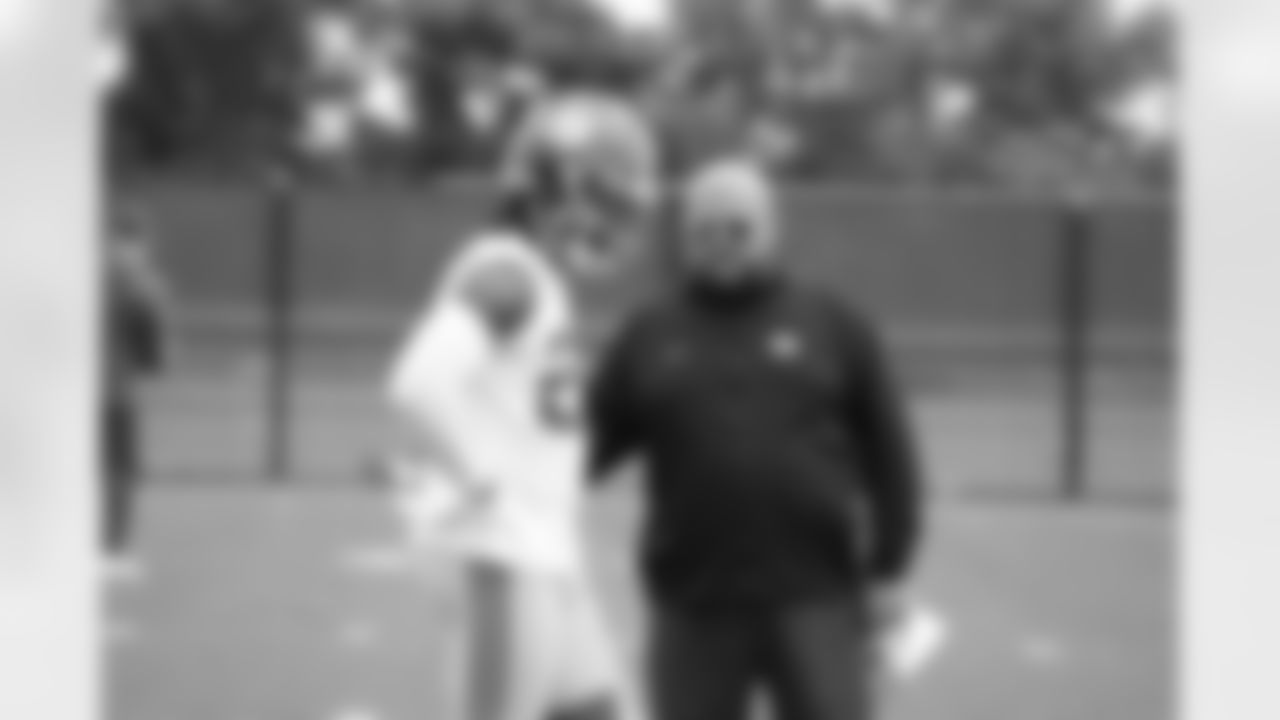
New York Giants head coach Brian Daboll talks with safety Xavier McKinney (29) during organized team activity at Quest Diagnostics Training Center on Thursday June 2, 2022 in East Rutherford, New Jersey

New York Giants head coach Brian Daboll during training camp practice at Quest Diagnostics Training Center on Tuesday August 9, 2022 in East Rutherford, New Jersey
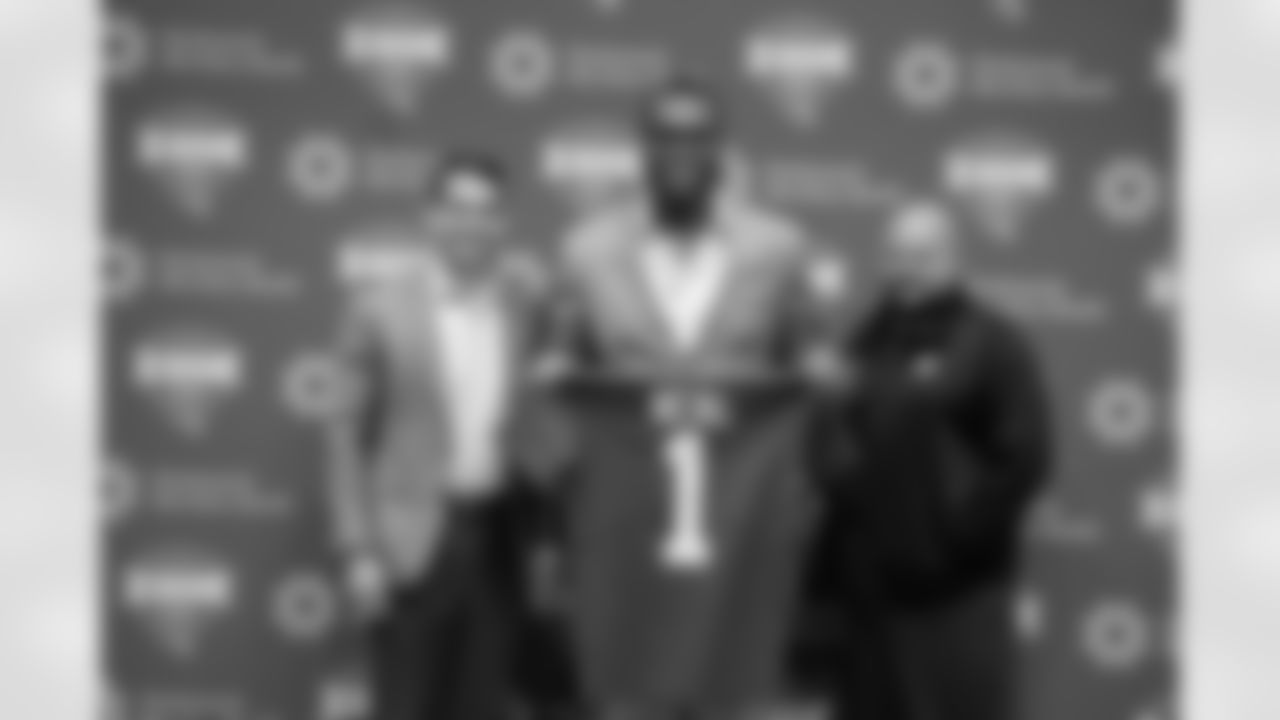
New York Giants General Manager Joe Schoen and head coach Brian Daboll pose for a photo with first round draft pick Evan Neal during a press conference at Quest Diagnostics Training Center on Saturday April 30, 2022 in East Rutherford, New Jersey
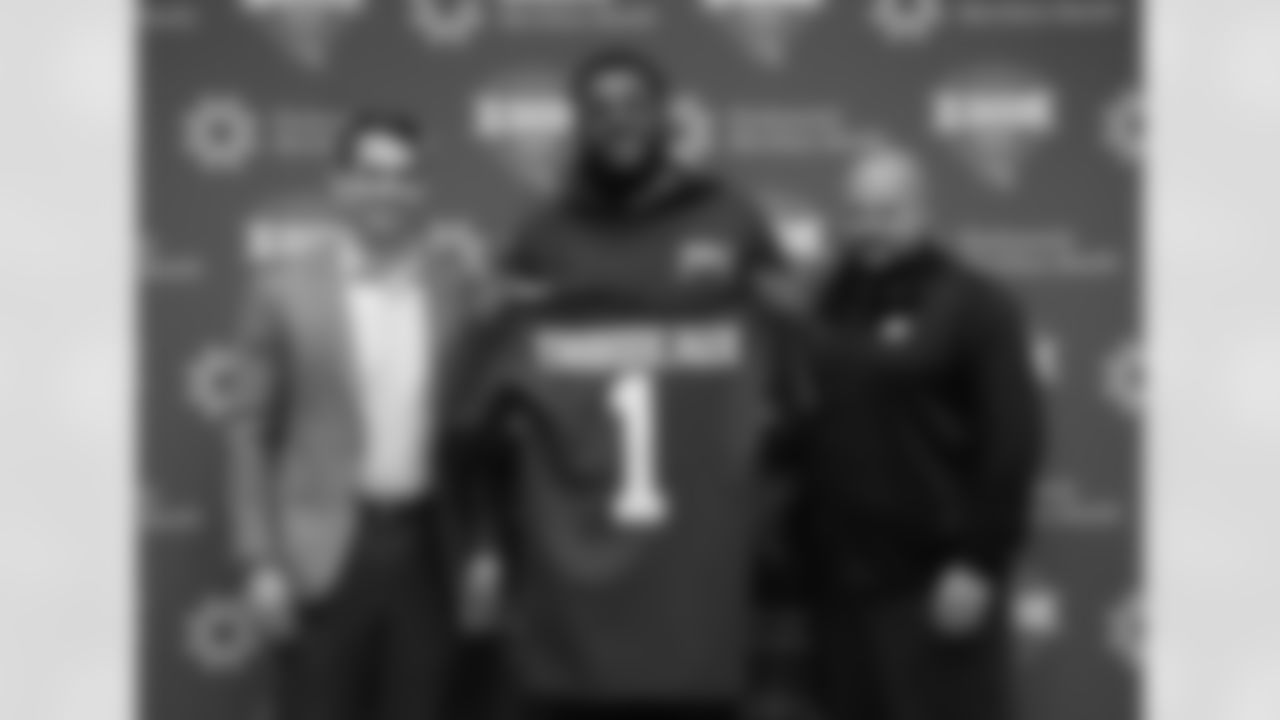
New York Giants General Manager Joe Schoen and head coach Brian Daboll pose for a photo with first round draft pick Kavon Thibodeaux during a press conference at Quest Diagnostics Training Center on Saturday April 30, 2022 in East Rutherford, New Jersey

New York Giants head coach Brian Daboll signals touchdown during training camp practice at Quest Diagnostics Training Center on Friday August 26, 2022 in East Rutherford, New Jersey
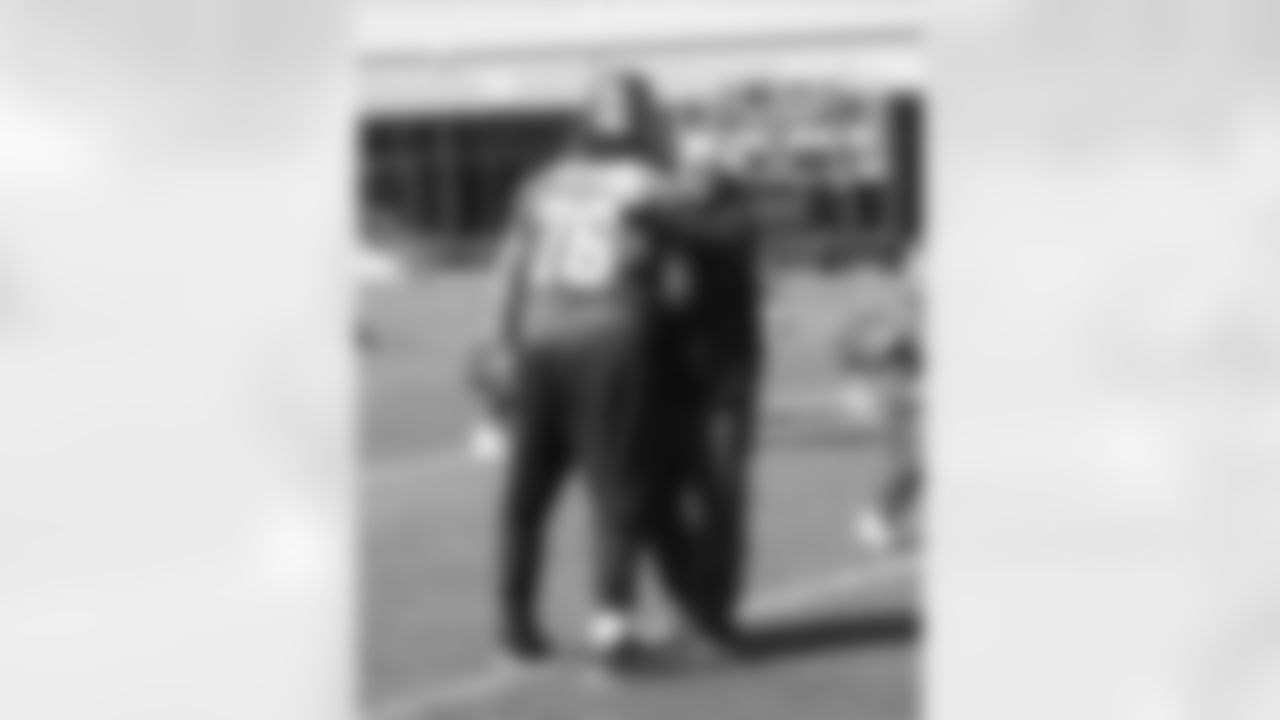
New York Giants center Joe Feliciano (76) gets a hug from head coach Brian Daboll during minicamp practice at Quest Diagnostics Training Center on Wednesday April 20, 2022 in East Rutherford, New Jersey
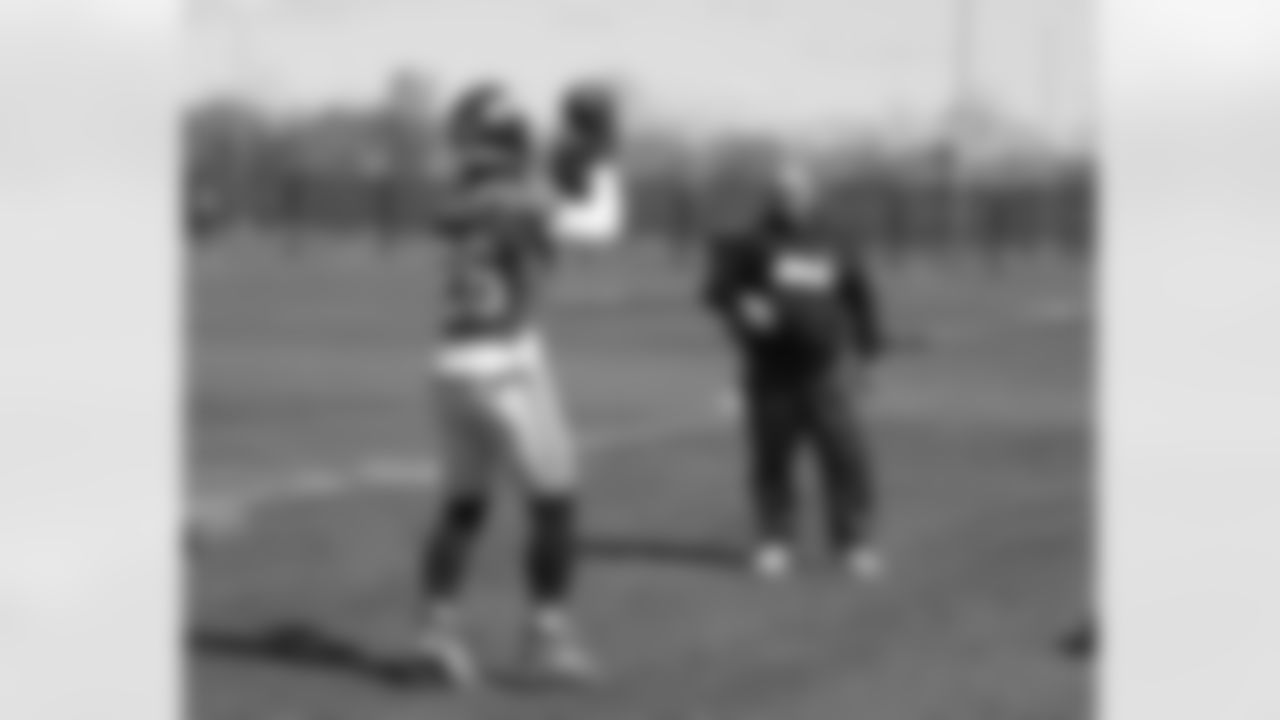
New York Giants head coach Brian Daboll works with running back Saquon Barkley (26) during minicamp practice at Quest Diagnostics Training Center on Wednesday April 20, 2022 in East Rutherford, New Jersey
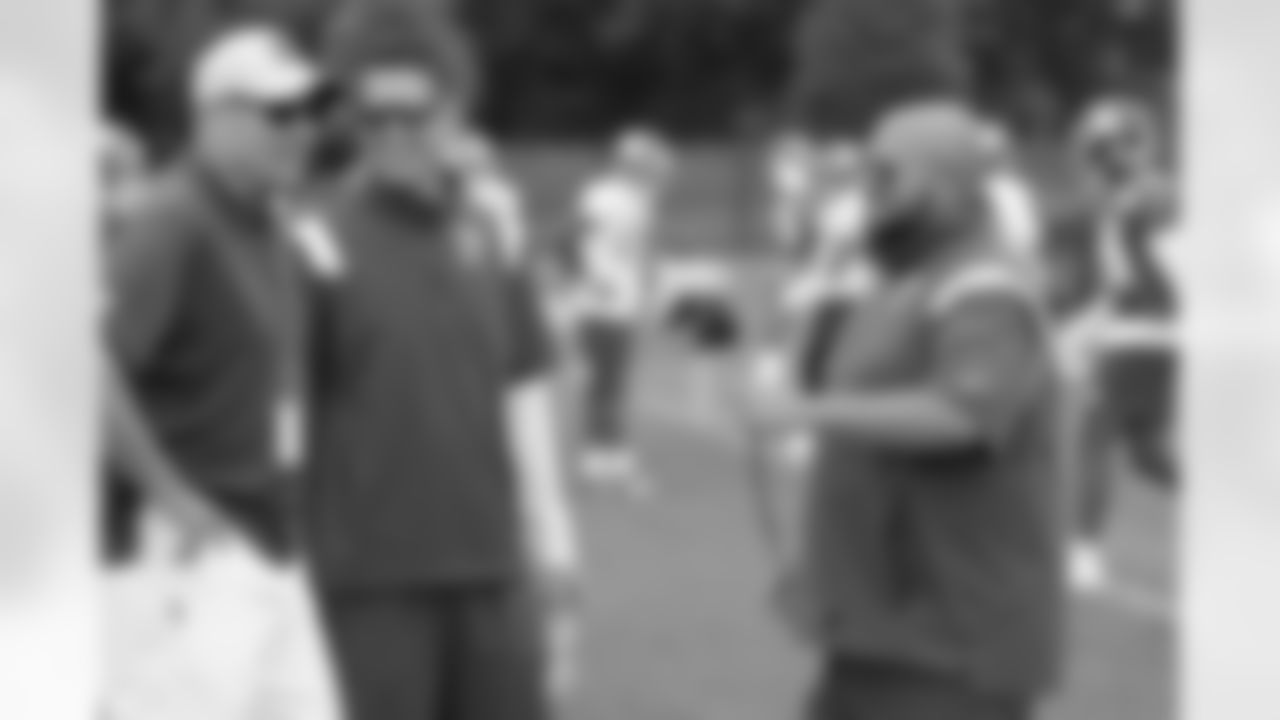
New York Giants head coach Brian Daboll talks with General manager Joe Schoen and former Giant Jeff Feagles during training camp practice at Quest Diagnostics Training Center on Friday July 29, 2022 in East Rutherford, New Jersey
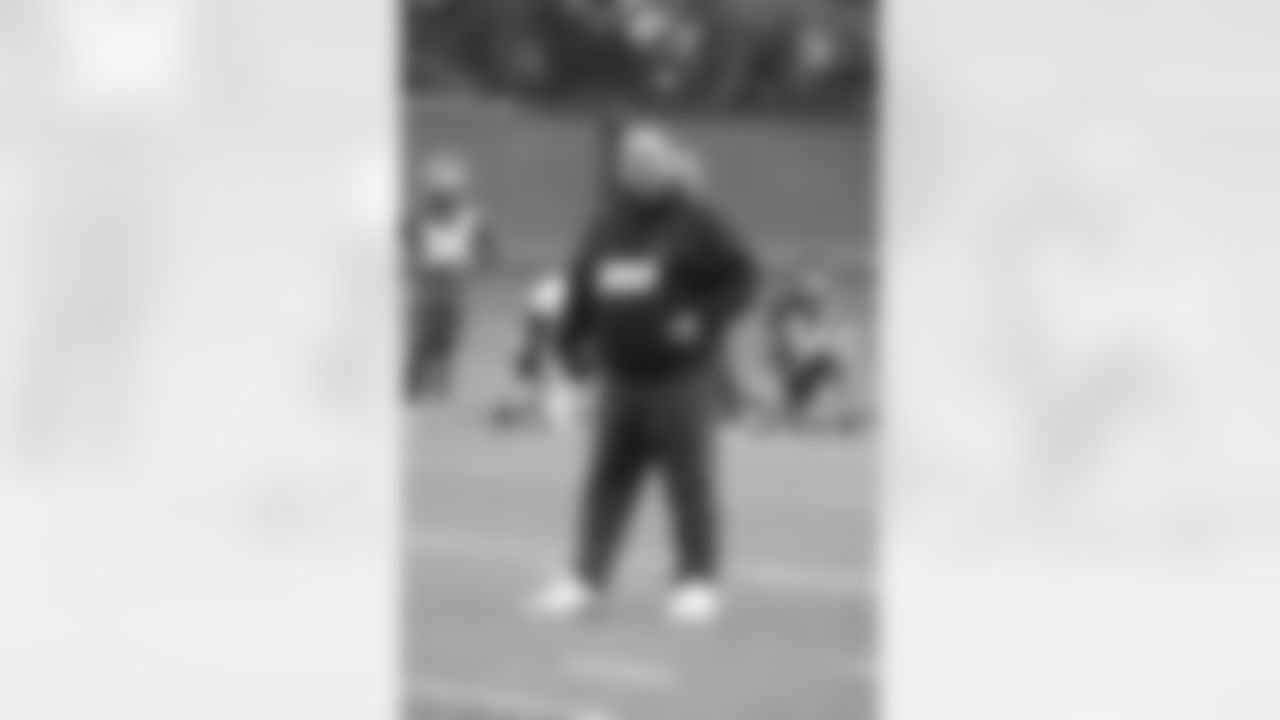
New York Giants head coach Brian Daboll during organized team activity at Quest Diagnostics Training Center on Wednesday June 1, 2022 in East Rutherford, New Jersey

New York Giants head coach Brian Daboll walks with General manager Joe Schoen during training camp practice at Quest Diagnostics Training Center on Friday July 29, 2022 in East Rutherford, New Jersey
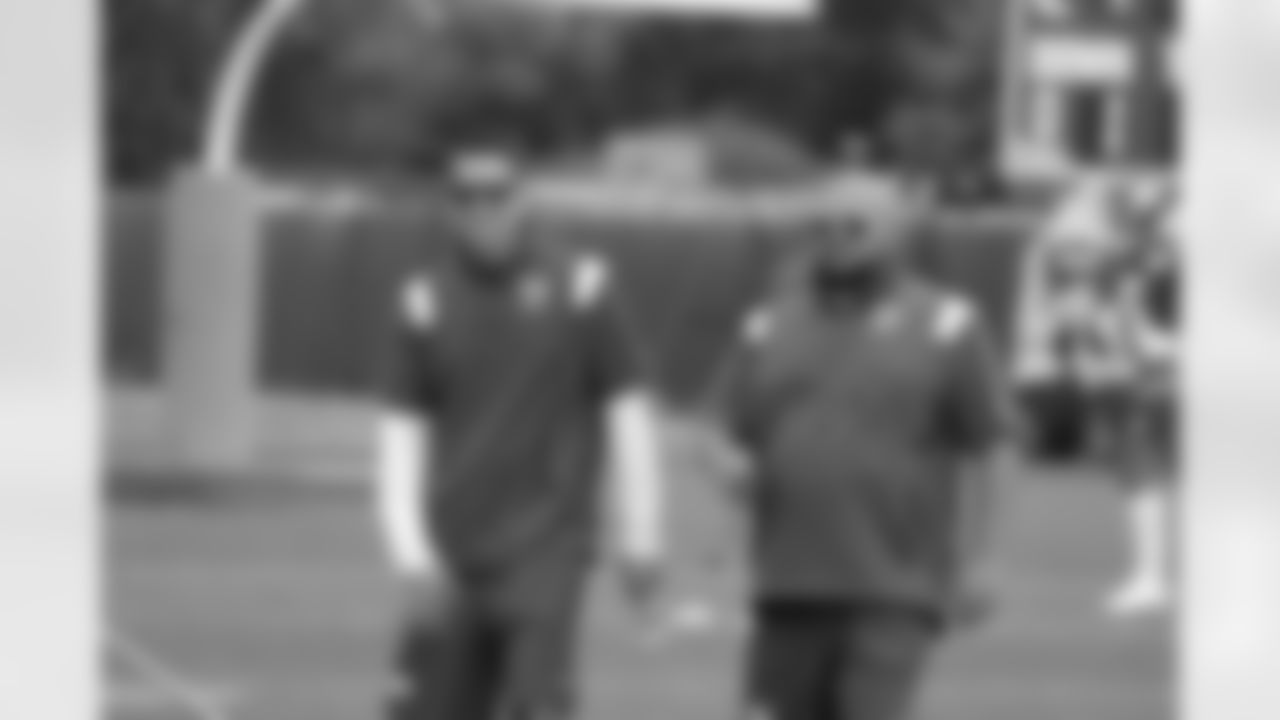
New York Giants head coach Brian Daboll walks with General manager Joe Schoen during training camp practice at Quest Diagnostics Training Center on Friday July 29, 2022 in East Rutherford, New Jersey
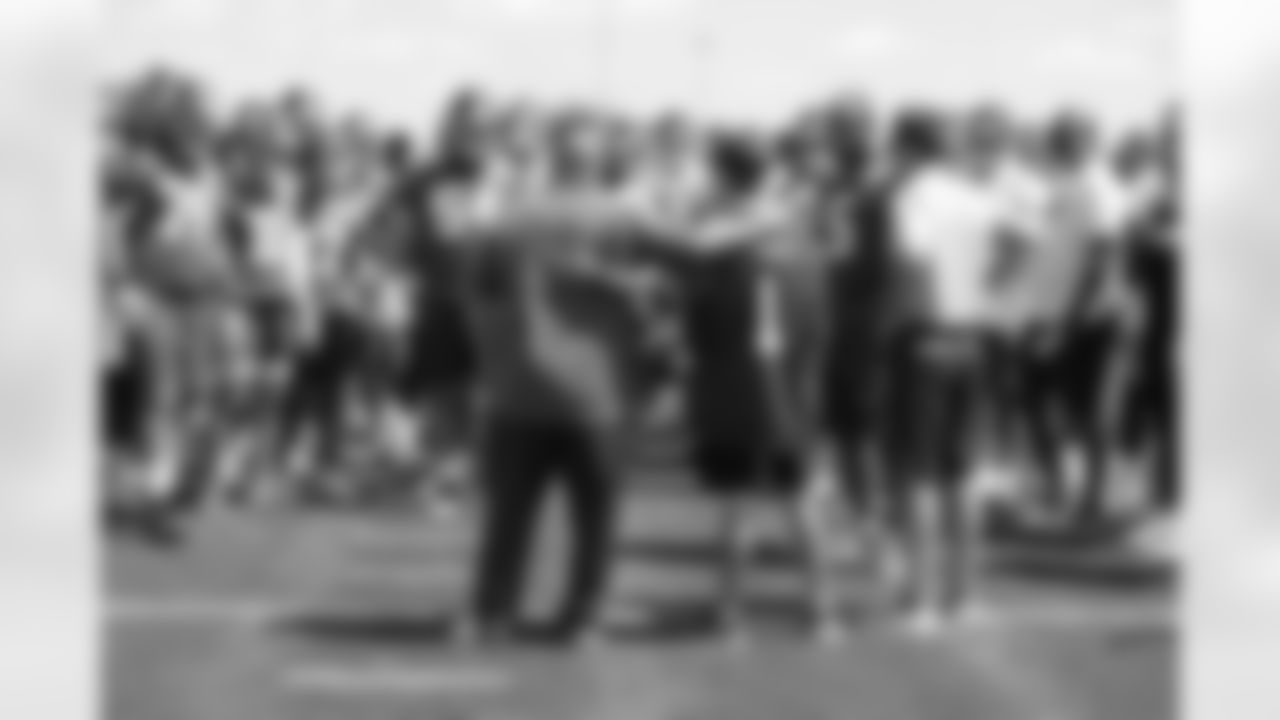
New York Giants head coach Brain Daboll introduces Sam Prince to the team during Minicamp at Quest Diagnostics Training Center on Wednesday June 8, 2022 in East Rutherford, New Jersey
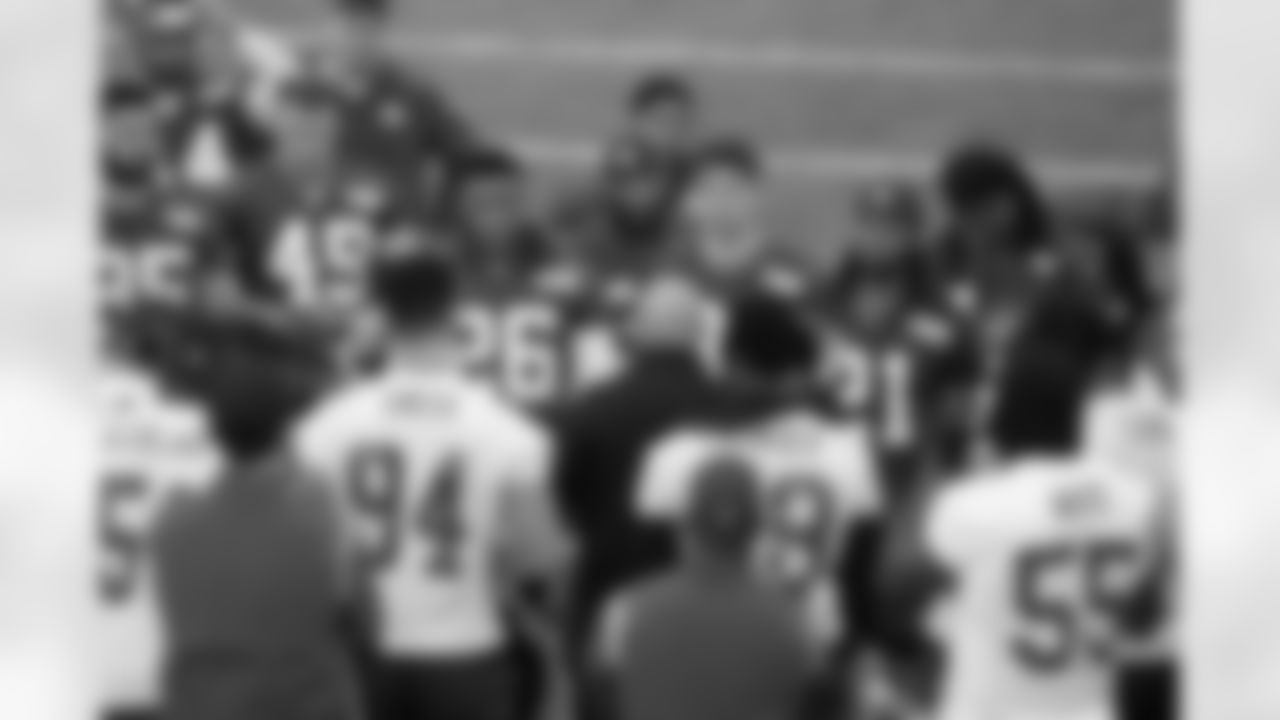
New York Giants head coach Brian Daboll talks to his team following minicamp practice at Quest Diagnostics Training Center on Tuesday April 19, 2022 in East Rutherford, New Jersey
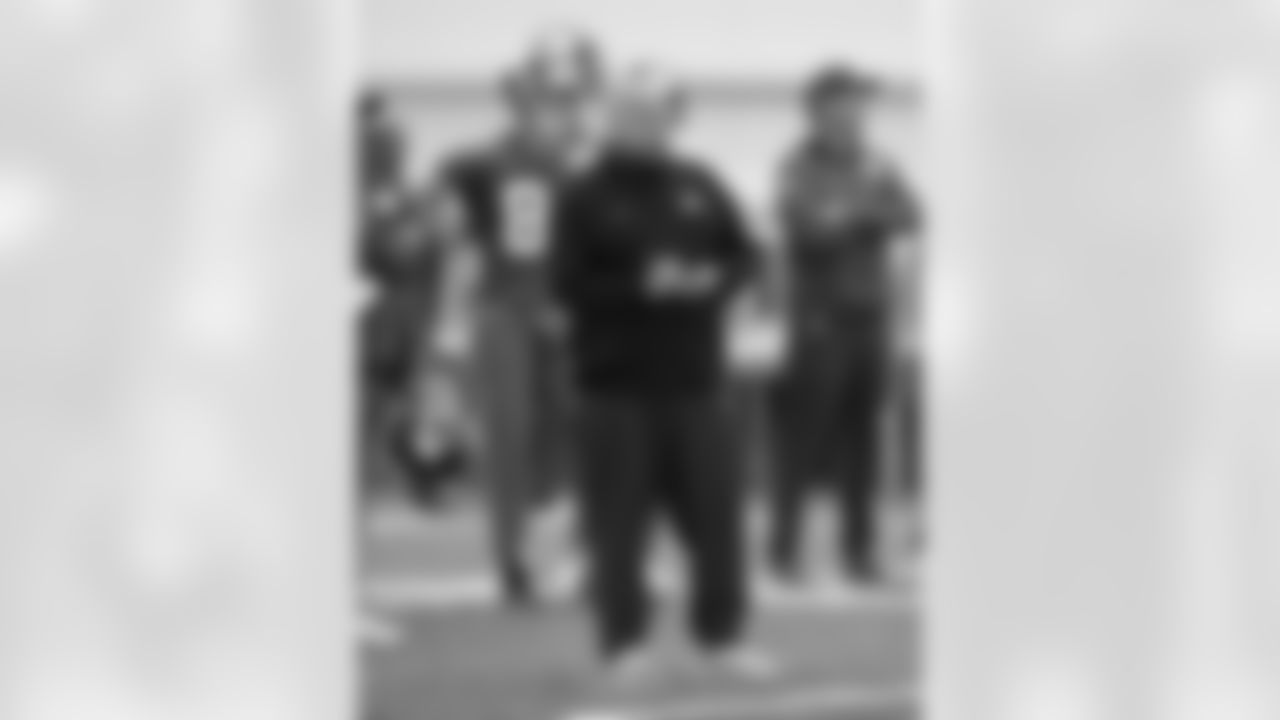
New York Giants head coach Brian Daboll during minicamp practice at Quest Diagnostics Training Center on Tuesday April 19, 2022 in East Rutherford, New Jersey

New York Giants head coach Brian Daboll during training camp practice at Quest Diagnostics Training Center on Wednesday August 24, 2022 in East Rutherford, New Jersey

New York Giants head coach Brian Daboll during training camp practice at Quest Diagnostics Training Center on Thursday July 28, 2022 in East Rutherford, New Jersey

New York Giants head coach Brian Daboll talks with quaterback Daniel Jones (8) during training camp practice at Quest Diagnostics Training Center on Thursday July 28, 2022 in East Rutherford, New Jersey
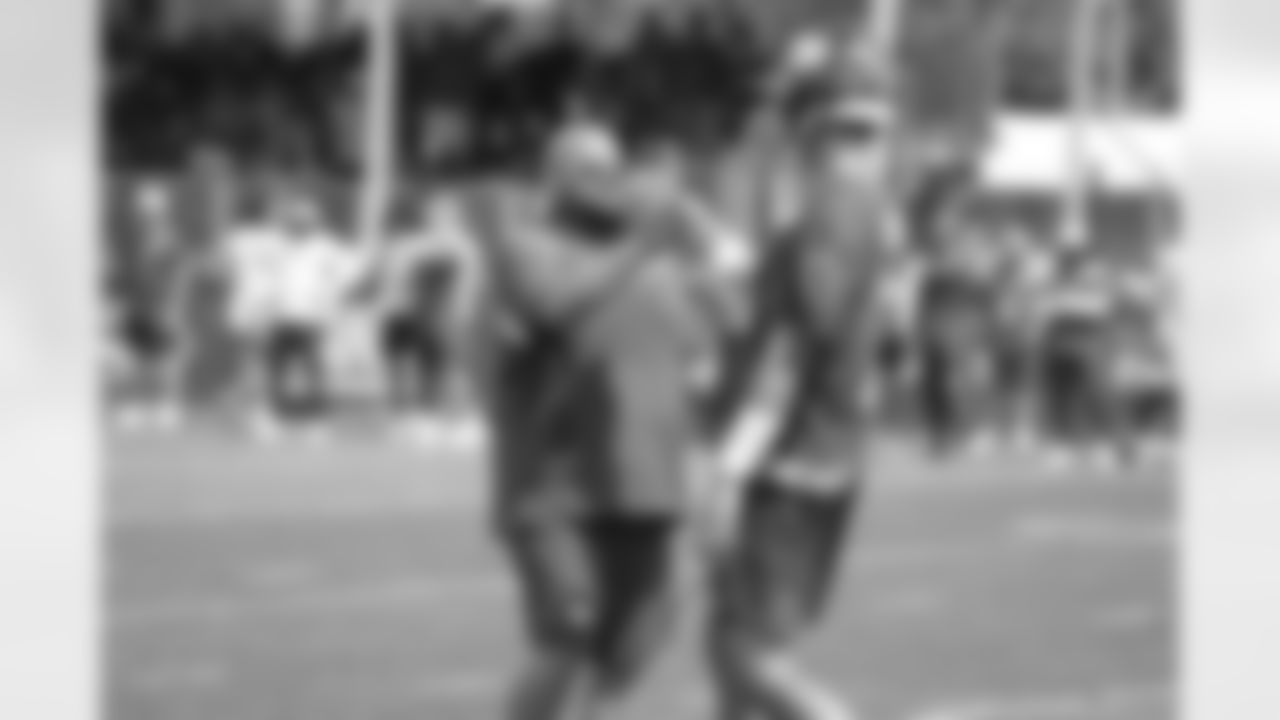
New York Giants head coach Brian Daboll fist bumps quaterback Daniel Jones (8) during training camp practice at Quest Diagnostics Training Center on Thursday July 28, 2022 in East Rutherford, New Jersey
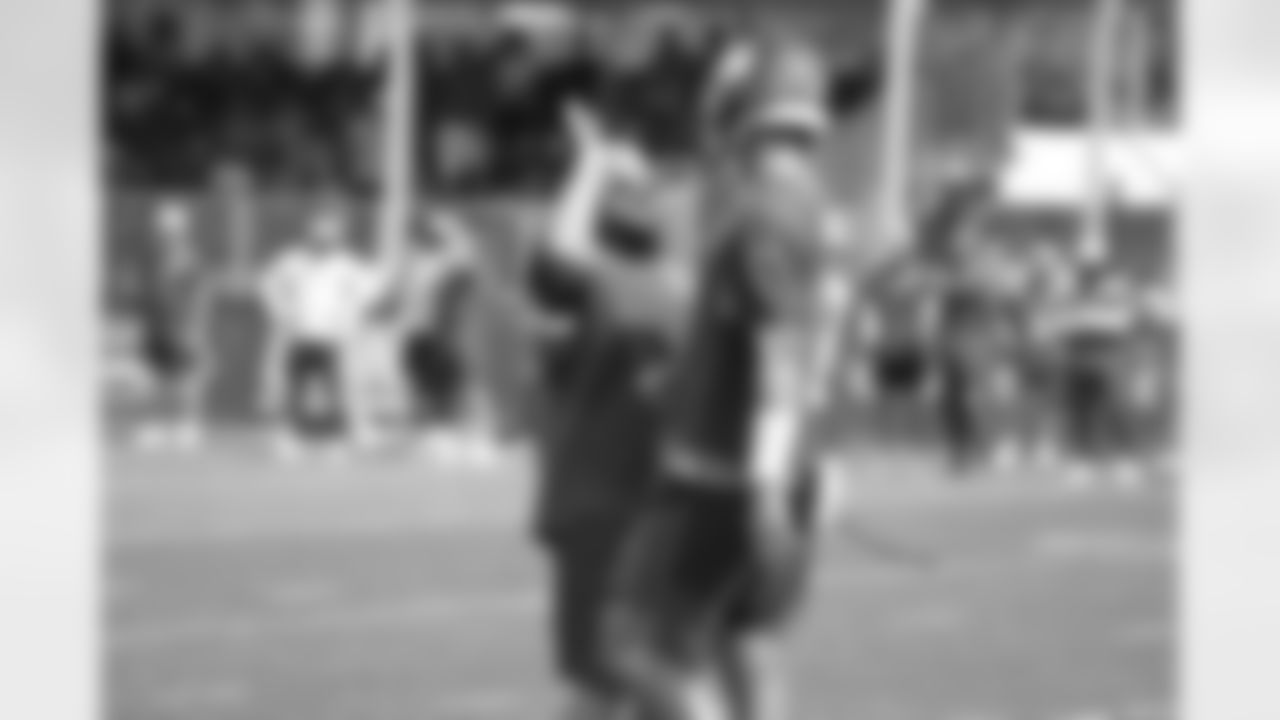
New York Giants head coach Brian Daboll fist bumps quaterback Daniel Jones (8) during training camp practice at Quest Diagnostics Training Center on Thursday July 28, 2022 in East Rutherford, New Jersey

New York Giants head coach Brian Daboll during minicamp practice at Quest Diagnostics Training Center on Tuesday April 19, 2022 in East Rutherford, New Jersey

New York Giants head coach Brian Daboll during training camp practice at Quest Diagnostics Training Center on Thursday July 28, 2022 in East Rutherford, New Jersey
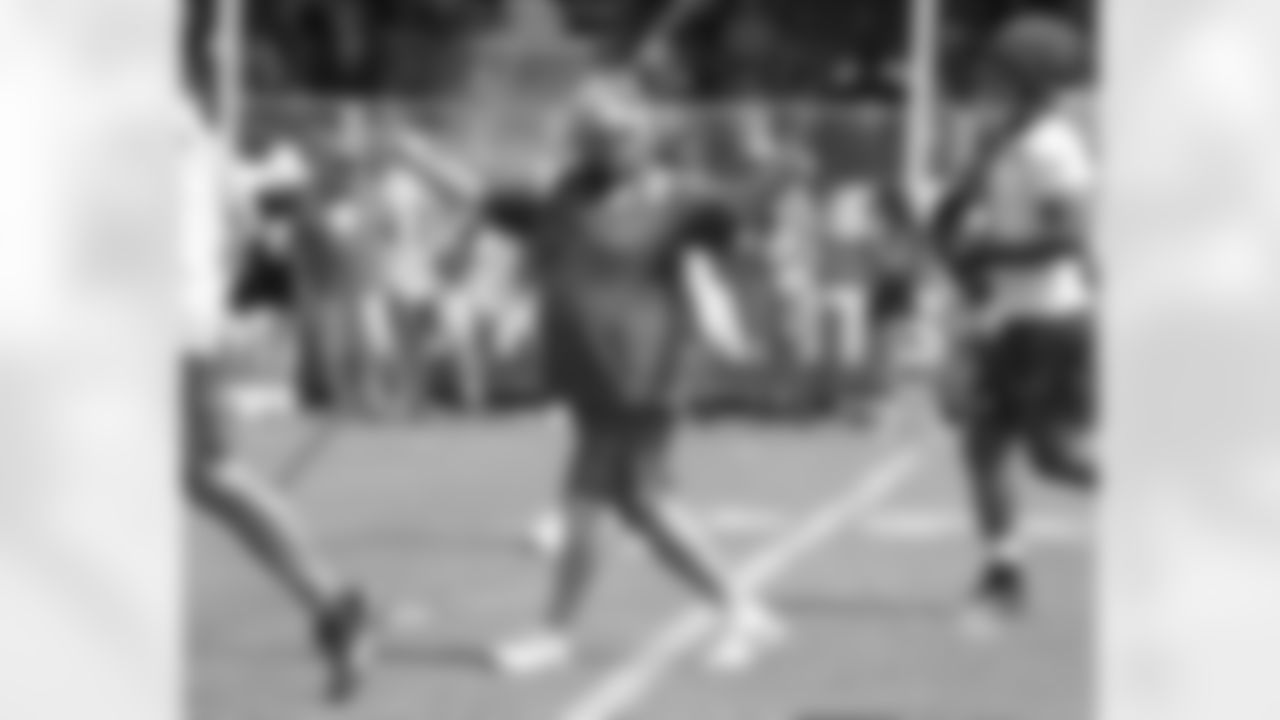
New York Giants head coach Brian Daboll during training camp practice at Quest Diagnostics Training Center on Thursday July 28, 2022 in East Rutherford, New Jersey
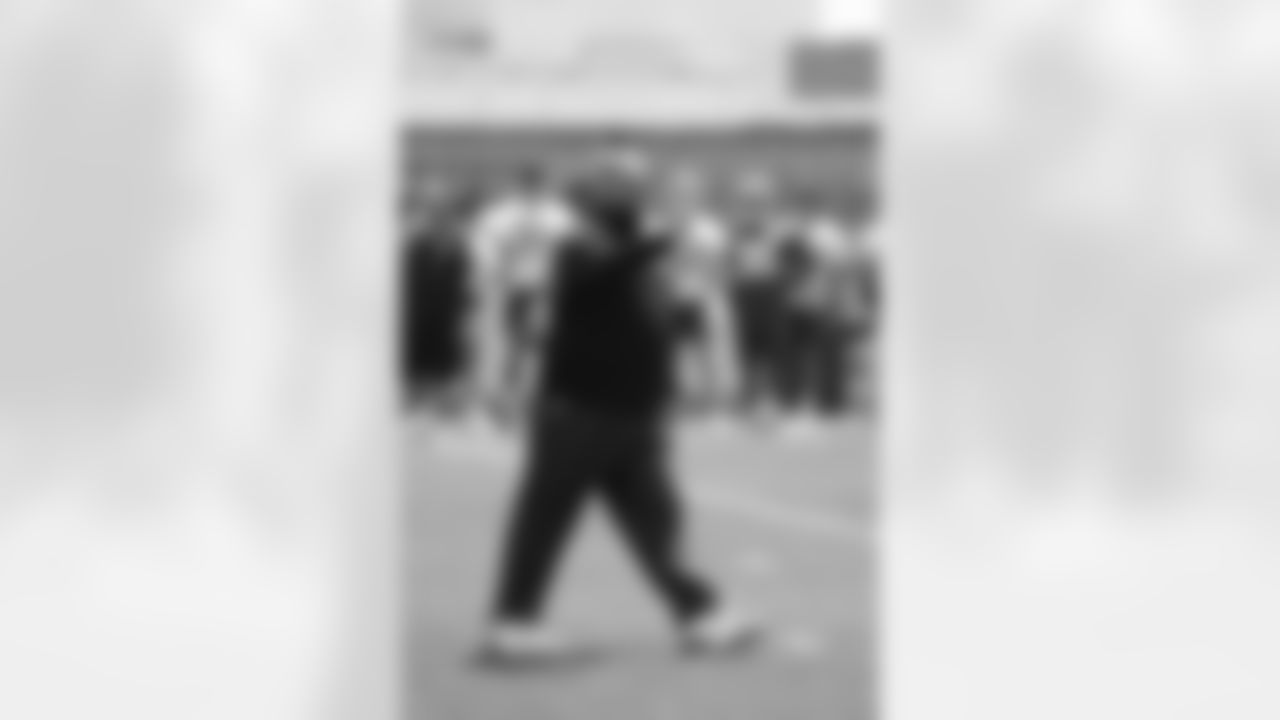
New York Giants head coach Brian Daboll during organized team activity at Quest Diagnostics Training Center on Thursday May 26, 2022 in East Rutherford, New Jersey

New York Giants head coach Brian Daboll during organized team activity at Quest Diagnostics Training Center on Thursday May 26, 2022 in East Rutherford, New Jersey

Head Coach Brian Daboll during minicamp practice at Quest Diagnostics Training Center on Tuesday April 21, 2022 in East Rutherford, New Jersey
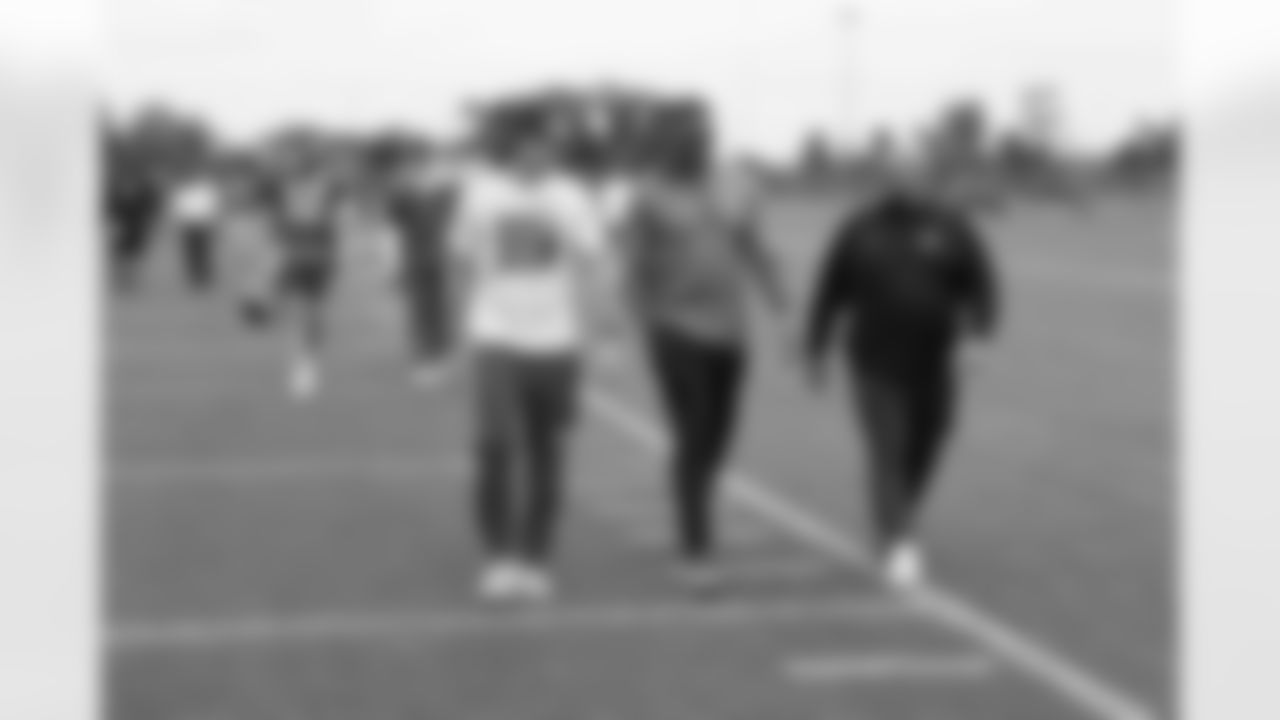
Joe Schoen, Michael Strahan and Brian Daboll talk after organized team activity at Quest Diagnostics Training Center on Thursday June 2, 2022 in East Rutherford, New Jersey
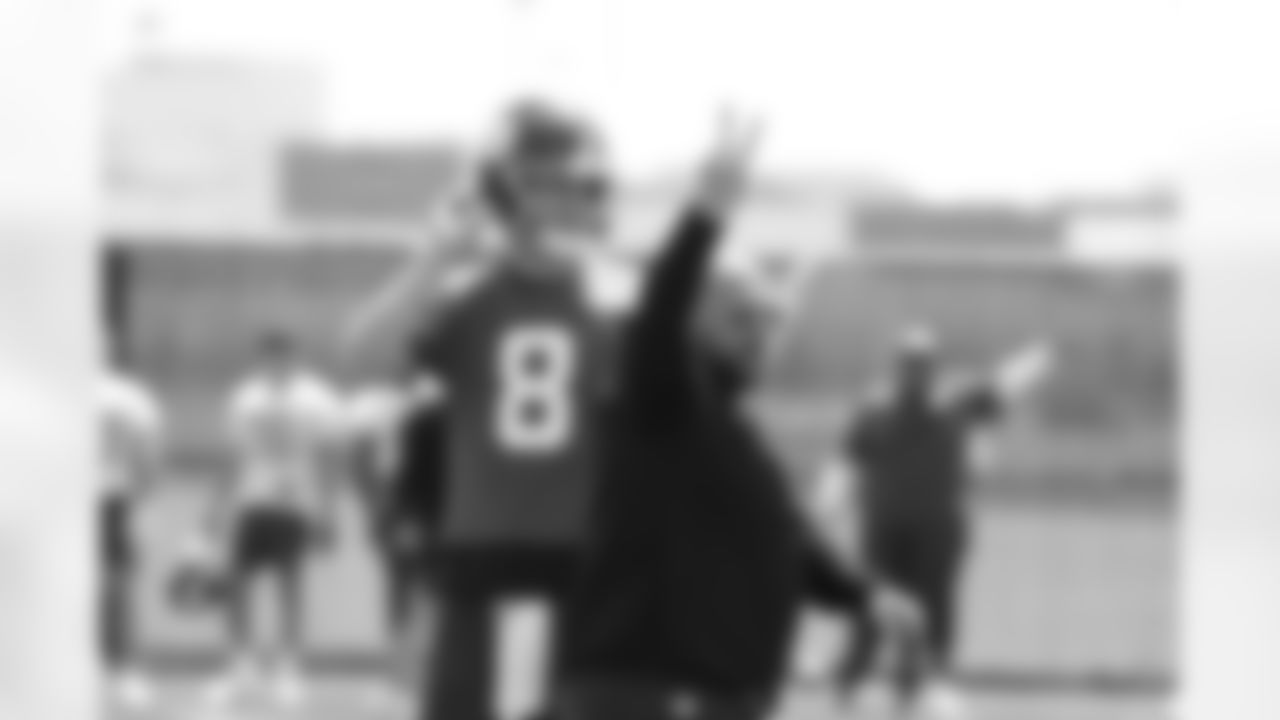
New York Giants head coach Brian Daboll during organized team activity at Quest Diagnostics Training Center on Thursday May 26, 2022 in East Rutherford, New Jersey
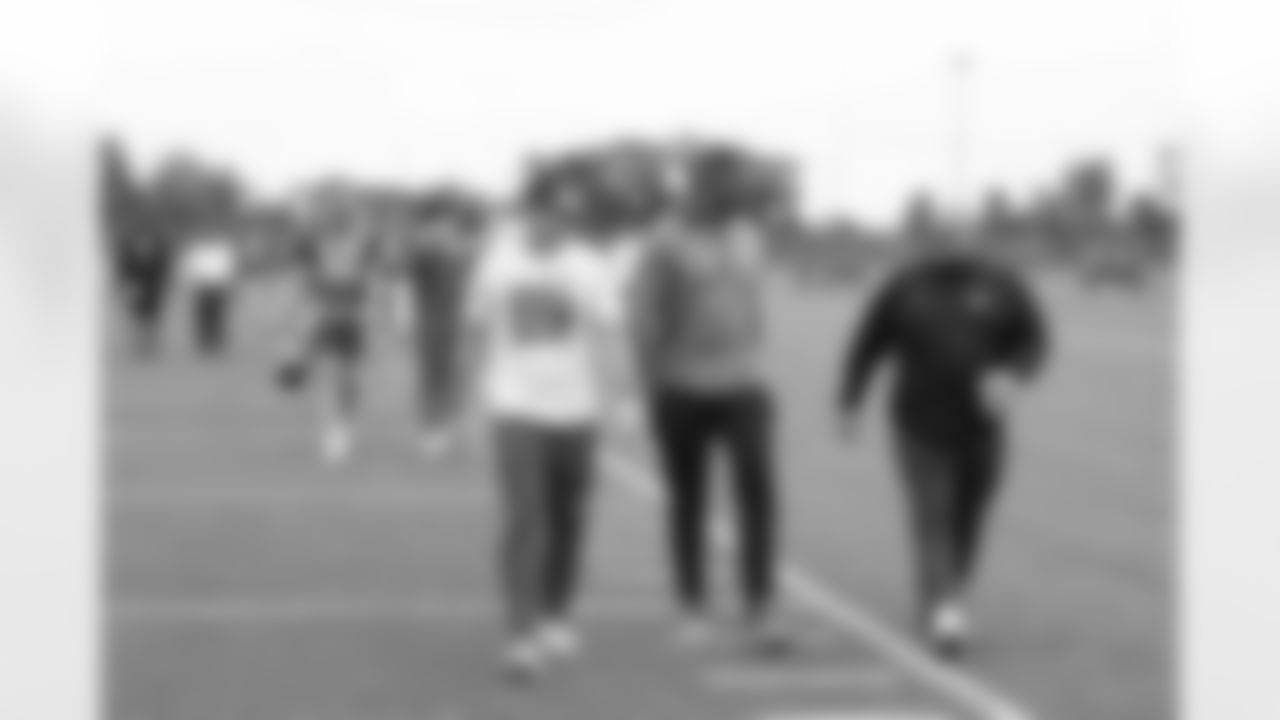
Joe Schoen, Michael Strahan and Brian Daboll talk after organized team activity at Quest Diagnostics Training Center on Thursday June 2, 2022 in East Rutherford, New Jersey

Joe Schoen, Michael Strahan and Brian Daboll talk after organized team activity at Quest Diagnostics Training Center on Thursday June 2, 2022 in East Rutherford, New Jersey
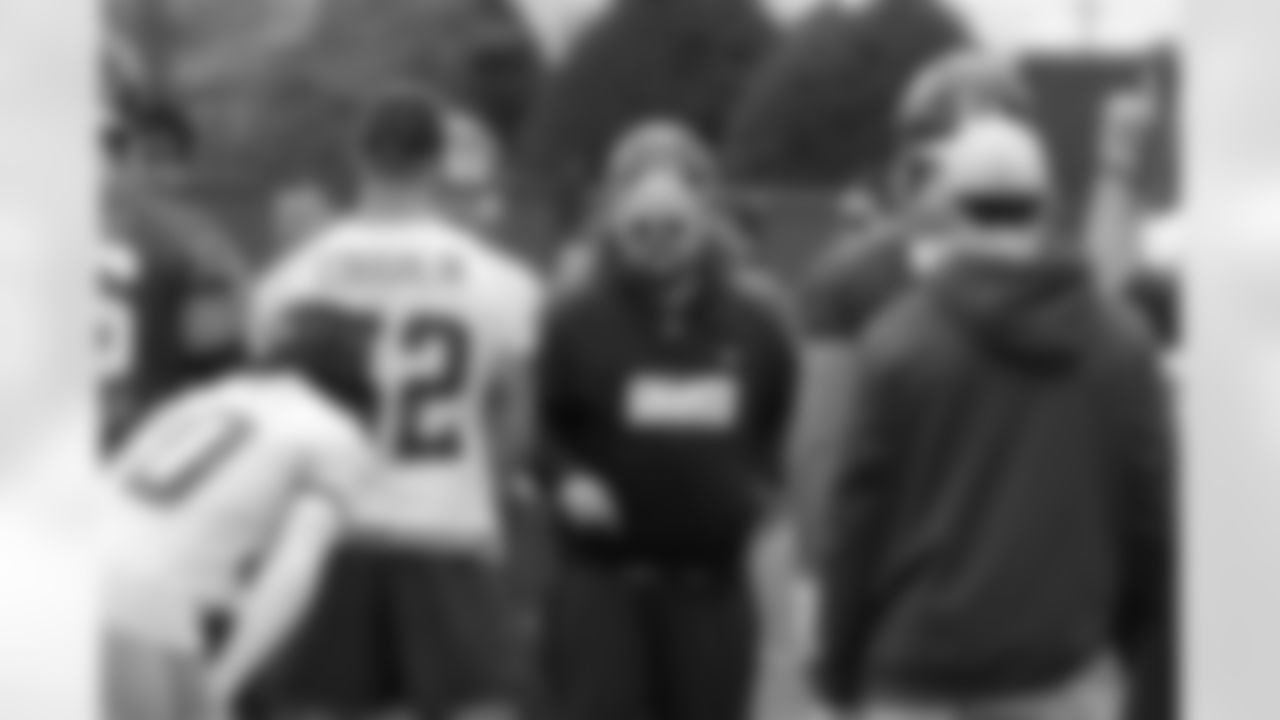
New York Giants head coach Brian Daboll talks to his players during minicamp practice at Quest Diagnostics Training Center on Tuesday April 21, 2022 in East Rutherford, New Jersey

New York Giants Foundation Charity Golf Classic at Canoe Brook Country Club on Monday May 31, 2022 in Summit, New Jersey

New York Giants head coach Brian Daboll during minicamp practice at Quest Diagnostics Training Center on Tuesday April 19, 2022 in East Rutherford, New Jersey
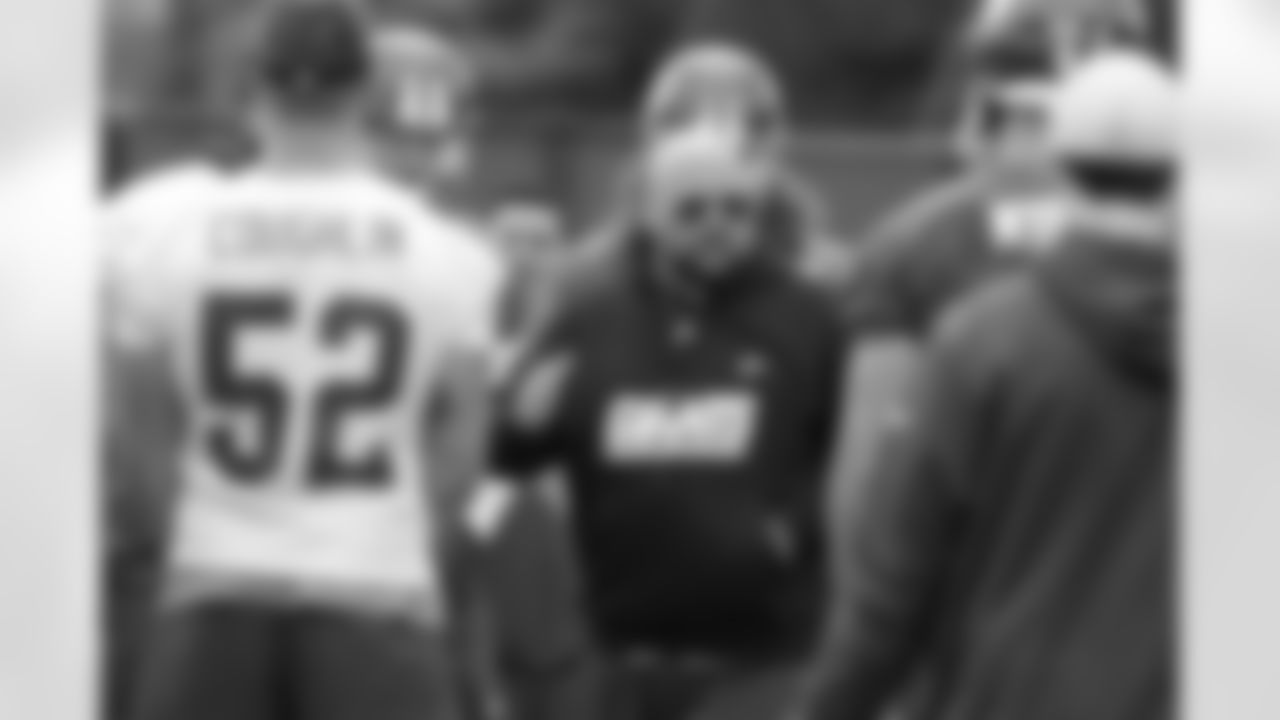
New York Giants head coach Brian Daboll talks to his players during minicamp practice at Quest Diagnostics Training Center on Tuesday April 21, 2022 in East Rutherford, New Jersey
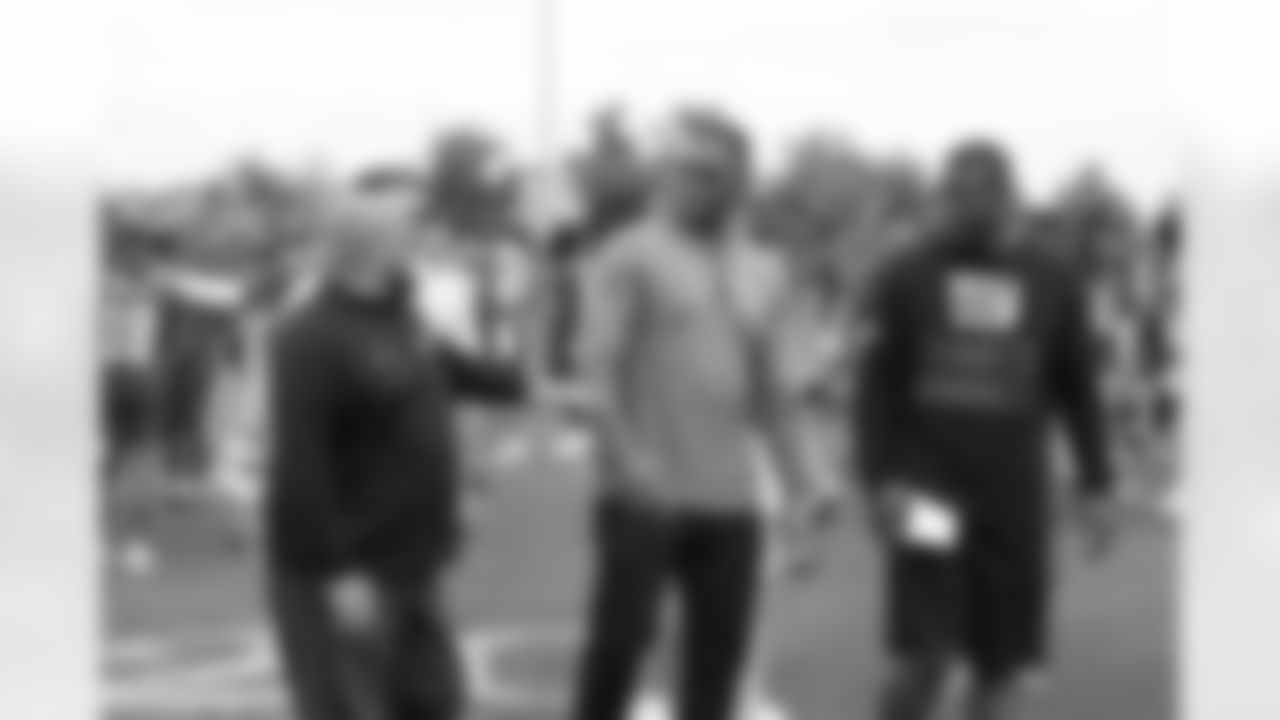
New York Giants head coach Brian Daboll talks with Michael Strahan during organized team activity at Quest Diagnostics Training Center on Thursday June 2, 2022 in East Rutherford, New Jersey

New York Giants head coach Brian Daboll during a pre-season football game against the Cincinnati Bengals on Sunday August 21, 2022 in East Rutherford, New Jersey (Evan Pinkus/NY Giants)

New York Giants cornerback Adoree' Jackson (22) shakes hands with Brian Daboll after returning an interception during organized team activity at Quest Diagnostics Training Center on Thursday May 26, 2022 in East Rutherford, New Jersey
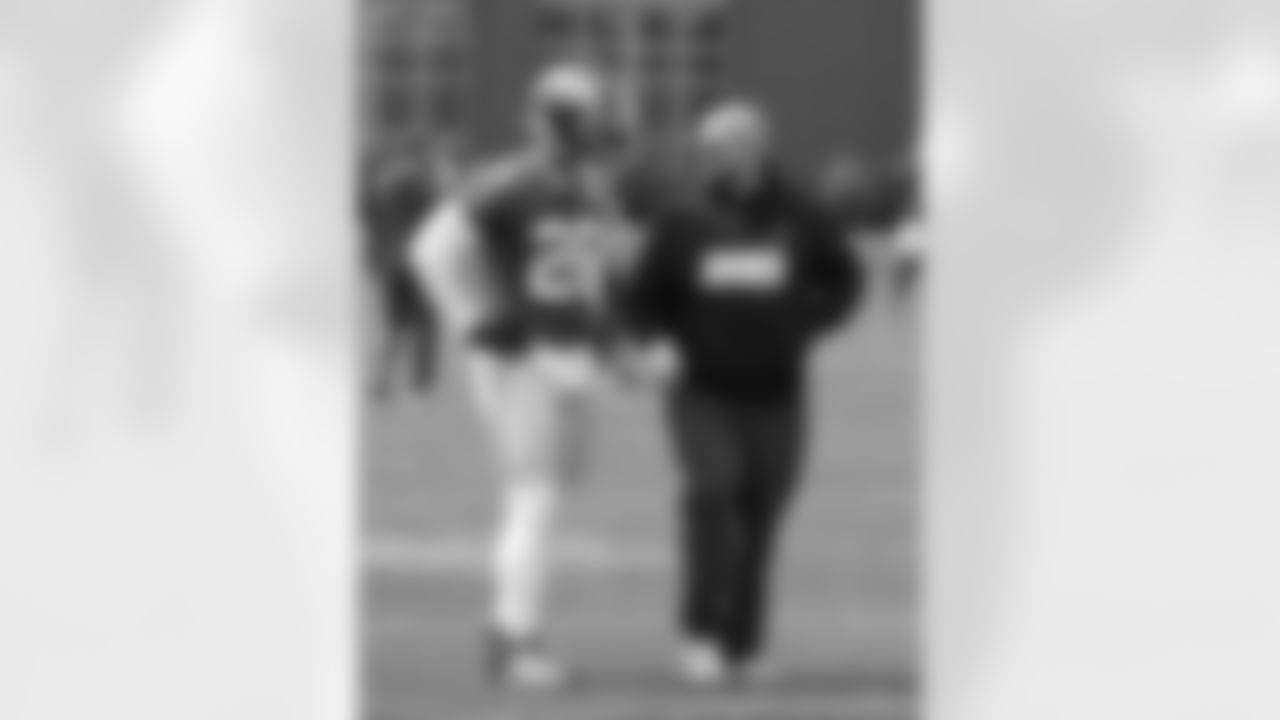
New York Giants head coach Brian Daboll talks with running back Saquon Barkley (26) during minicamp practice at Quest Diagnostics Training Center on Tuesday April 21, 2022 in East Rutherford, New Jersey
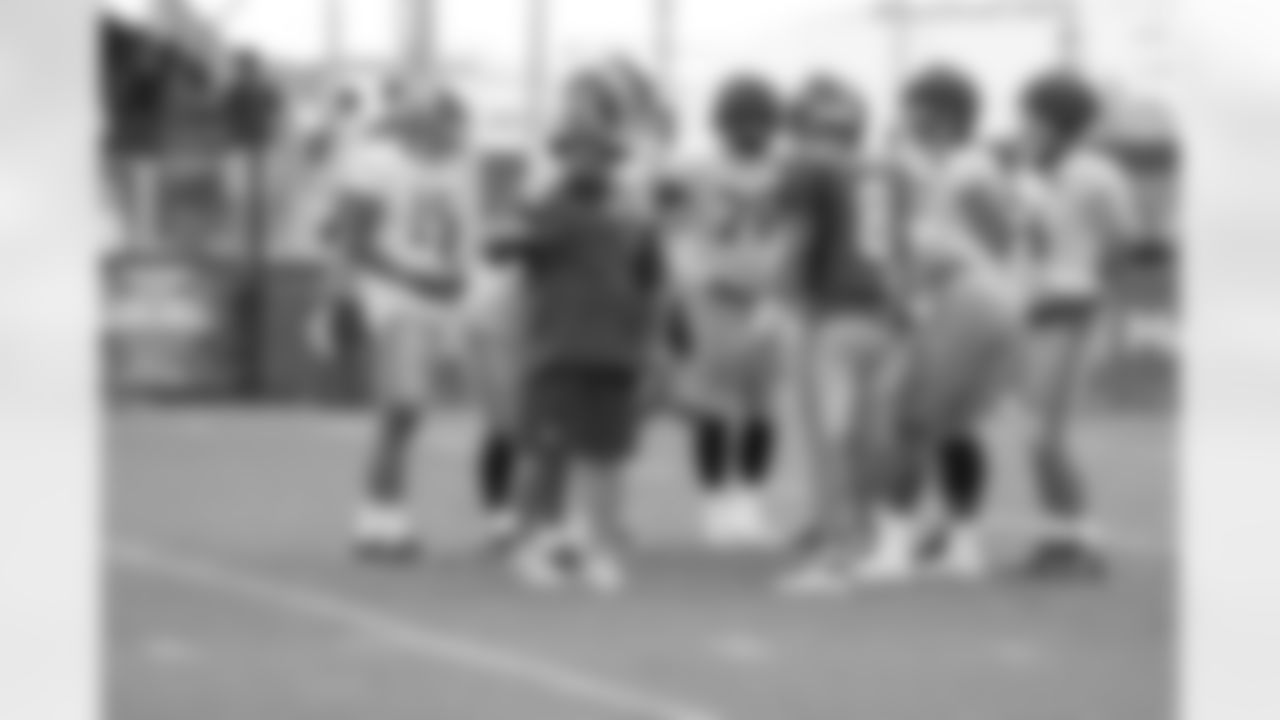
New York Giants head coach Brian Daboll during training camp practice at Quest Diagnostics Training Center on Sunday August 7, 2022 in East Rutherford, New Jersey

New York Giants Evan Neal (70) talks with head coach Brian Daboll during training camp practice at Quest Diagnostics Training Center on Thursday July 28, 2022 in East Rutherford, New Jersey

New York Giants head coach Brian Daboll during a pre-season football game against the Cincinnati Bengals on Sunday August 21, 2022 in East Rutherford, New Jersey (Evan Pinkus/NY Giants)

New York Giants head coach Brian Daboll during a pre-season football game against the Cincinnati Bengals on Sunday August 21, 2022 in East Rutherford, New Jersey (Evan Pinkus/NY Giants)

New York Giants head coach Brian Daboll and Darnay Holmes (30) during training camp practice at Quest Diagnostics Training Center on Wednesday July 27, 2022 in East Rutherford, New Jersey

New York Giants Foundation Charity Golf Classic at Canoe Brook Country Club on Monday May 31, 2022 in Summit, New Jersey

New York Giants Foundation Charity Golf Classic at Canoe Brook Country Club on Monday May 31, 2022 in Summit, New Jersey

New York Giants Foundation Charity Golf Classic at Canoe Brook Country Club on Monday May 31, 2022 in Summit, New Jersey

Brian Daboll

New York Giants head coach Brian Daboll watches from the sideline during a pre-season football game against the Cincinnati Bengals on Sunday August 21, 2022 in East Rutherford, New Jersey (Evan Pinkus/NY Giants)

Brian Daboll

Brian Daboll

Brian Daboll

Cleveland Browns offensive coordinator Brian Daboll congratulates Cleveland Browns wide receiver Josh Cribbs (16) as he comes off the field against the Jacksonville Jaguars in their NFL football game Sunday, Jan. 3, 2010, in Cleveland. (AP Photo/Amy Sancetta)
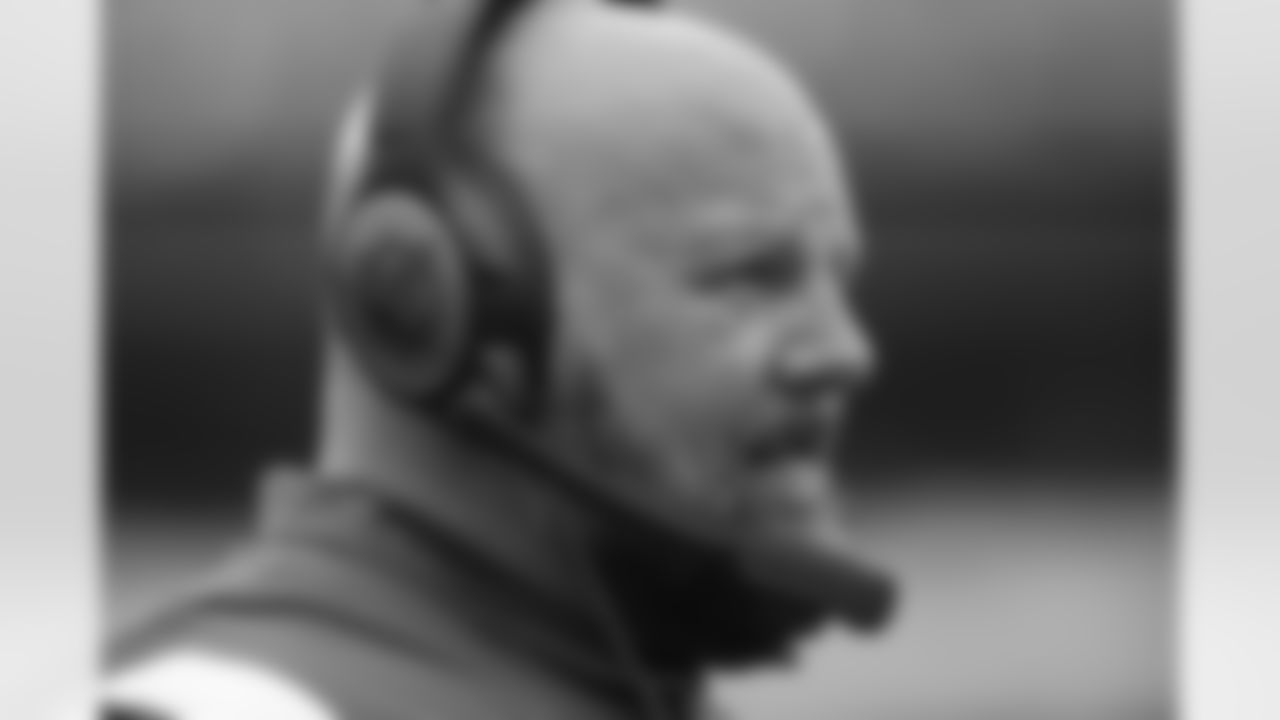
New York Giants head coach Brian Daboll works the sidelines in the first half of a preseason NFL football game against the New York Jets, Sunday, Aug. 28, 2022, in East Rutherford, N.J. (AP Photo/John Munson)
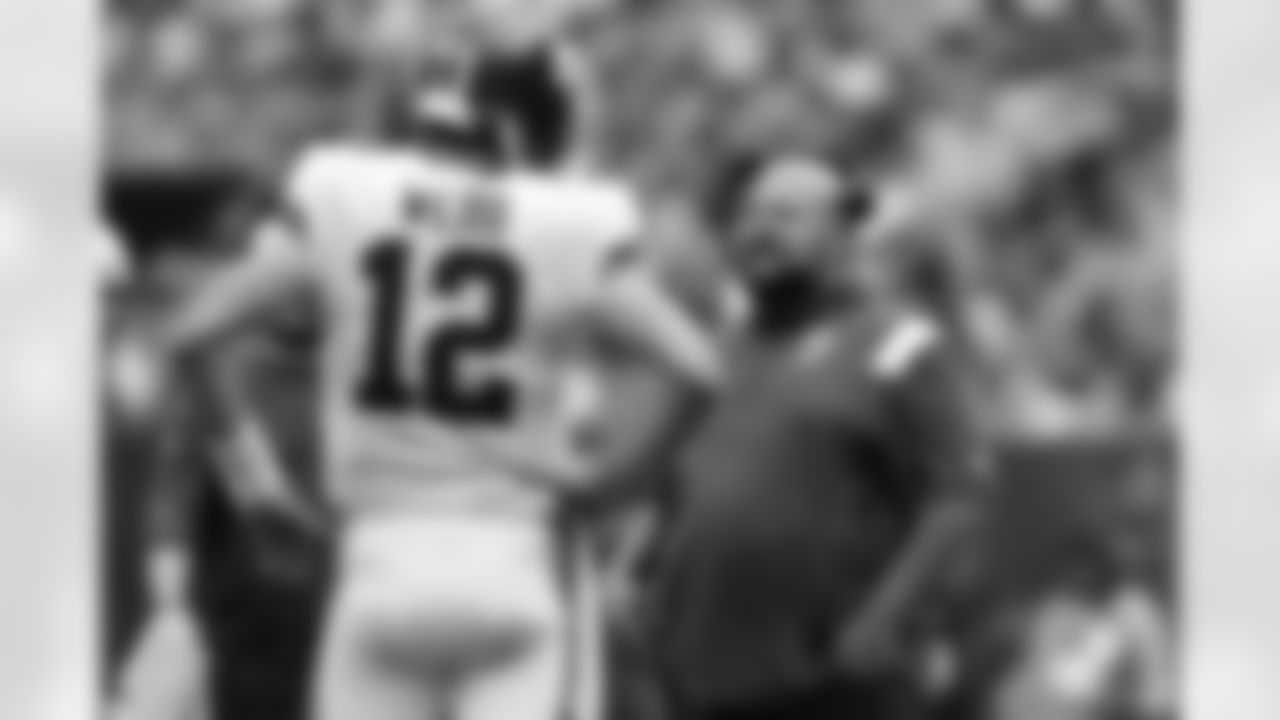
New York Giants head coach Brian Daboll talks with quarterback Davis Webb (12) during an NFL pre-season football game, Sunday, Aug. 27, 2022, in East Rutherford, N.J.. (AP Photo/Rich Schultz)
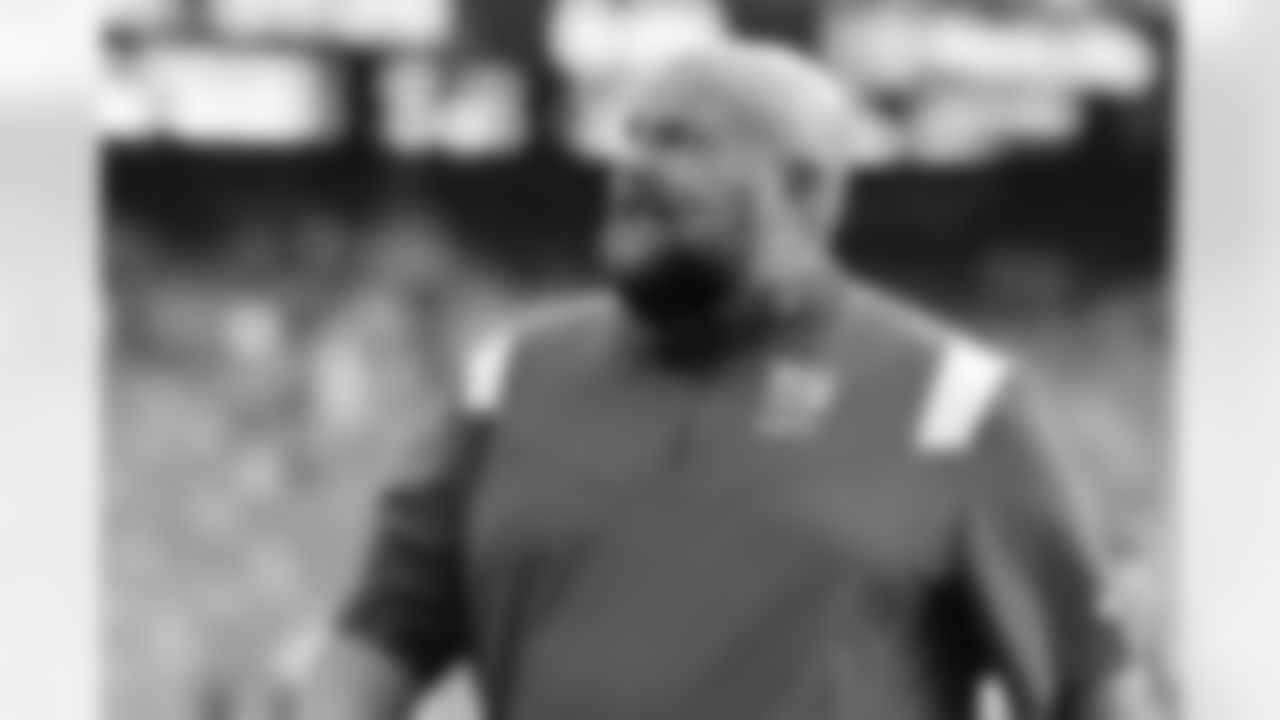
New York Giants head coach Brian Daboll walks off the field after their 31-27 loss to the New York Jets in an NFL pre-season football game, Sunday, Aug. 27, 2022, in East Rutherford, N.J.. (AP Photo/Rich Schultz)

New York Giants head coach Brian Daboll works the sidelines in the first half of a preseason NFL football game against the New York Jets, Sunday, Aug. 28, 2022, in East Rutherford, N.J. (AP Photo/John Munson)
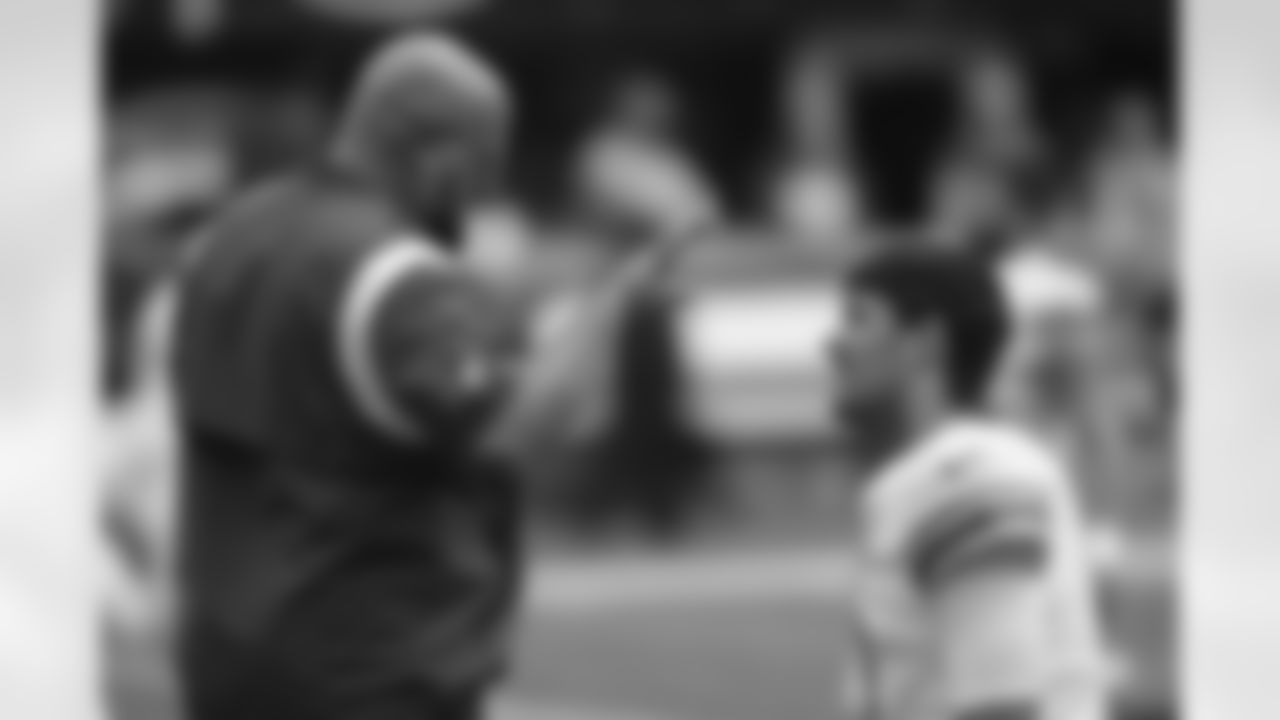
New York Giants head coach Brian Daboll, left, meets with quarterback Daniel Jones, right, during practice before a preseason NFL football game against the New York Jets, Sunday, Aug. 28, 2022, in East Rutherford, N.J. (AP Photo/John Munson)
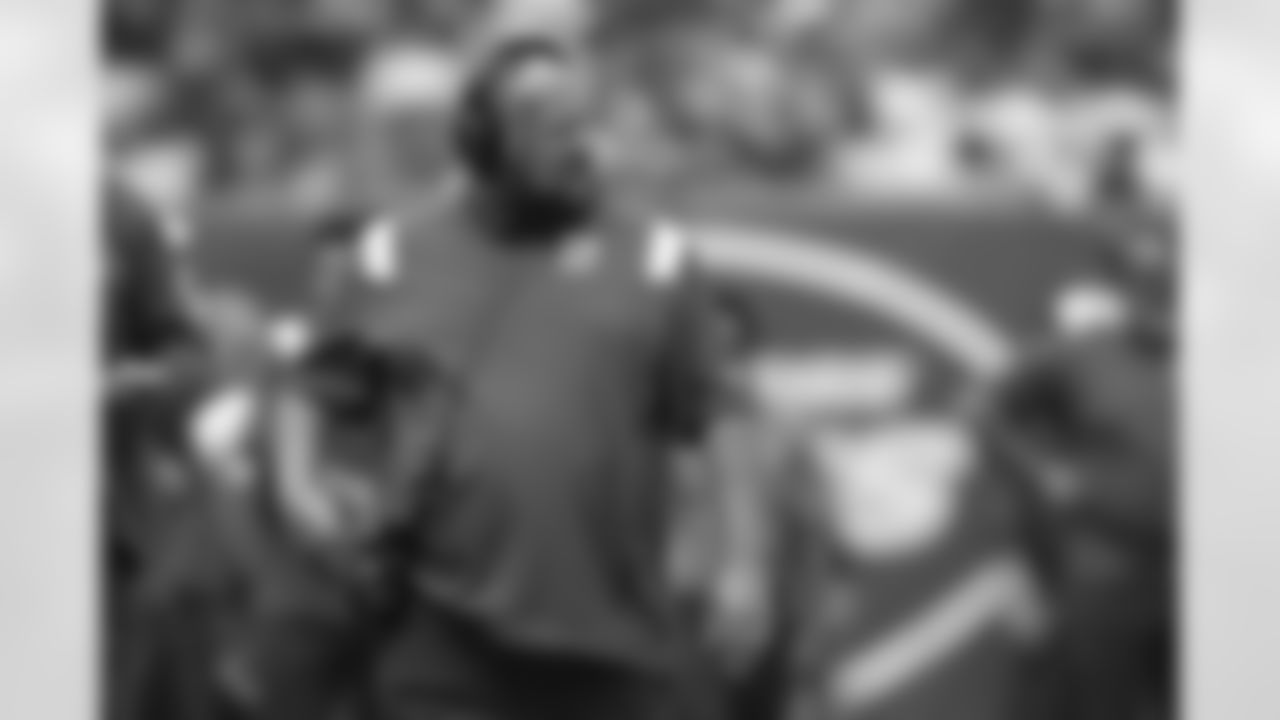
New York Giants head coach Brian Daboll works the sidelines in the first half of a preseason NFL football game against the New York Jets, Sunday, Aug. 28, 2022, in East Rutherford, N.J. (AP Photo/John Munson)
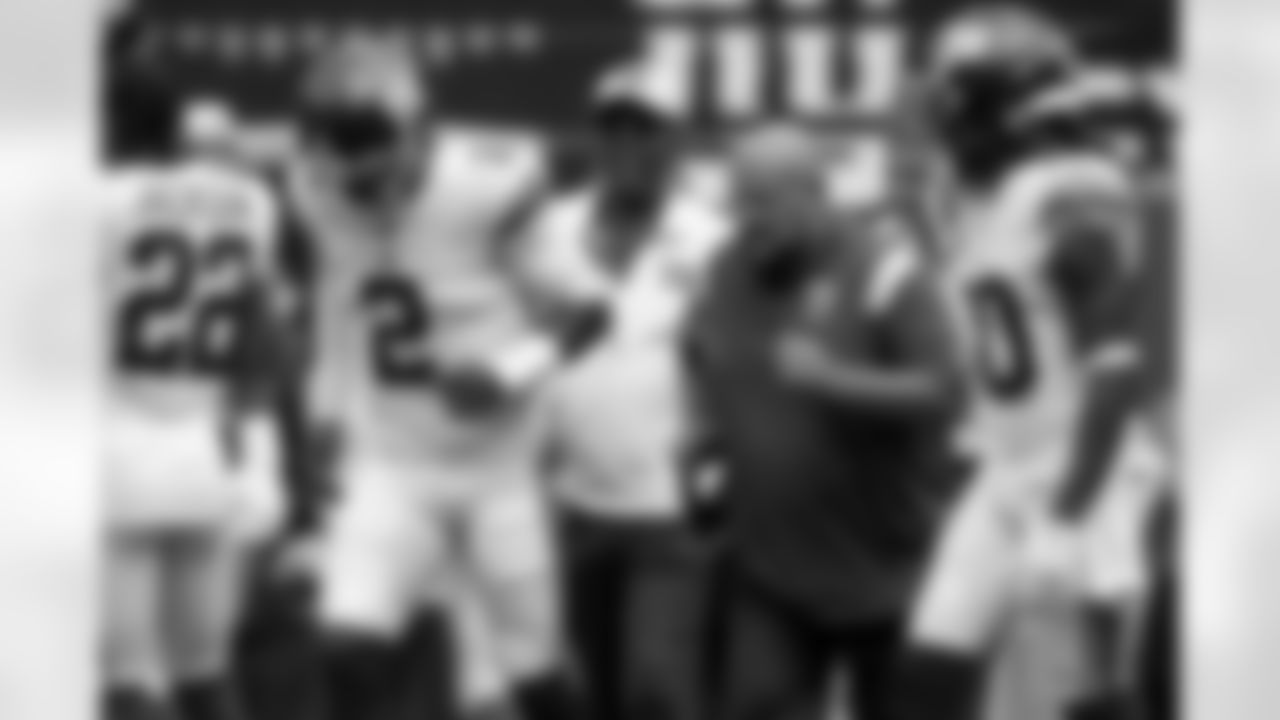
New York Giants quarterback Tyrod Taylor (2) runs off the field alongside head coach Brian Daboll, center right, after taking a hard hit from New York Jets defensive end Micheal Clemons (72) in the first half of a preseason NFL football game, Sunday, Aug. 28, 2022, in East Rutherford, N.J. (AP Photo/Julia Nikhinson)

Cincinnati Bengals head coach Zac Taylor, right, shakes hands with New York Giants head coach Brian Daboll after an NFL football game Sunday, Aug. 21, 2022, in East Rutherford, N.J. The Giants won 25-22. (AP Photo/John Munson)

New York Giants head coach Brian Daboll works the sidelines during practice before a preseason NFL football game against the New York Jets, Sunday, Aug. 28, 2022, in East Rutherford, N.J. (AP Photo/John Munson)
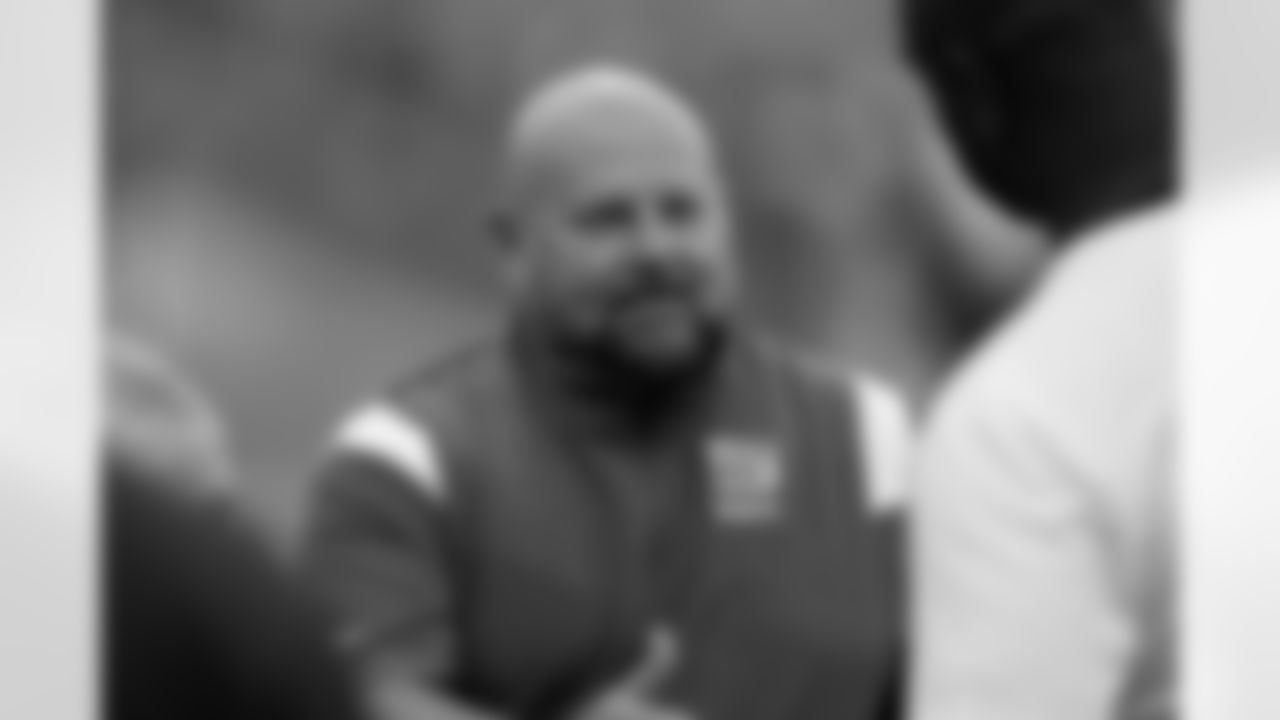
New York Giants head coach Brian Daboll greets people on the field prior to an NFL football game between against the New England Patriots, Thursday, Aug. 11, 2022, in Foxborough, Mass. (AP Photo/Charles Krupa)
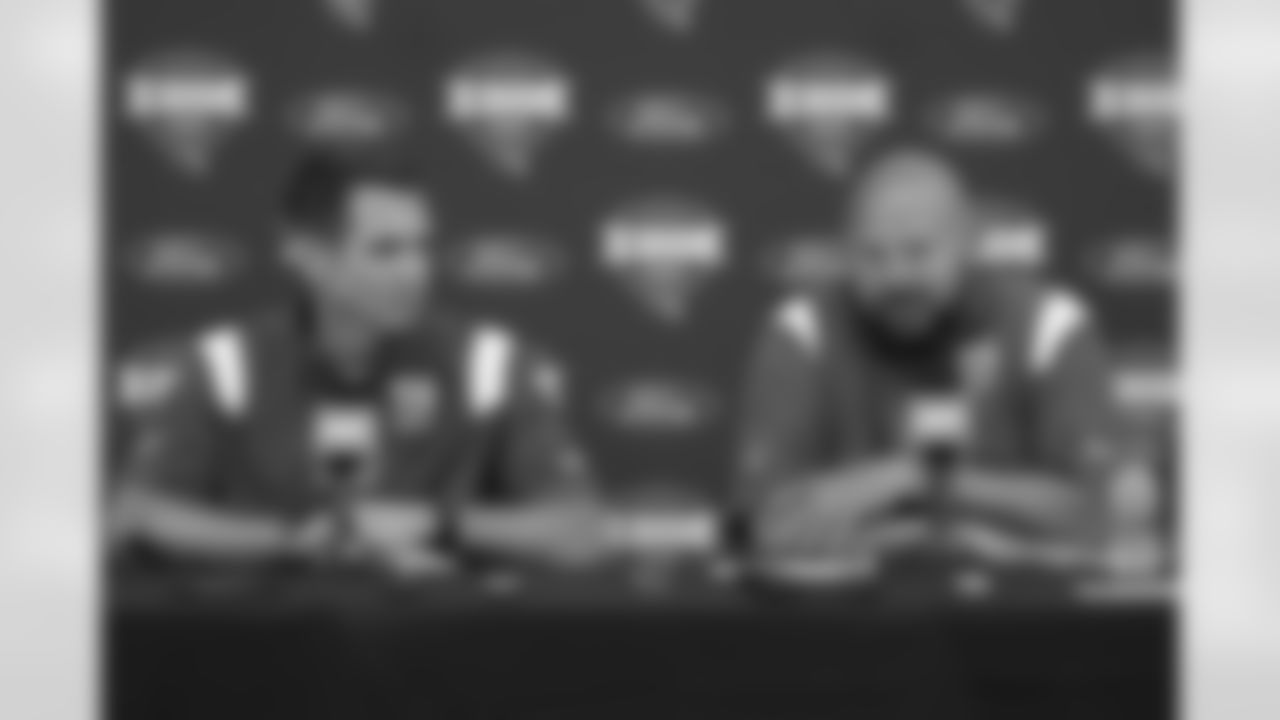
FILE - New York Giants general manager Joe Schoen, left, and head coach Brian Daboll, right, attend a news conference before training camp at the NFL football team's practice facility July 27, 2022, in East Rutherford, N.J. For the third time since 2018, the Giants are rebuilding again. Schoen has replaced Dave Gettleman as general manager and Daboll was selected to replace Joe Judge as coach. (AP Photo/John Minchillo, File)
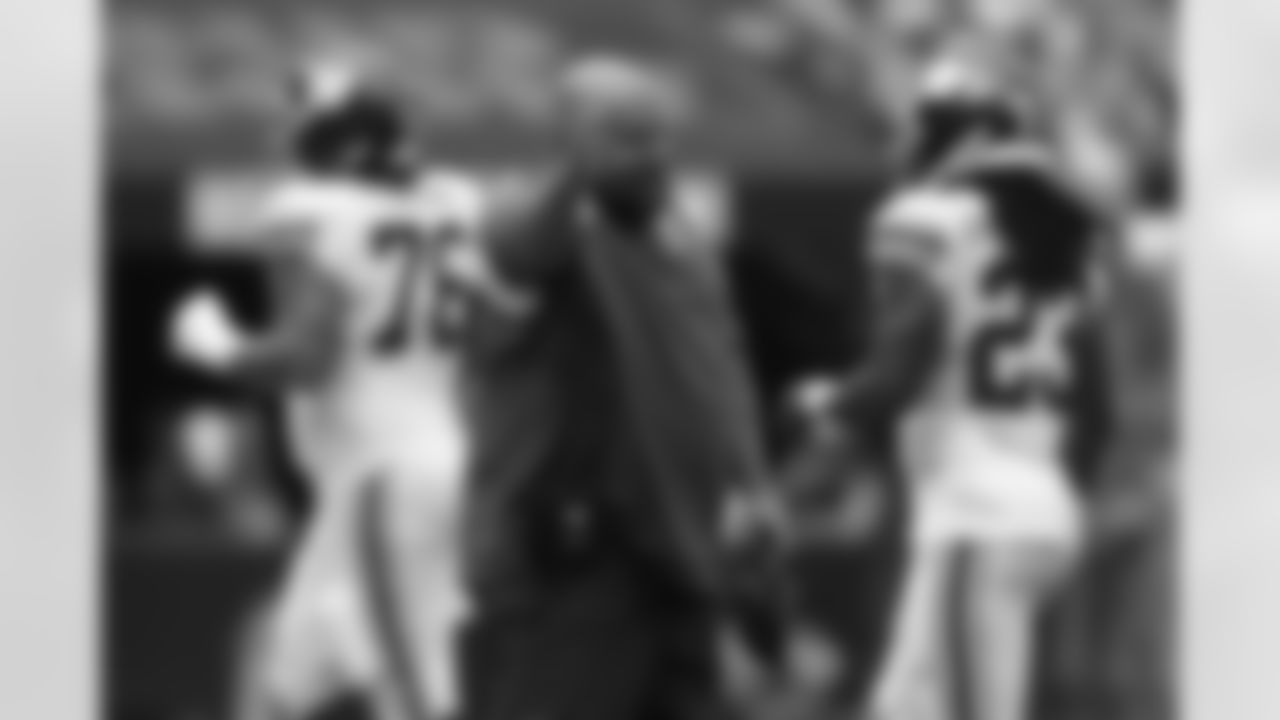
New York Giants head coach Brian Daboll works the sidelines in the first half of a preseason NFL football game against the New York Jets, Sunday, Aug. 28, 2022, in East Rutherford, N.J. (AP Photo/John Munson)
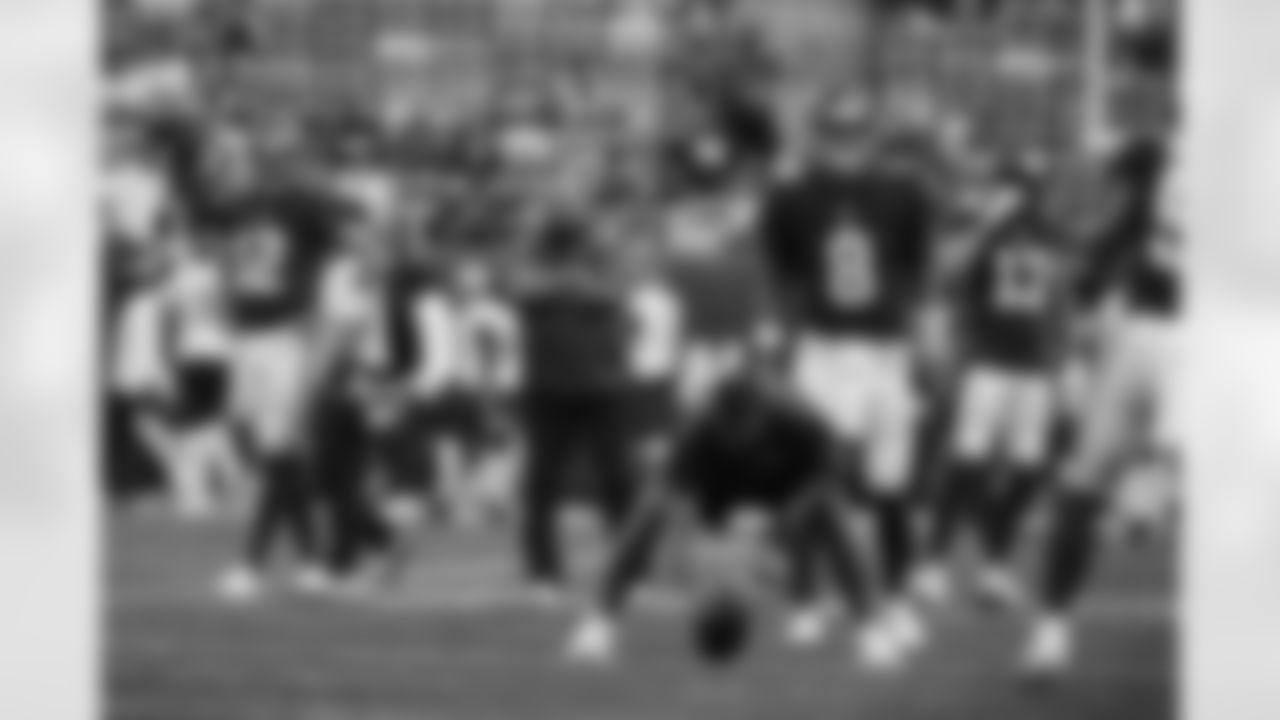
New York Giants head coach Brian Daboll watches his team warm up before a preseason NFL football game against the Cincinnati Bengals Sunday, Aug. 21, 2022, in East Rutherford, N.J. (AP Photo/John Munson)

New York Giants head coach Brian Daboll talks to reporters before a practice at the NFL football team's training facility in East Rutherford, N.J., Thursday, May 26, 2022. (AP Photo/Seth Wenig)

New York Giants head coach Brian Daboll on the sideline during the second half of an NFL football game against the New England Patriots, Thursday, Aug. 11, 2022, in Foxborough, Mass. (AP Photo/Greg M. Cooper)

New York Giants quarterback Tyrod Taylor (2) talk with head coach Brian Daboll during the first half of an NFL football game against the New England Patriots, Thursday, Aug. 11, 2022, in Foxborough, Mass. (AP Photo/Greg M. Cooper)
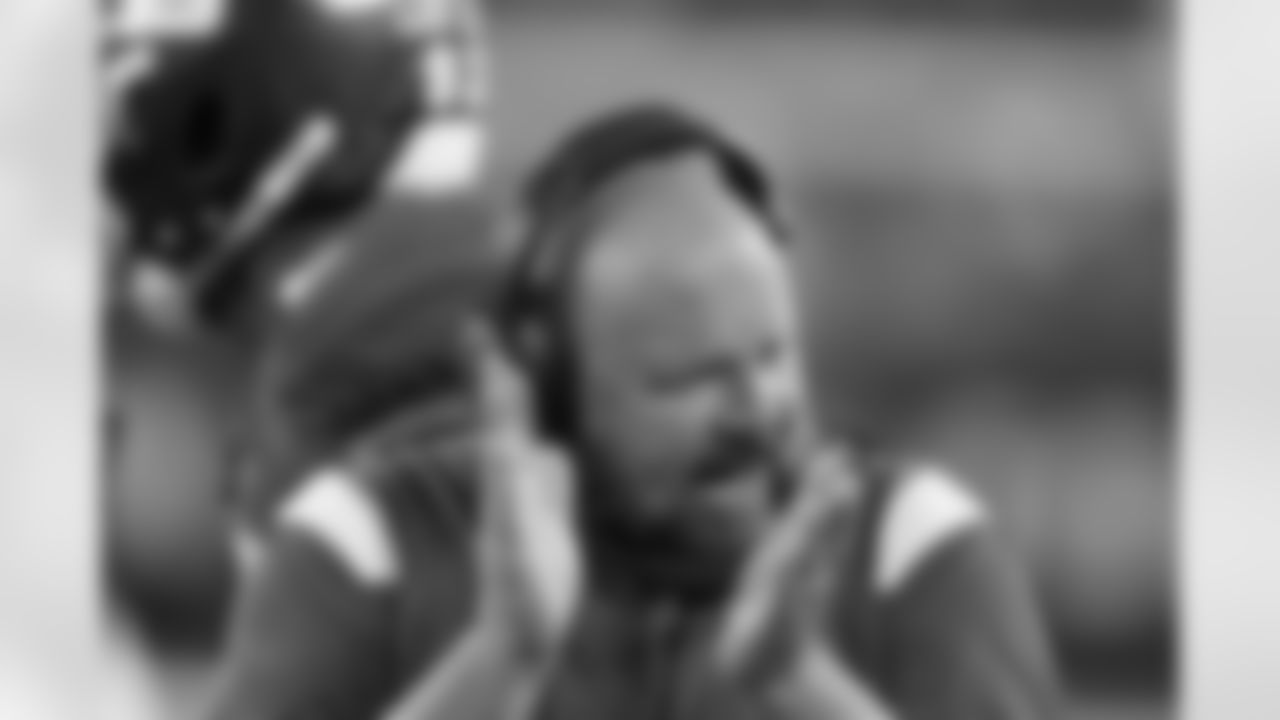
New York Giants head coach Brian Daboll calls out to his players during the first half of a preseason NFL football game against the Cincinnati Bengals Sunday, Aug. 21, 2022, in East Rutherford, N.J. (AP Photo/John Minchillo)

New York Giants head coach Brian Daboll talks to tight end Daniel Bellinger during drills at the NFL football team's rookie minicamp in East Rutherford, N.J., Friday, May 13, 2022. (AP Photo/Noah K. Murray)
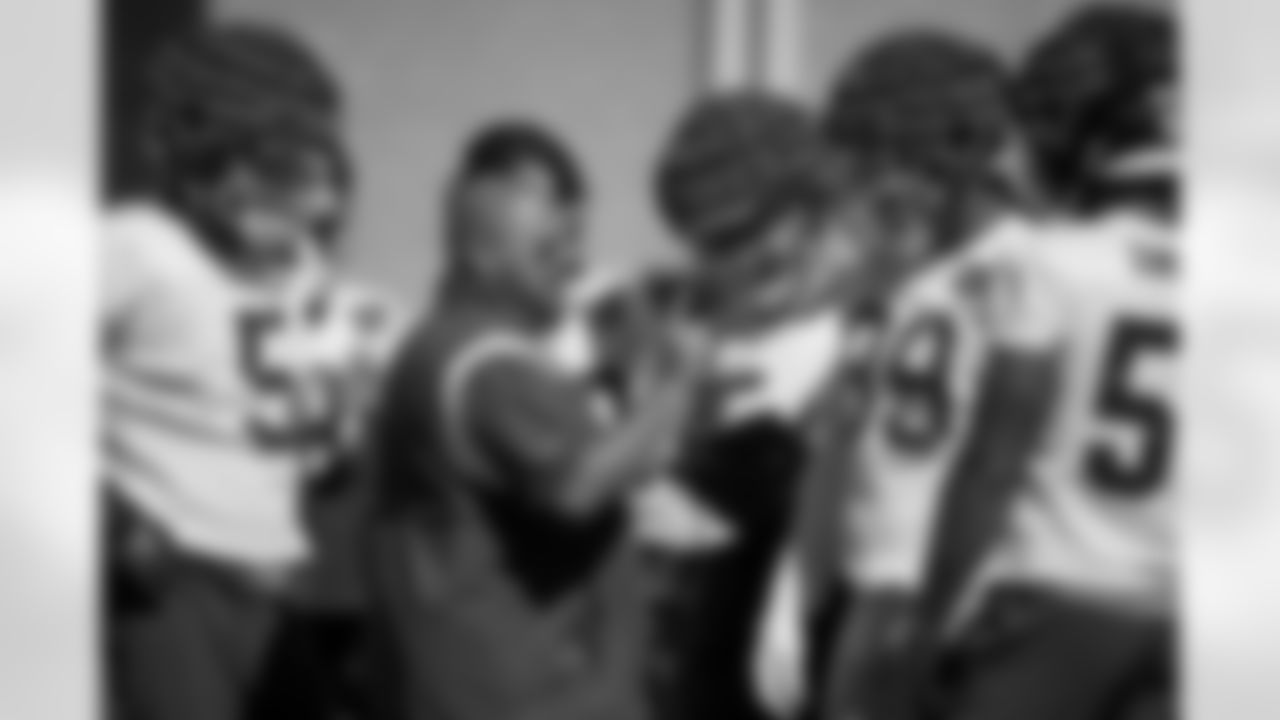
New York Giants head coach Brian Daboll, center, speaks with his first string defensive lineman during training camp at the NFL football team's practice facility, Saturday, July 30, 2022, in East Rutherford, N.J. (AP Photo/John Minchillo)
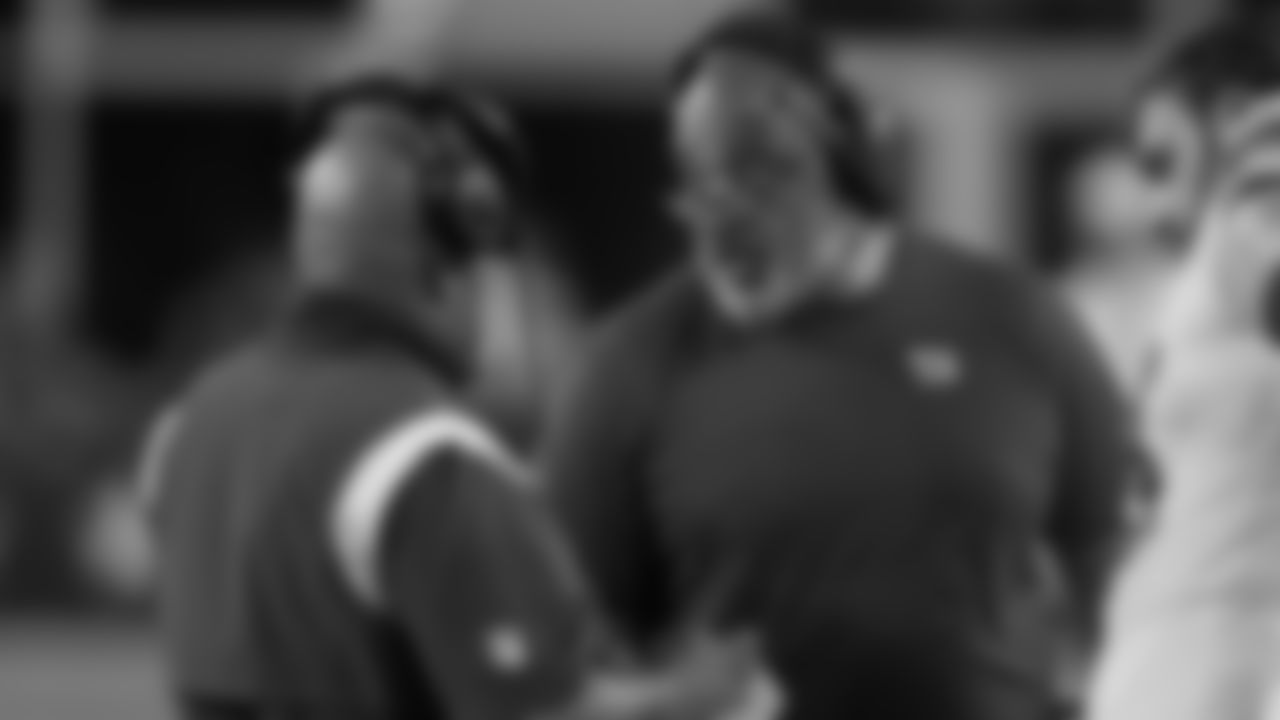
Giants offensive line coach Bobby Johnson talks with head coach Brian Daboll, left, during a preseason NFL football game, Thursday, Aug. 11, 2022, in Foxborough, Mass. (AP Photo/Charles Krupa)

New York Giants head coach Brian Daboll speaks with reporters during a coaches press availability at the NFL owner's meeting, Tuesday, March 29, 2022, at The Breakers resort in Palm Beach, Fla. (AP Photo/Rebecca Blackwell)
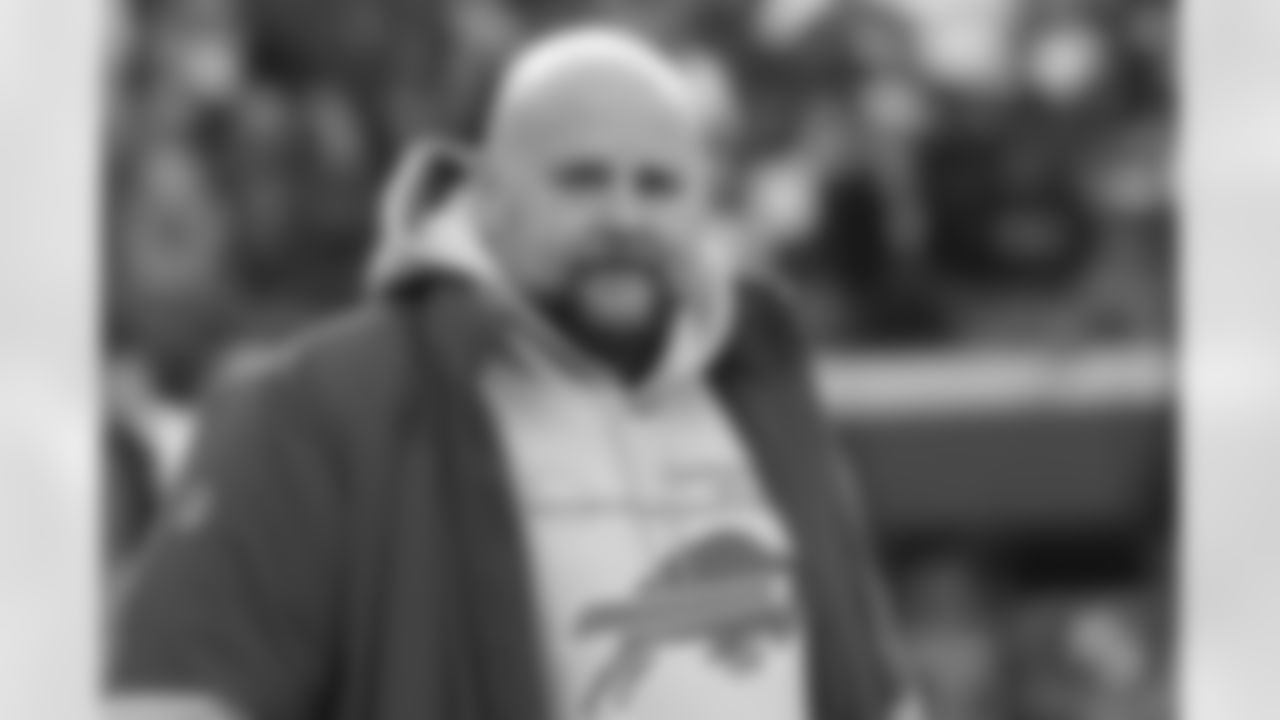
FILE - Buffalo Bills offensive coordinator Brian Daboll attends warmups before an NFL divisional playoff football game against the Kansas City Chiefs, Jan. 23, 2022, in Kansas City, Mo. The New York Giants hired Daboll as their head coach Friday, Jan. 28, 2022. (AP Photo/Reed Hoffmann, File)

New York Giants head coach Brian Daboll answers questions from media at the NFL football team's rookie minicamp in East Rutherford, N.J., Friday, May 13, 2022. (AP Photo/Noah K. Murray)

New York Giants head coach Brian Daboll waits to take the stage to speak at an introductory news conference at the NFL football team's training facility, Monday, Jan. 31, 2022, in East Rutherford, N.J. (AP Photo/John Minchillo)

New York Giants head coach Brian Daboll introduces Osi Umenyiora during training camp practice at Quest Diagnostics Training Center on Thursday August 18, 2022 in East Rutherford, New Jersey

New York Giants head coach Brian Daboll during a pre-season football game against the Cincinnati Bengals on Sunday August 21, 2022 in East Rutherford, New Jersey (Evan Pinkus/NY Giants)

New York Giants head coach Brian Daboll during a football game against the Baltimore Ravens on Sunday October 16, 2022 in East Rutherford, New Jersey (Evan Pinkus/NY Giants)

New York Giants head coach Brian Daboll at practice in Ware, England before a game against the Green Bay Packers. Credit: Evan Pinkus/New York Giants

New York Giants head coach Brian Daboll talks with quarterback Daniel Jones (8) during a pre-season football game against the Cincinnati Bengals on Sunday August 21, 2022 in East Rutherford, New Jersey (Evan Pinkus/NY Giants)


New York Giants head coach Brian Daboll during a football game against the Chicago Bears on Sunday October 2, 2022 in East Rutherford, New Jersey (Evan Pinkus/NY Giants)
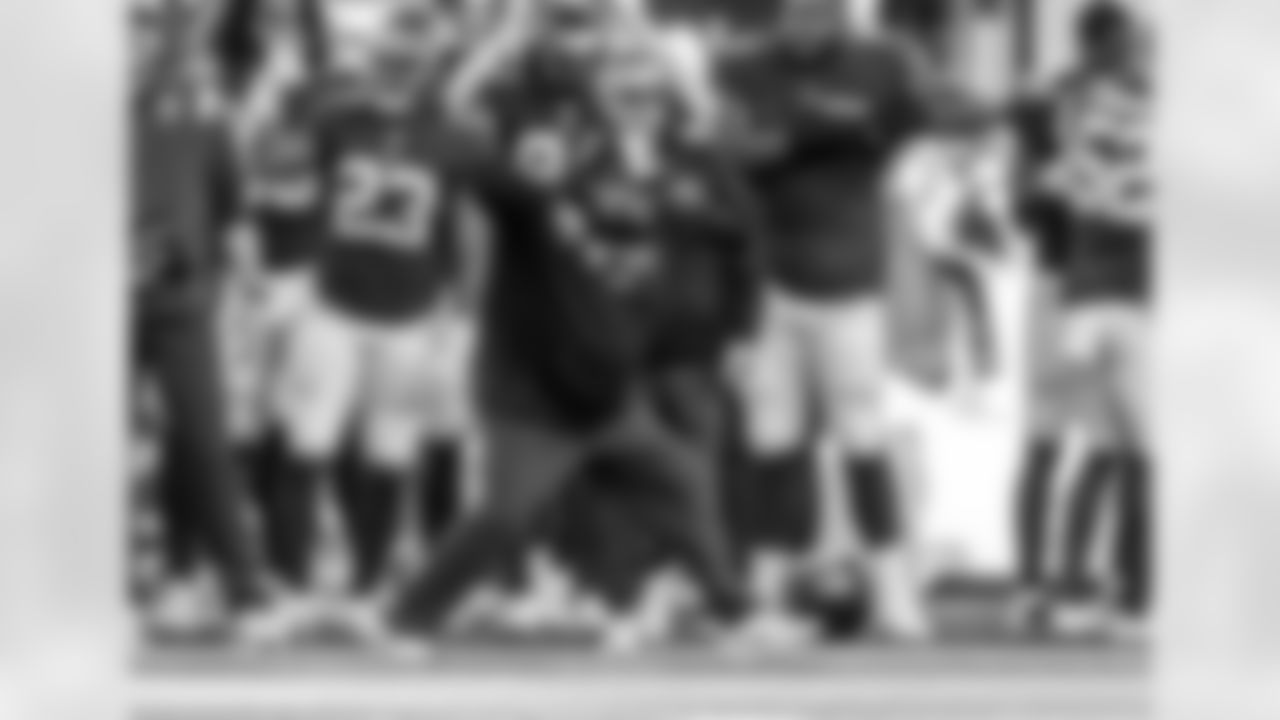
The New York Giants take on the Baltimore Ravens at Metlife Stadium in East Rutherford, NJ on Sunday October 16, 2022. (Ben Solomon/New York Giants)

New York Giants head coach Brian Daboll talks with Osi Umenyiora during training camp practice at Quest Diagnostics Training Center on Thursday August 18, 2022 in East Rutherford, New Jersey

New York Giants head coach Brian Daboll at practice in Ware, England before a game against the Green Bay Packers. Credit: Evan Pinkus/New York Giants
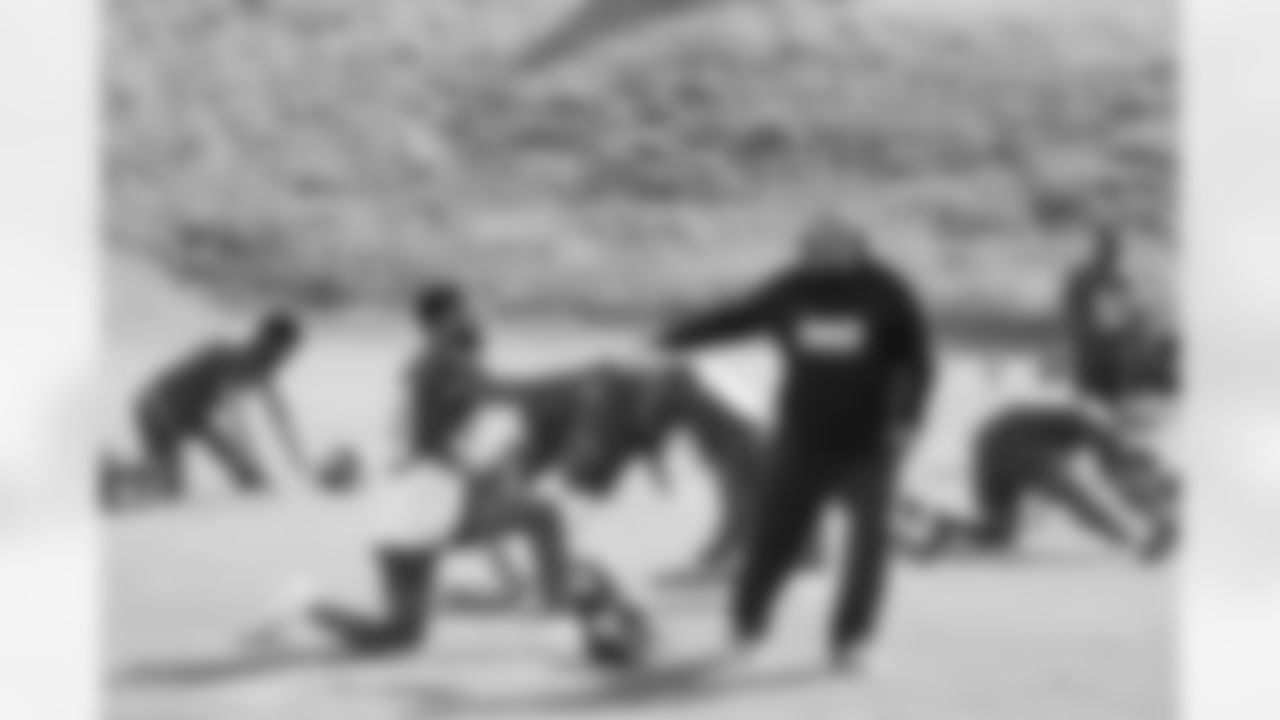
New York Giants head coach Brian Daboll shakes hands with New York Giants safety Julian Love (20) at practice in Ware, England before a game against the Green Bay Packers. Credit: Evan Pinkus/New York Giants
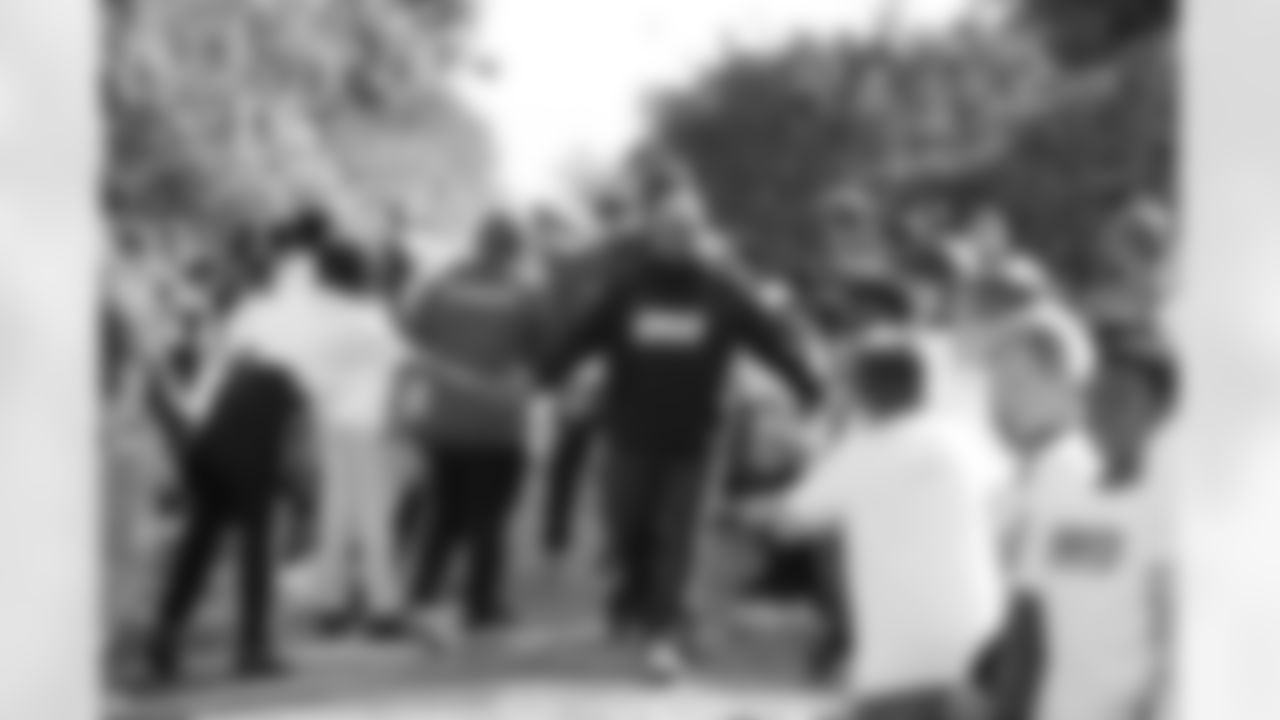
New York Giants head coach Brian Daboll walks to practice in England before a game against the Green Bay Packers Credit: Evan Pinkus/ New York Giants

New York Giants head coach Brian Daboll fist bumps Shea Tierney before a week 1 football game against the Tennessee Titans on Sunday September 11, 2022 in Nashville, Tennesse (Evan Pinkus/NY Giants)

New York Giants head coach Brian Daboll during training camp practice at Quest Diagnostics Training Center on Wednesday August 24, 2022 in East Rutherford, New Jersey
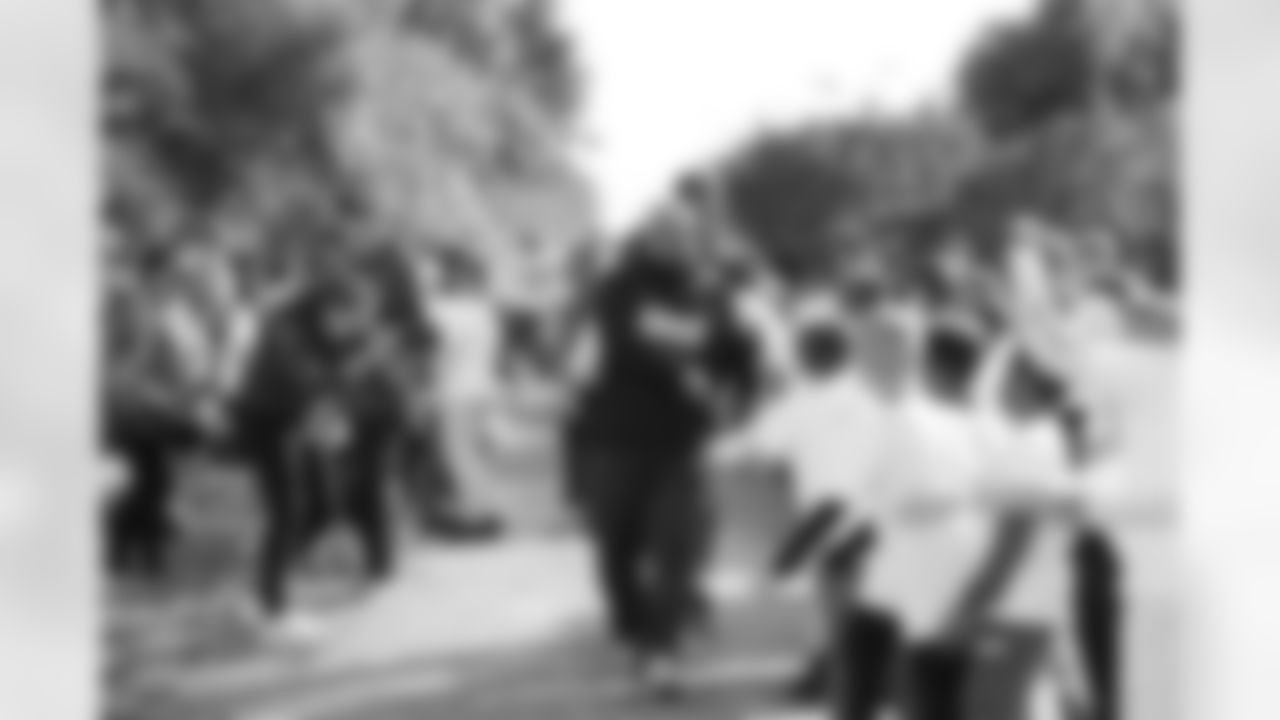
New York Giants head coach Brian Daboll walks to practice in England before a game against the Green Bay Packers Credit: Evan Pinkus/ New York Giants
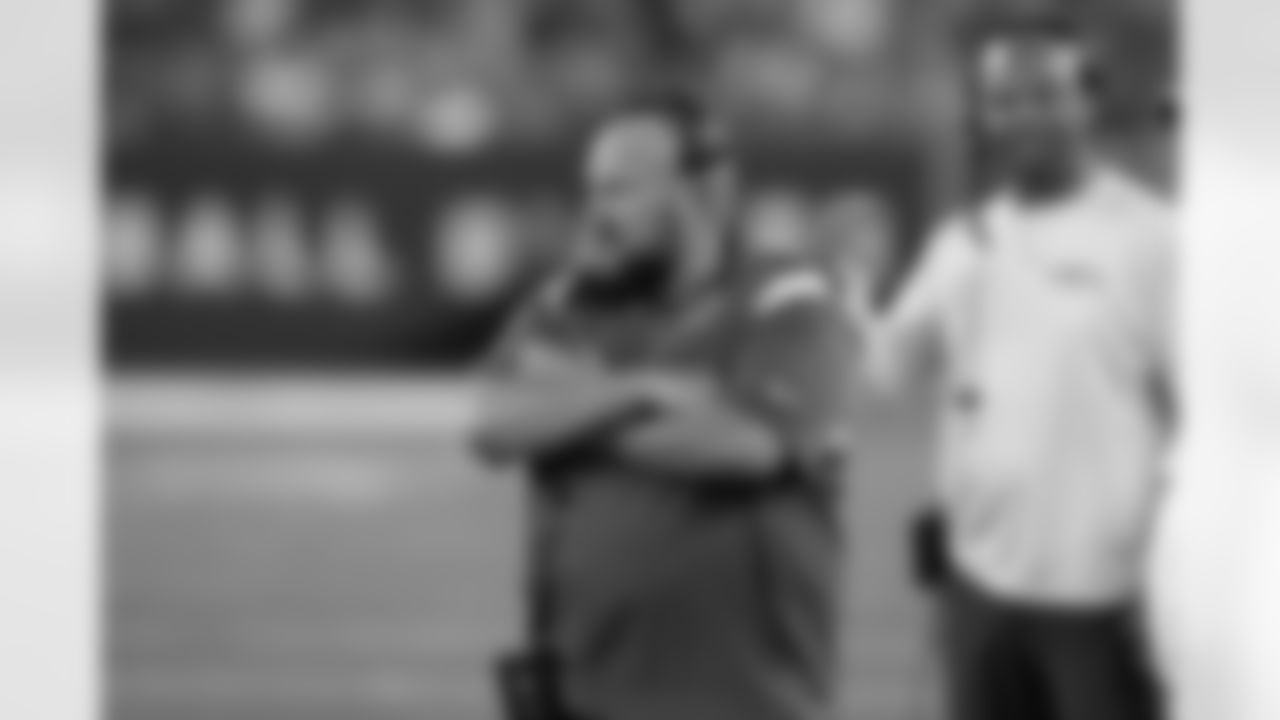
New York Giants head coach Brian Daboll during a pre-season football game against the Cincinnati Bengals on Sunday August 21, 2022 in East Rutherford, New Jersey (Evan Pinkus/NY Giants)

The New York Giants take on the Baltimore Ravens at Metlife Stadium in East Rutherford, NJ on Sunday October 16, 2022. (Ben Solomon/New York Giants)

New York Giants linebacker Jihad Ward (55) and safety Julian Love (20) dump Gatorade on New York Giants head coach Brian Daboll during a NFL football game against the against the Indianapolis Colts, Sunday January 1, 2023 in East Rutherford, NJ (Evan Pinkus\New York Giants )

Brian Daboll Head Coach, Leonard Williams (99)
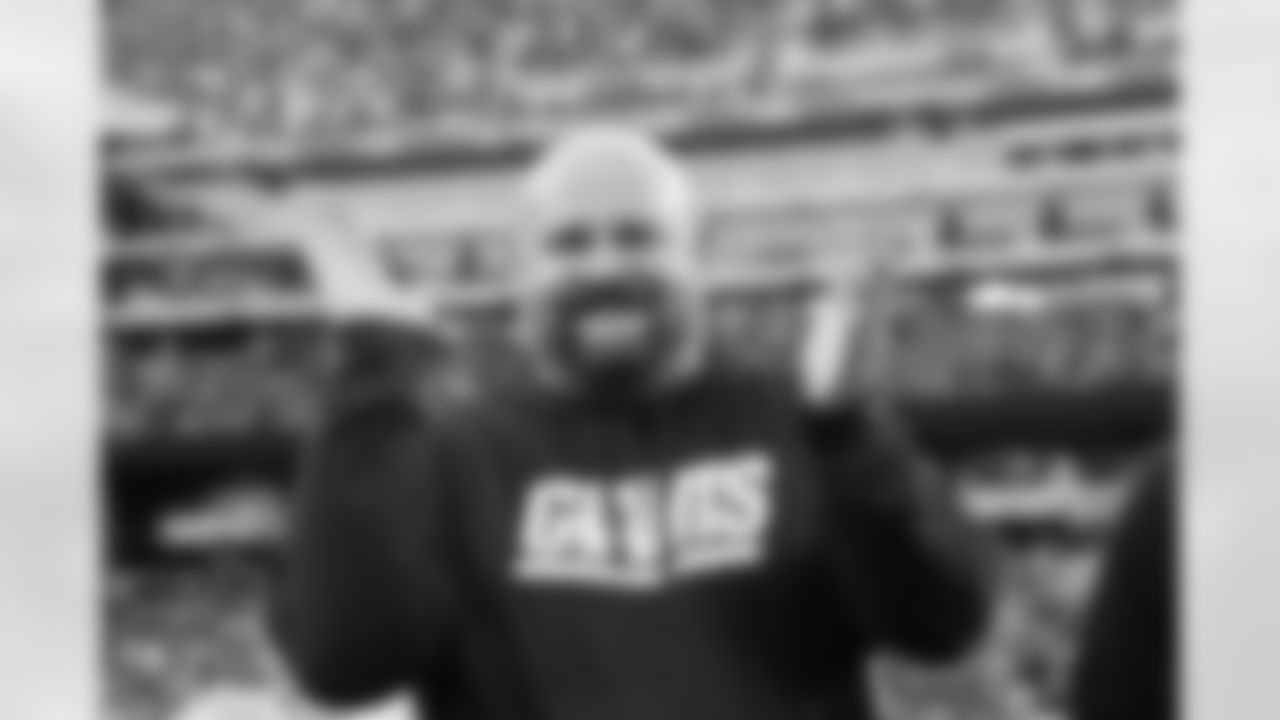
Brian Daboll Head Coach

Head Coach Brian Daboll Head Coach

Brian Daboll Head Coach
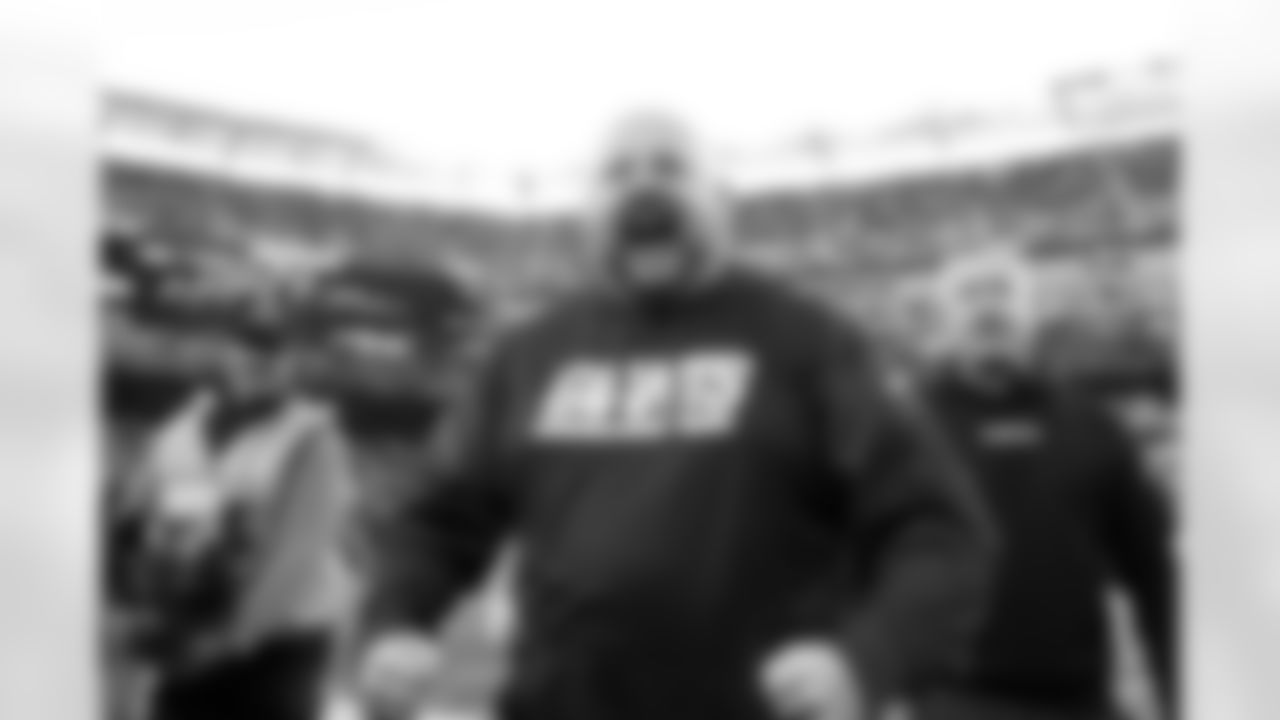
Brian Daboll Head Coach

HC Brian Daboll
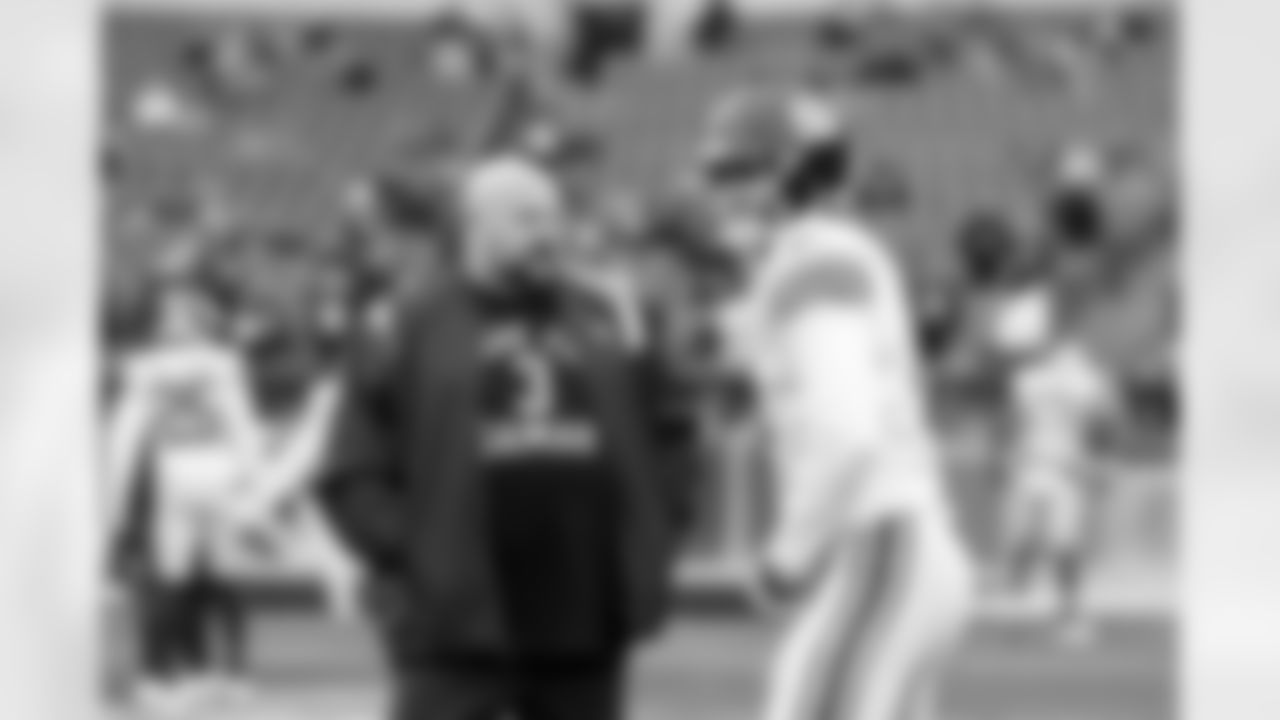
Brian Daboll Head Coach, Daniel Jones (8)
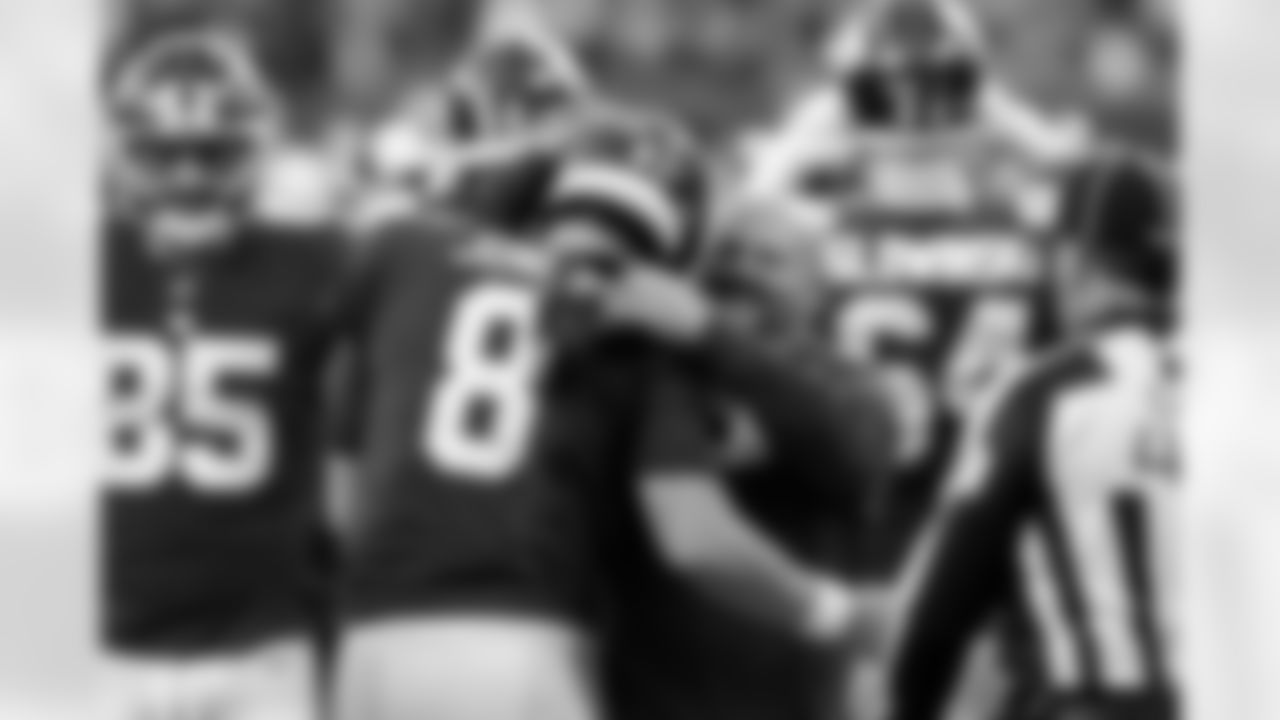
Brian Daboll Head Coach, Daniel Jones (8)
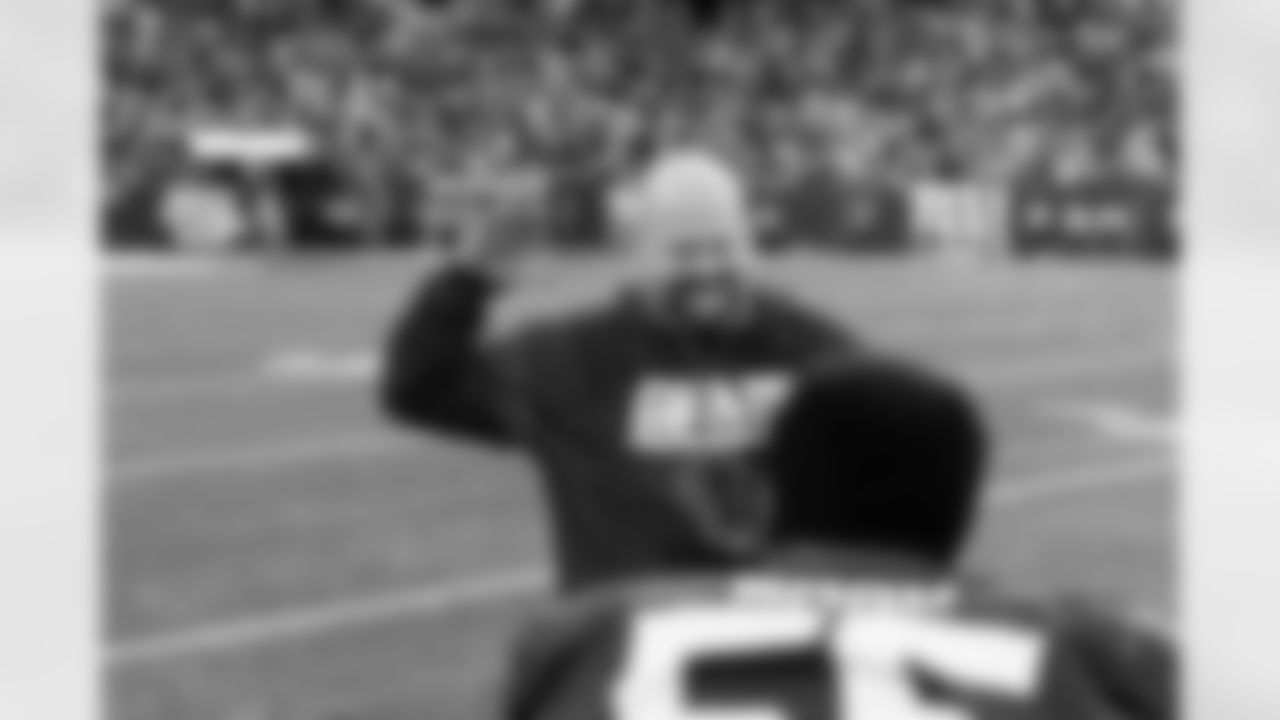
Brian Daboll Head Coach
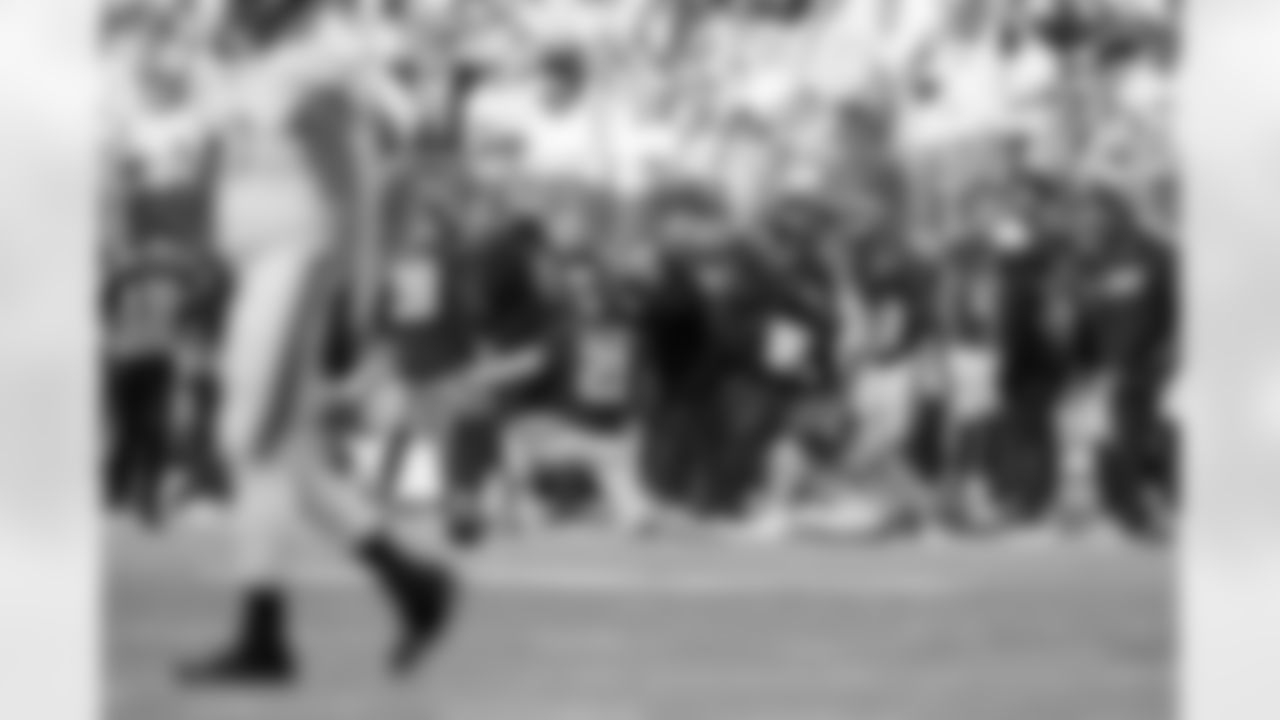
Landon Collins (21), Brian Daboll Head Coach

Brian Daboll Head Coach

New York Giants head coach Brian Daboll after a NFL football game against the Indianapolis Colts, Sunday January 1, 2023 in East Rutherford, NJ (Evan Pinkus\New York Giants )

Don Martindale Defensive Coordinator, Brian Daboll Head Coach

New York Giants head coach Brian Daboll talks to his team following a NFL football game against the Indianapolis Colts, Sunday January 1, 2023 in East Rutherford, NJ (Evan Pinkus\New York Giants )

New York Giants head coach Brian Daboll hugs General Manager Joe Schoen following a NFL football game against the against the Indianapolis Colts, Sunday January 1, 2023 in East Rutherford, NJ (Evan Pinkus\New York Giants )

New York Giants head coach Brian Daboll during a NFL football game against the Philadelphia Eagles, Sunday January 8, 2023 in Philadelphia, Pennsylvania (Evan Pinkus\New York Giants )

New York Giants head coach Brian Daboll after a NFL football game against the Indianapolis Colts, Sunday January 1, 2023 in East Rutherford, NJ (Evan Pinkus\New York Giants )

New York Giants head coach Brian Daboll after beating the Indianapolis Colts, Sunday January 1, 2023 in East Rutherford, NJ (Evan Pinkus\New York Giants )
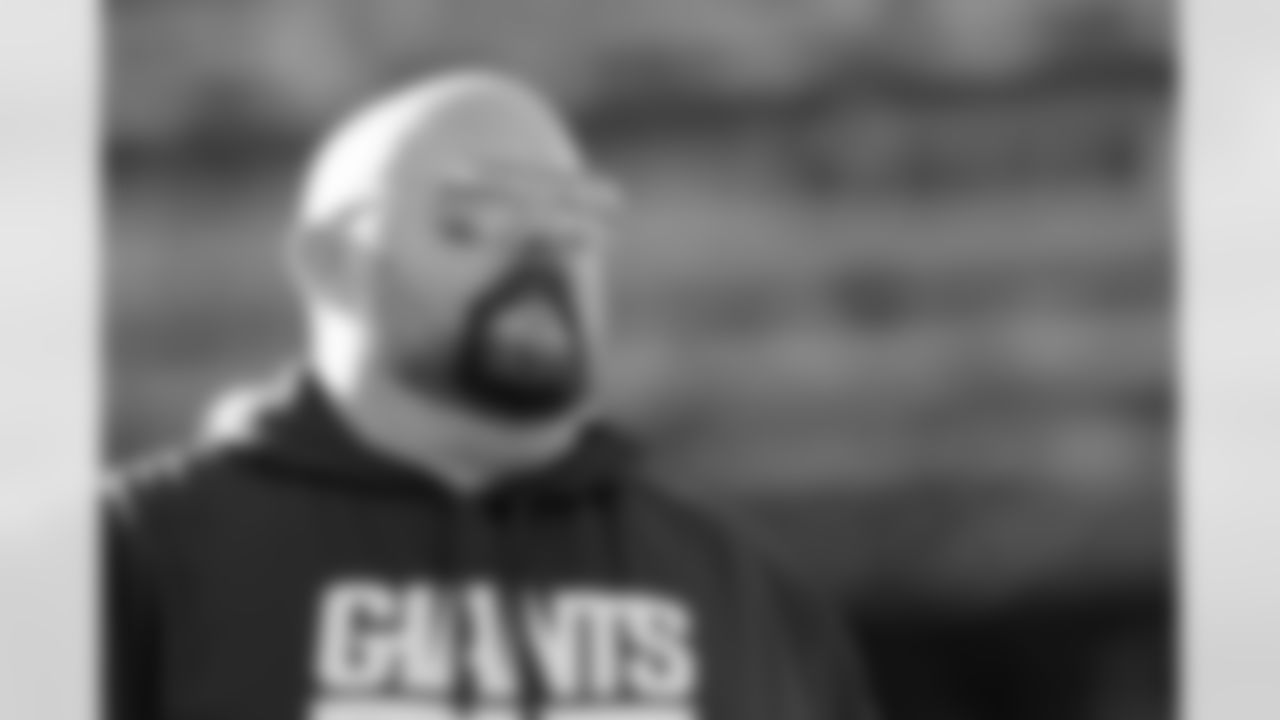
Brian Daboll Head Coach
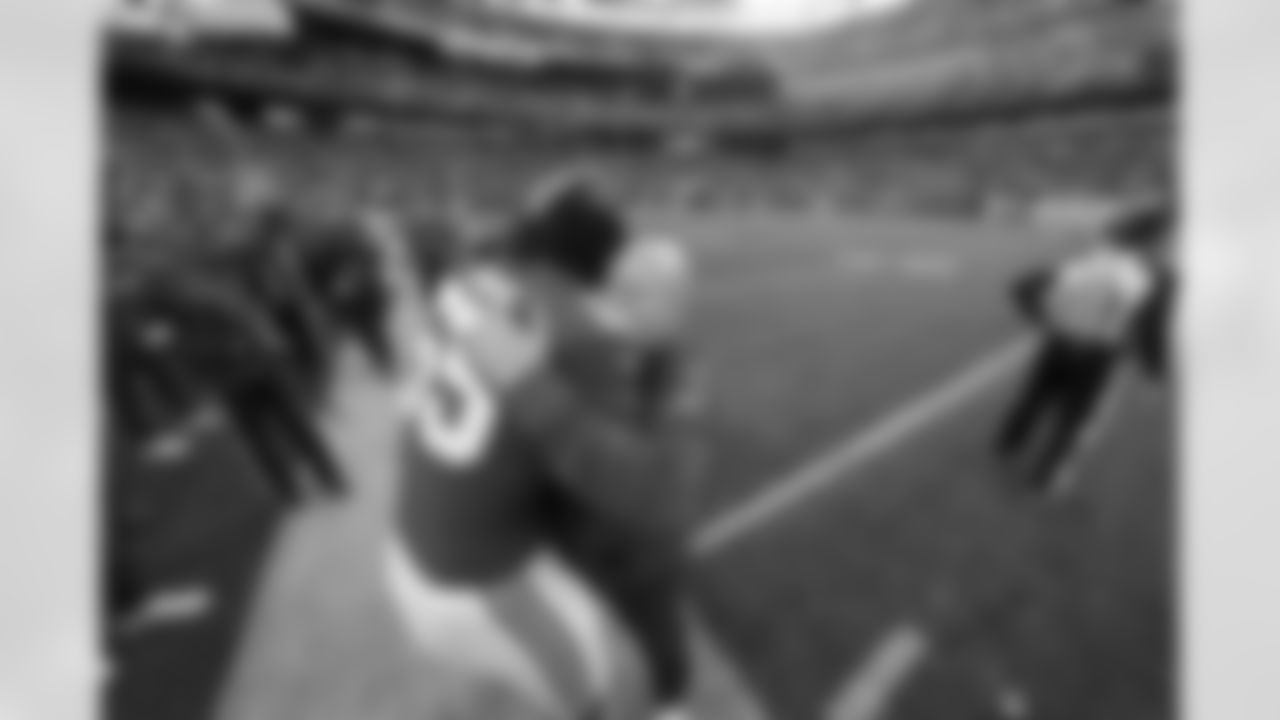
New York Giants head coach Brian Daboll hugs New York Giants linebacker Jihad Ward (55) during a NFL football game against the against the Indianapolis Colts, Sunday January 1, 2023 in East Rutherford, NJ (Evan Pinkus\New York Giants )
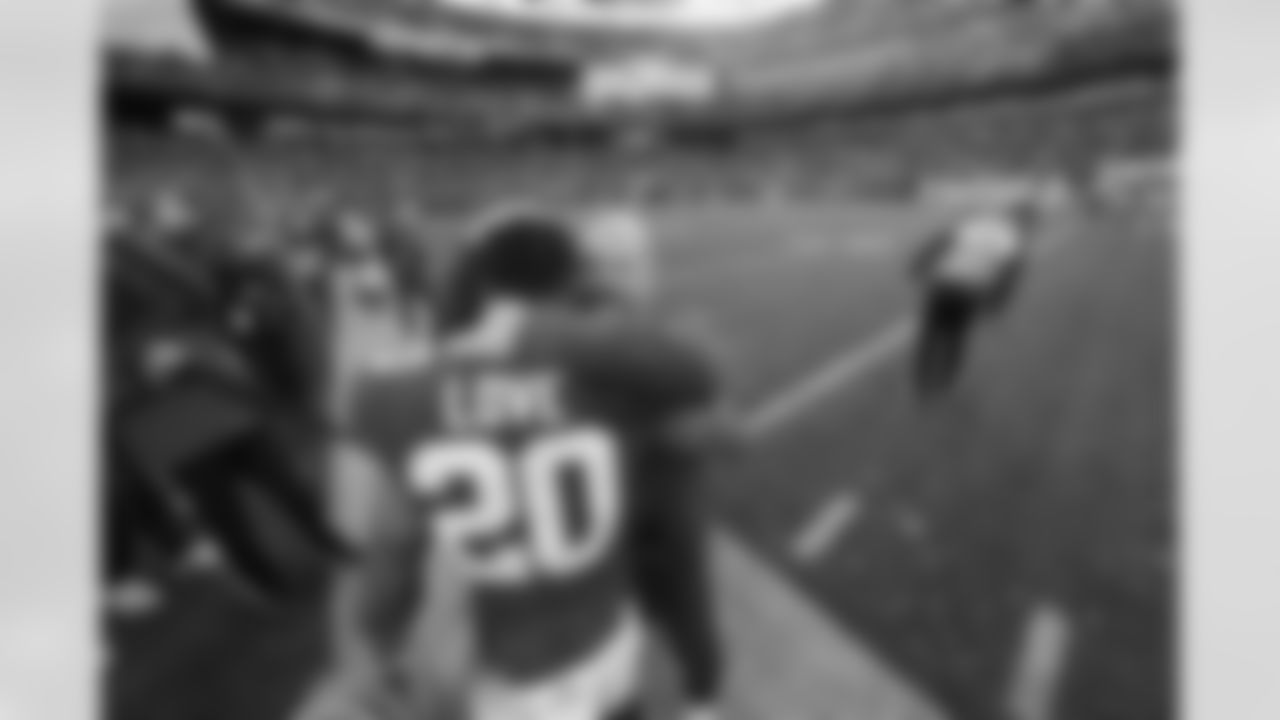
New York Giants head coach Brian Daboll hugs New York Giants safety Julian Love (20) during a NFL football game against the against the Indianapolis Colts, Sunday January 1, 2023 in East Rutherford, NJ (Evan Pinkus\New York Giants )

Brian Daboll Head Coach, Jeff Saturday
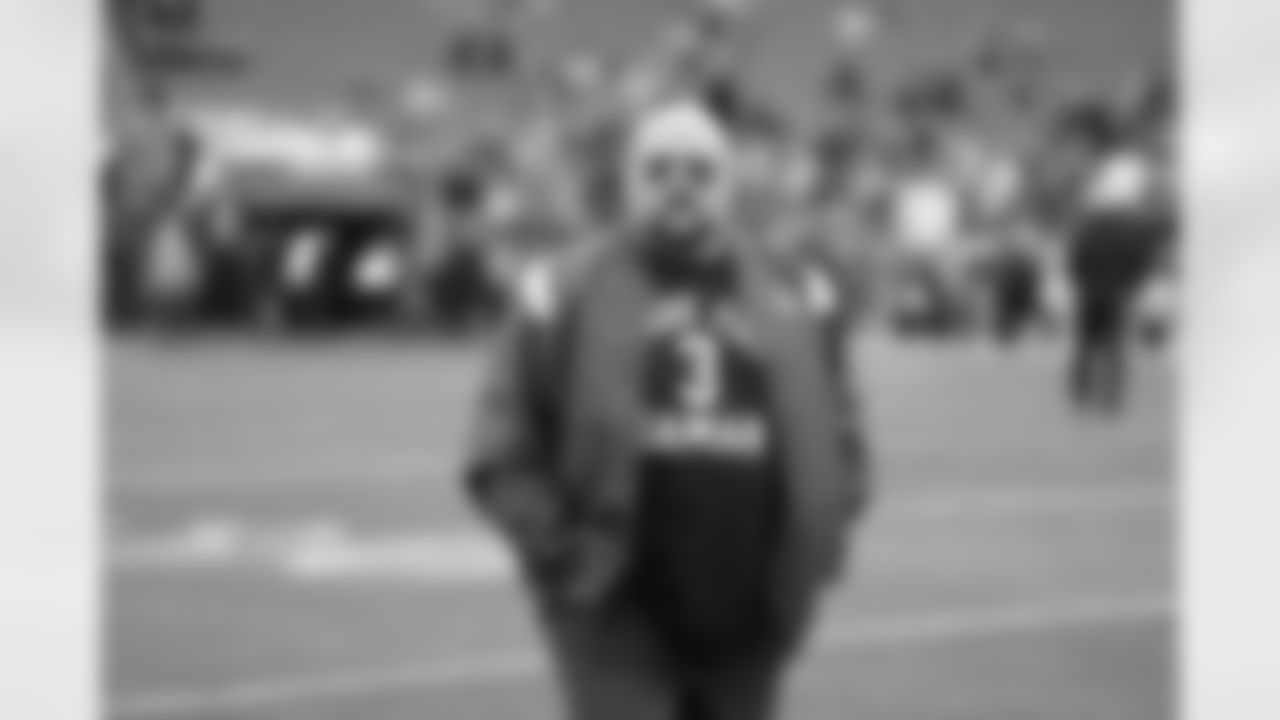
New York Giants head coach Brian Daboll before a NFL football game against the Philadelphia Eagles, Sunday January 8, 2023 in Philadelphia, Pennsylvania (Evan Pinkus\New York Giants )

New York Giants linebacker Jihad Ward (55) and safety Julian Love (20) dump Gatorade on New York Giants head coach Brian Daboll during a NFL football game against the against the Indianapolis Colts, Sunday January 1, 2023 in East Rutherford, NJ (Evan Pinkus\New York Giants )

New York Giants head coach Brian Daboll talks to his team in the locker room following a NFL football game against the Indianapolis Colts, Sunday January 1, 2023 in East Rutherford, NJ (Evan Pinkus\New York Giants )
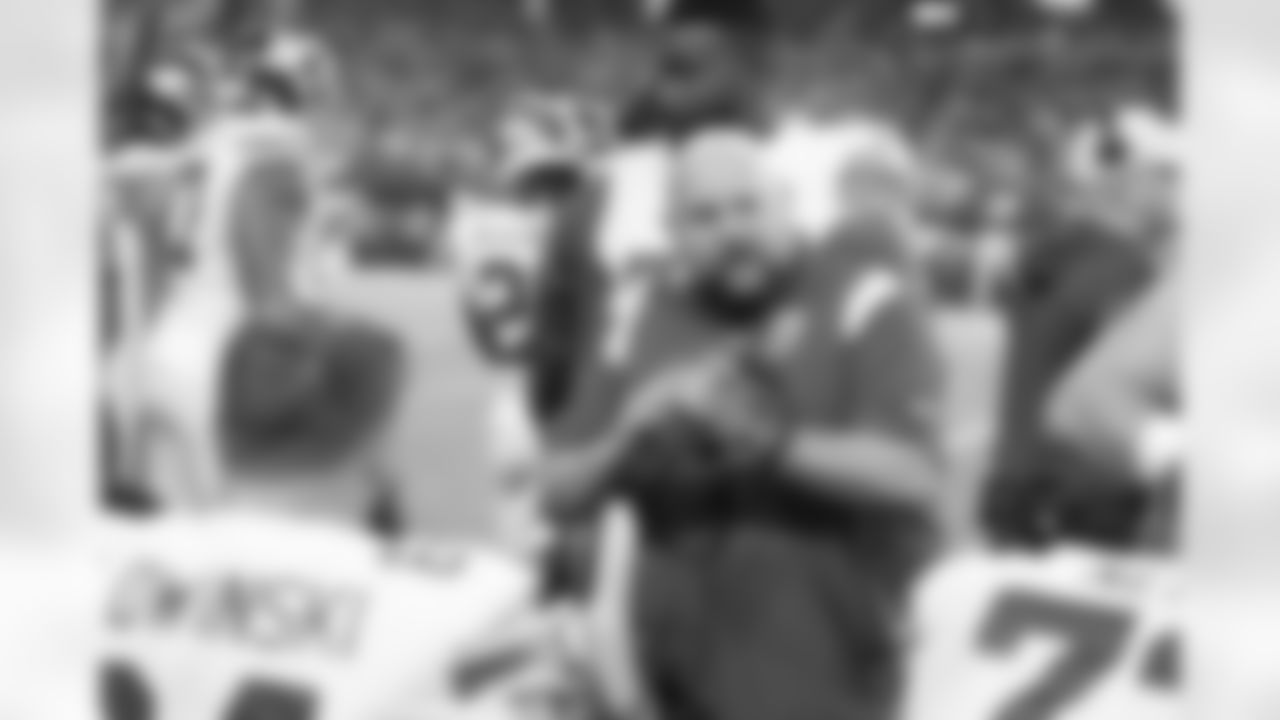
New York Giants head coach Brian Daboll during a NFL wild card playoff game against the Minnesota Vikings, Sunday January 15, 2023 in Minneapolis, Minnesota (Evan Pinkus\New York Giants )

Brian Daboll Head Coach
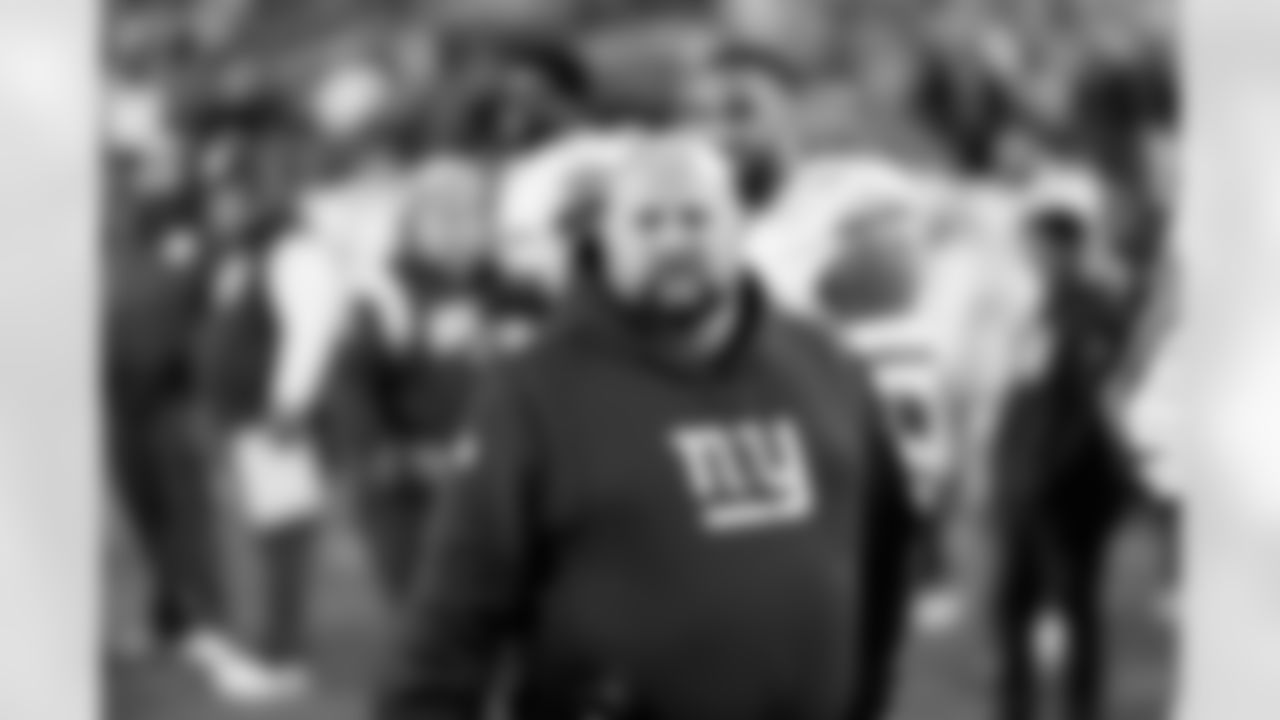
Brian Daboll Head Coach
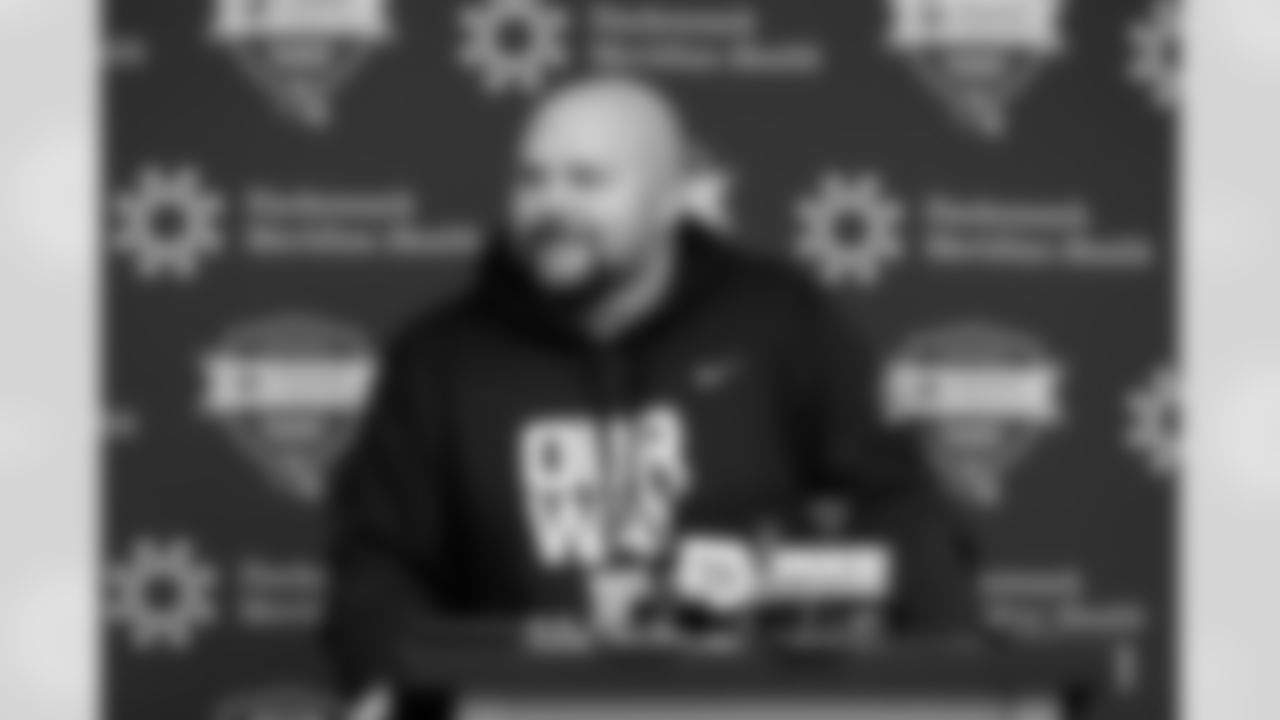

New York Giants head coach Brian Daboll before a NFL Divisional Playoff game against the Philadelphia Eagles, Saturday January 21, 2023 in Philadelphia, Pennsylvania (Evan Pinkus\New York Giants )

Brian Daboll Head Coach
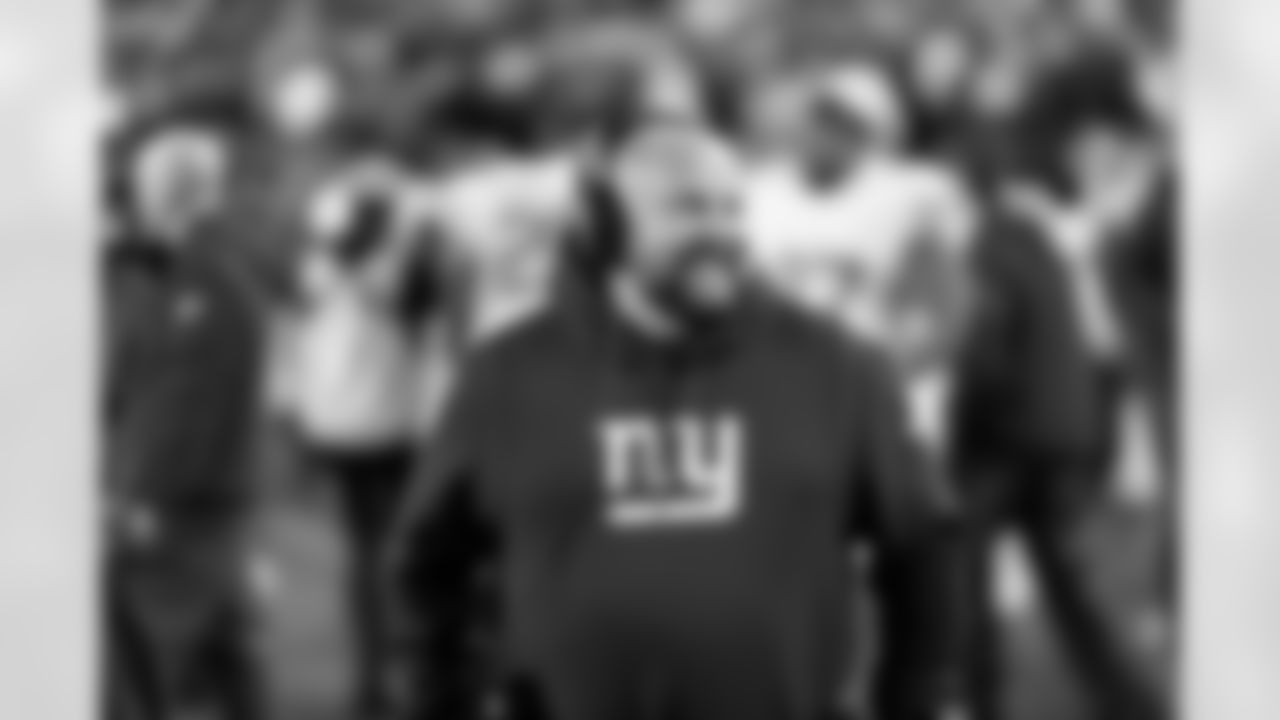
Brian Daboll Head Coach
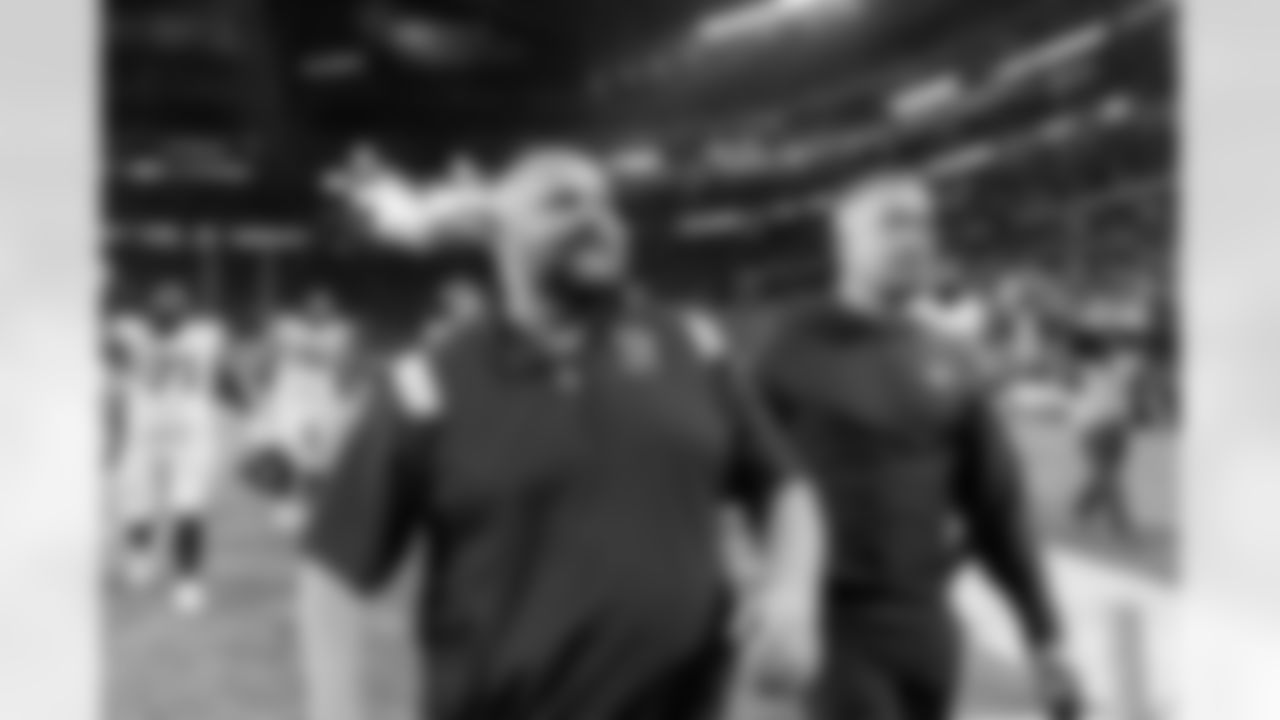
Brian Daboll Head Coach, Jerry Meade Vice President of Security

Brian Daboll Head Coach

Brian Daboll Head Coach

New York Giants head coach Brian Daboll and Daniel Jones hug following a NFL wild card playoff game against the Minnesota Vikings, Sunday January 15, 2023 in Minneapolis, Minnesota (Evan Pinkus\New York Giants )
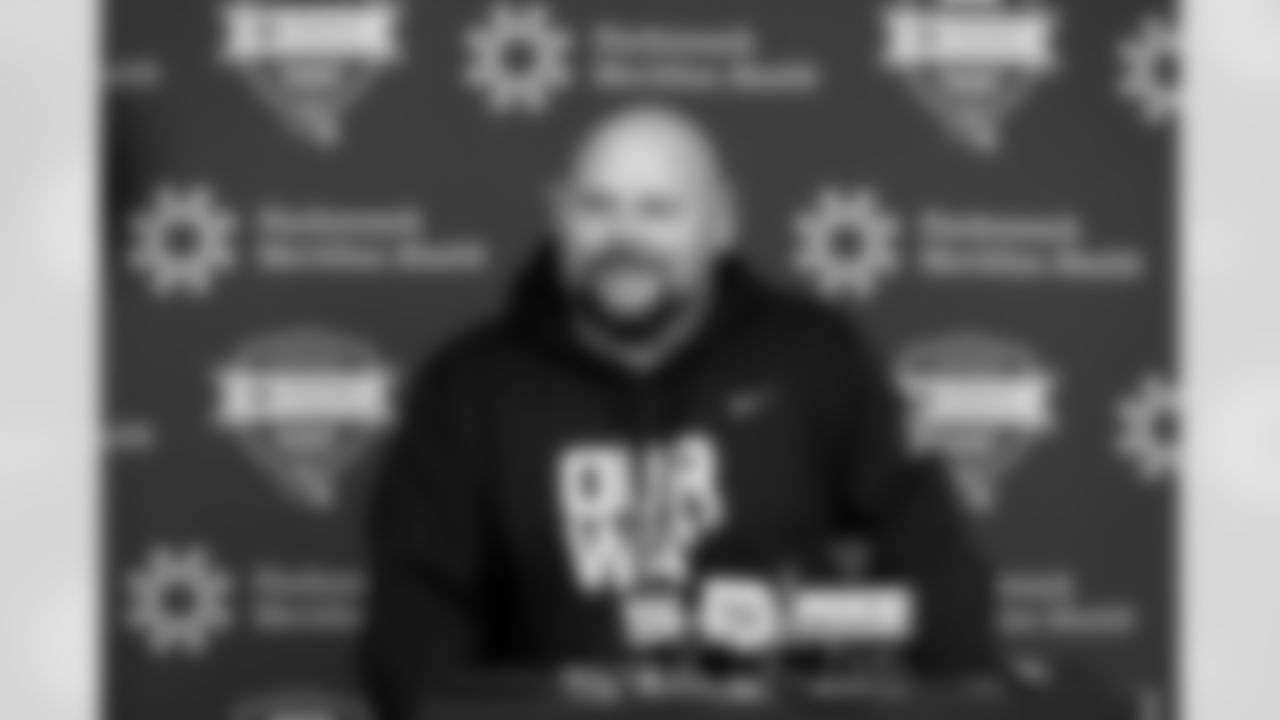

New York Giants head coach Brian Daboll talks with general manager Joe Schoen before a NFL Divisional Playoff game against the Philadelphia Eagles, Saturday January 21, 2023 in Philadelphia, Pennsylvania (Evan Pinkus\New York Giants )

Don Martindale Defensive Coordinator, Brian Daboll Head Coach
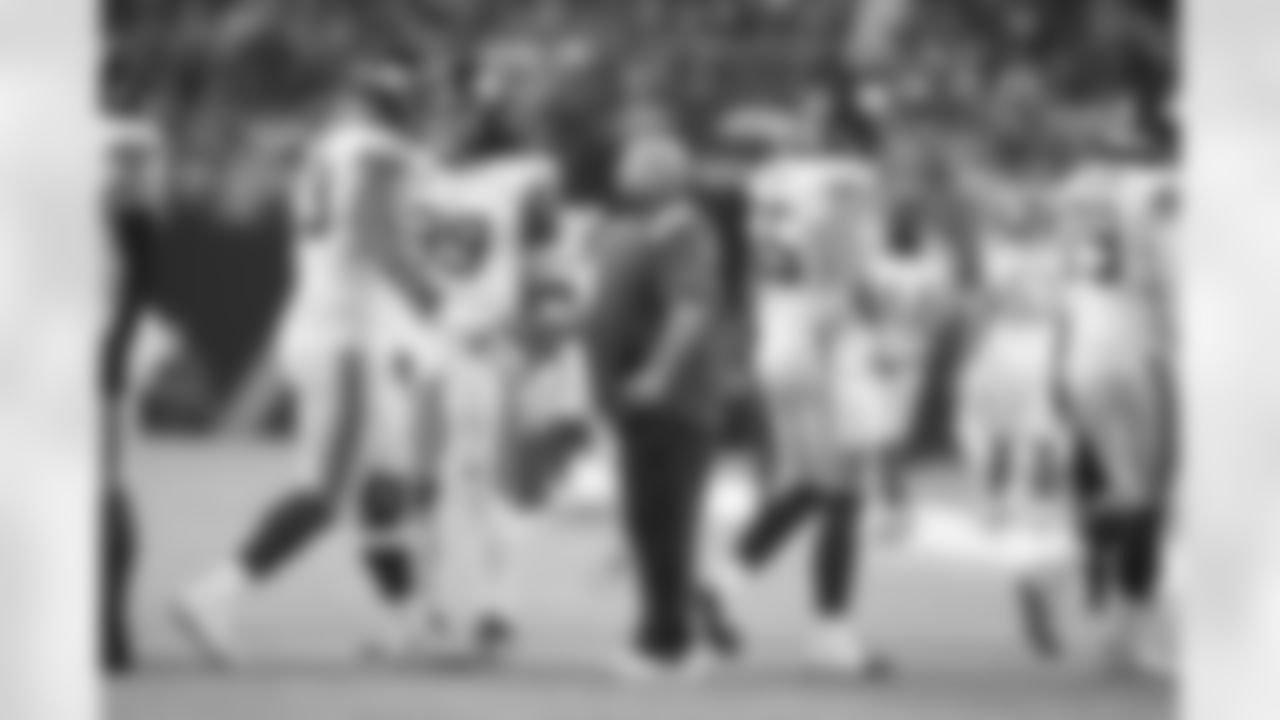
New York Giants head coach Brian Daboll during a NFL wild card playoff game against the Minnesota Vikings, Sunday January 15, 2023 in Minneapolis, Minnesota (Evan Pinkus\New York Giants )

New York Giants head coach Brian Daboll during a NFL wild card playoff game against the Minnesota Vikings, Sunday January 15, 2023 in Minneapolis, Minnesota (Evan Pinkus\New York Giants )
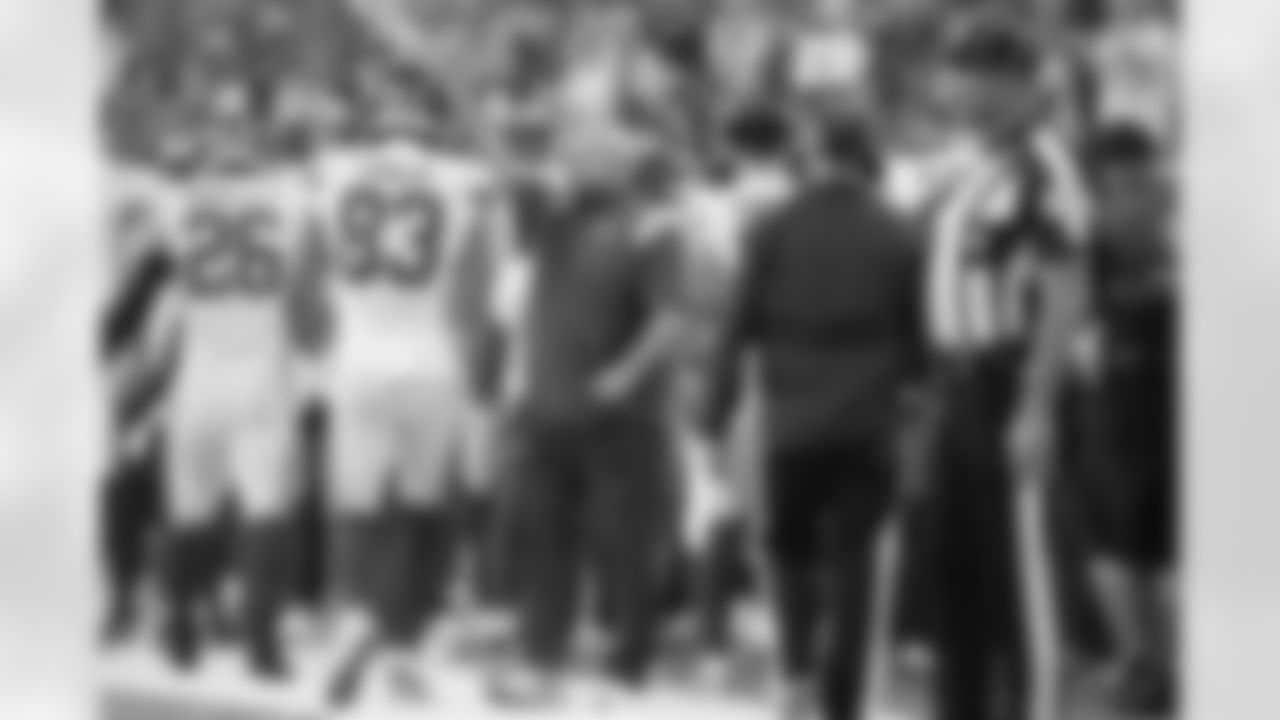
New York Giants head coach Brian Daboll during a NFL wild card playoff game against the Minnesota Vikings, Sunday January 15, 2023 in Minneapolis, Minnesota (Evan Pinkus\New York Giants )
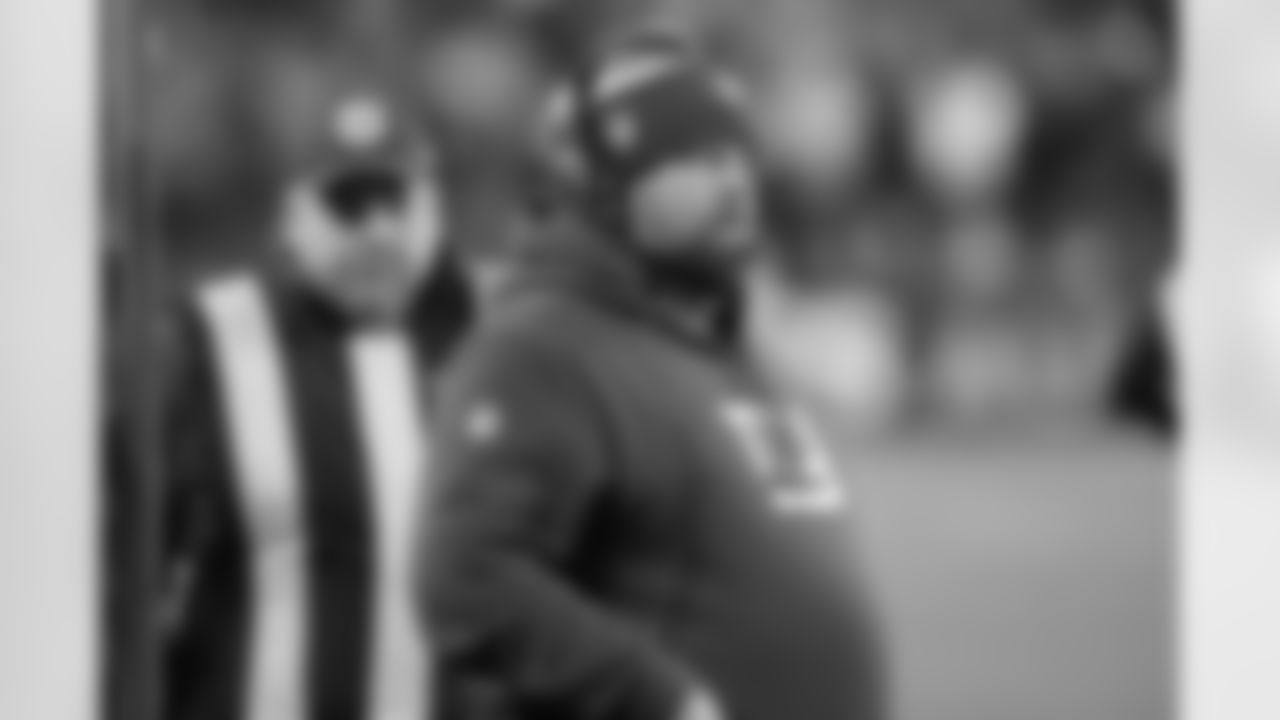
New York Giants head coach Brian Daboll during a NFL Divisional Playoff game against the Philadelphia Eagles, Saturday January 21, 2023 in Philadelphia, Pennsylvania (Evan Pinkus\New York Giants )

New York Giants head coach Brian Daboll during a NFL Divisional Playoff game against the Philadelphia Eagles, Saturday January 21, 2023 in Philadelphia, Pennsylvania (Evan Pinkus\New York Giants )
Q: As an offensive coordinator, after a game you watched the offensive cutups. How did you watch the game as a head coach? Did you watch it beginning to end, or offense, defense and special teams separately??
Daboll: "I watched it from beginning to end. I try to really go through with a fine-tooth comb. That's one of the different things for me. Coming back on an airplane, 60 to 70 plays, you can crank it out usually in a plane trip, and we got home at whatever it was – 12:30 – then I drove home. By then it was past one, and I finished watching it when I got home, because I didn't make it all the way through. I made it until about a couple minutes to go in the third quarter. I just watched it straight through to get a feel of the game, the choices we made, the decisions I made, the calls we had as coordinators, the players' techniques, so that takes a little time to evaluate. The only way you get better is look at the competition on gameday, and make sure that you can fix those things. They might not come up this week, but they might come up in Week 8, and that's the important part of correcting the things. If you make a mistake once, I got it. We're all going to make mistakes once. But if it comes up again, we can't make the same mistake twice."
Q: When you thought prior to the game how it would play out, did you ever think you would have six more rushing attempts than drop backs and 82 more yards on the ground?
Daboll: "You go in with a plan of particular plays. And we talk about how we want to play the game. I try to communicate and have meetings with the three coordinators so they can understand how I think we need to play the game, and we can complement one another. Does that always take place? No. You never know how any of these games are going to go. You can be up quick; you can be down quick. The thing that we preach is let's not focus on the scoreboard. Let's focus on the play, let's focus on our job. Let's move to the next play. The minute you start thinking of 10 plays down the road or what just happened on the last play, that's when you lose focus on the most important stuff, which is that particular play."
Q: Daniel (Jones) had the highest completion percentage of his career and led the team down the field on the game-winning drive. He also threw an interception in the end zone and lost a fumble. When you review the game with Daniel, is your coaching nature to start with the interception and what went wrong or with the more positive plays?
Daboll: "Usually you deal with players different. Treat them all fairly, not the same. You watch tape. The way we watch tape as an offense is we watch the entire game, so it's one play at a time. Start from the beginning and go all the way through. Quarterbacks, in particular, I would say Daniel but all of our guys, they watch it on their own. They'll watch it one time with (quarterbacks coach) Shea (Tierney) and then they watch it again. They'll watch it about three times. They watch it on the airplane.
"There was, I would say, a lot of good teaching off that tape. And that's all it is – teaching. Sometimes you're teaching decision-making. Sometimes you're teaching technique. Sometimes you're teaching leadership. Sometimes you're teaching resiliency. We just go right through the tape, and I'll remind guys throughout the week of some of the things that we need to get better on. I think Daniel's done a good job.
"I'll give you a good story about Daniel: on the play we hit to Shep (Sterling Shepard, who caught a 65-yard touchdown pass), I've run that play a lot in my career. I think Mike's run it. Daniel's run it, maybe not last year but a couple years before. We were talking about specific things. And the communication that he has with us is really good. So, we just adjusted one little thing that he liked a little bit better than one thing, and it happened to turn into a pretty good play."
Q: You told everyone throughout training camp that Saquon Barkley looked good. The fact that he played so well (194 yards from scrimmage), did it alter your thinking about how you can use him? Or did it confirm what you already thought?
Daboll: "When I saw him out in the spring for the first time, I saw his explosiveness and his athleticism. And then the more you get to know him as a person, his competitive spirit, his competitive nature is as good as I've been around with players. So, when you have a very competitive individual who is very talented, as a coach, that gets you excited. We've used him through spring and summer and training camp, and nothing surprised me with him."
Q: (Rookie tackle) Evan Neal played every snap. No one asked you about him, which is great for an offensive lineman. Can we assume Evan Neal had a pretty good debut?
Daboll. "Yes. There were some good plays. There were some plays like everybody – coaches and players – that we would like to have back. He's a dependable, smart, tough player who has played a lot of football in his life. He's played every practice out here; played every rep. He's had a lot of good work.
"There will be things that happen for all these young players. I told the young players a couple of days before the game, 'You've all played football your entire life. You know how to prepare for a game and get ready and what you need to do the day of a game. How you need to eat, all this stuff. We're here to help you, but you just go do what you know how to do, which is play football and prepare yourself mentally. We'll help you prepare physically with the plan and the reps and the rest periods and the nutrition and the sleep habits and our team psychologists – we'll help you do that.' Whoever it is, not just Evan, just go out there, play football and stay loose. You can make it more than it is for young guys, and then you add in a whole different element of stress and anxiety for these guys, and that's not something I subscribe to."
Q: What did you think of (inside linebacker) Tae's (Crowder) hit on (running back) Derrick Henry?
Daboll: "Explosive. Tae's explosive. He's an explosive player. Made some good plays, and much like Evan, there's certain plays that you'd like to have back. We're a team right now, and I don't want to speak for any of the other 31 teams, we're out here working our way through a lot of different things, and the biggest thing for all of us, whether it's Evan, Tae, myself, the coordinators, is let's build on what we did well, and let's fix what wasn't good enough. You're never going to have a perfect game, and you're never going to have where everything just goes your way. You're always going to have to deal with something, whether you're down, whether you're up, and we're just lucky to be up. We just have to fix the things we need to fix, and most of the time they change from week-to-week based on what it is. You just keep on building off the things you're not doing well and keep improving based on the things you are doing well, and you start figuring out the type of team that you have. We're a ways away."
Q: You had a big home-field advantage when you coached in Buffalo. This team has won 12 home games in the last five years. How important is it to succeed on your home field?
Daboll: "I'd say that's what we want to do, and let's make no mistake. When you're going out there with great effort and you're playing with great energy and you're executing, that's the stuff that the players and the coaches have to control so that we're playing as well as we can at home. And we're giving our 12th man, 12th person, 12th woman, we're giving those people an opportunity to be part of the program. And it really does help. I've seen it firsthand.
"And I'm excited about this first (home) game. I'm glad the guys competed the way they competed last week, regardless of the result – but the result does help. These people spend their hard-earned money to come support our football team, and we owe our football team and each other a lot. But we also owe our community a lot because they're great supporters of the organization. So, it's very important to try to establish a standard, a level of play, at our house.
"I think part of homefield advantage is recognizing the players and coaches that came before us -- coach (Bill) Parcells, coach (Tom) Coughlin, Eli (Manning), (Michael) Strahan, (Justin) Tuck. I could go on and on - Lawrence Taylor, Carl Banks, Jim Burt, (Phil) McConkey, Phil Simms. You could go on and on about all these guys. That's important to me, and it's important to our organization because those teams that won, they laid a groundwork of what it's supposed to look like. And we're not there yet; I understand that. But it's the fanbase and it's also the alumni that have done it. It hasn't happened in a while, and we're just taking it day-by-day and going to try to put our football out there the best we can."
Q: You played the Panthers last year when you were with Buffalo and beat them (31-14). But they had the No. 2 defense in the league, they sacked Josh (Allen) four times and intercepted him. What do you remember about facing their defense?
Daboll: "They're fast. They're fast, and they're physical. And I don't know what the score was, but it really wasn't indicative of how the game went. This team early on is a challenging team to get used to because of their team speed. They are fast. (Panthers linebacker) Shaq (Thompson), (safety Jeremy) Chinn, (defensive end Brian) Burns, then they got (defensive tackle) Derrick Brown inside with (tackle Matt) Ioannidis. I just remember it being very, very fast. And we talked about it all week. You try to simulate it the best you can on the show team. You have to be ready to go and ready for their team speed defensively. And I'll just say now, being in a different seat, that speed translates to their kicking game, which is good. And their offense has a lot of dynamic playmakers and I think a very good quarterback (Baker Mayfield) who can make all the throws, can make loose plays, is a competitor, is tough. So, it'll be a challenge for us."
Q: The other day, Mayfield struggled for three quarters and then got hot in the fourth quarter and almost won the game.
Daboll: "I've done a lot of work on Baker. He came out the year Josh came out (2018). I've just got a tremendous amount of respect for him: his competitive nature, how he can throw the ball, his decision-makings. He's a good quarterback, and I got a lot of respect for Baker. I think he's a good player."
Q: How about Christian McCaffrey?
Daboll: "He's a unique player. They can put him really anywhere. It's 'Where's Waldo'? Where is he? You put him in different spots. You better know where he is. He's a threat every time he touches the ball. He's not a threat for just five yards. He can take it the distance. He's extremely gifted running the ball, but he's extremely gifted catching the ball. People talk about dual-threat quarterbacks. He's a dual threat running back."
Q: You almost got to face a returner you know very well (former Bill Andre Roberts, who has 476 career returns, but was placed on injured reserve this week). Now you're facing Shi Smith and Chuba Hubbard, who have one return each.
Daboll: "The players that have done it, guys like Andre, who I know very well – he's an excellent, excellent returner. The guys, just like our team, when someone's down, the person behind them, you tell them, 'You're a starter in waiting right here.' Shi did some in the preseason. I think these guys are fully capable of handling that role and have excelled in it when they've had an opportunity to."















